CLERKSHIP GUIDE 2023
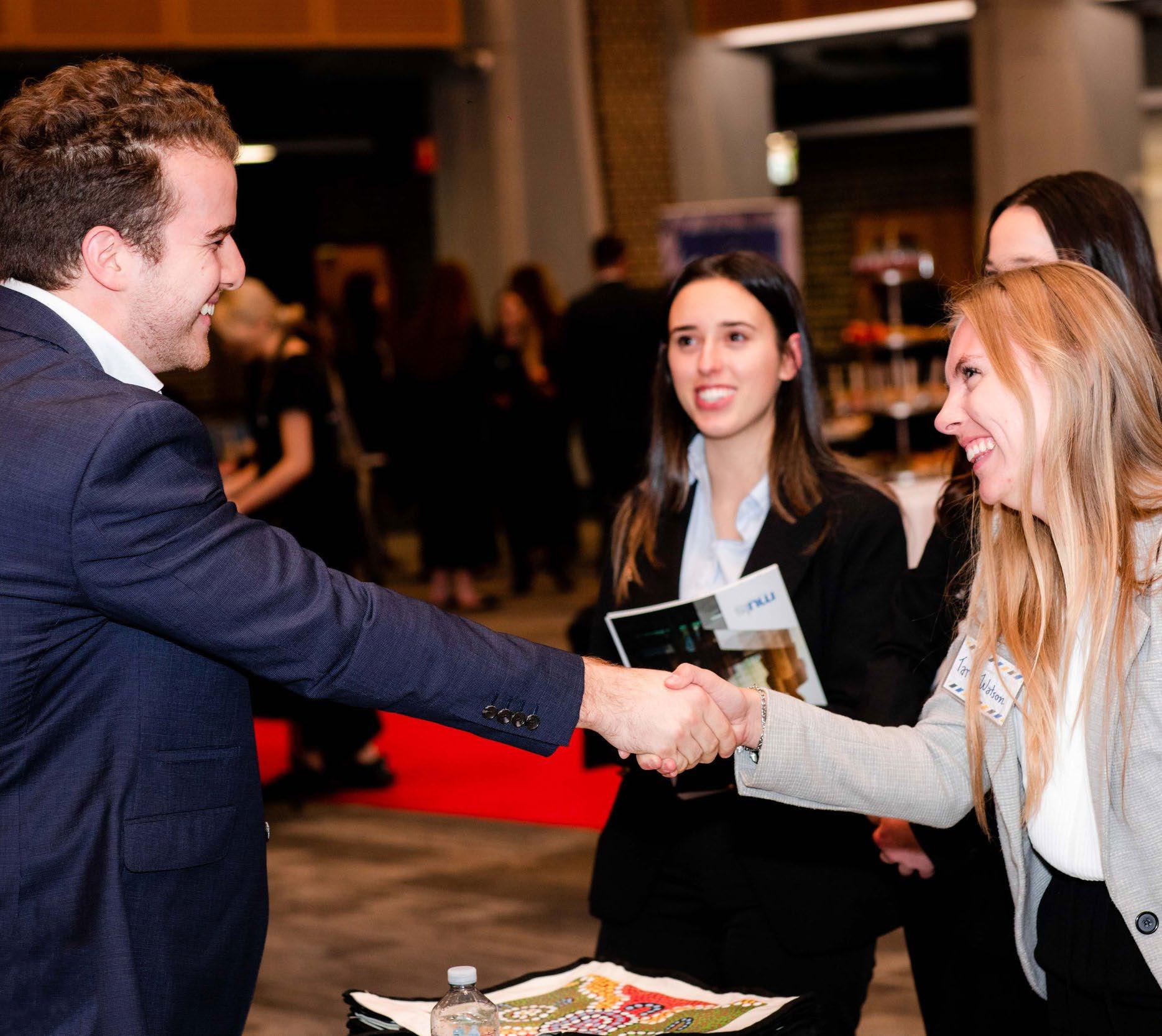
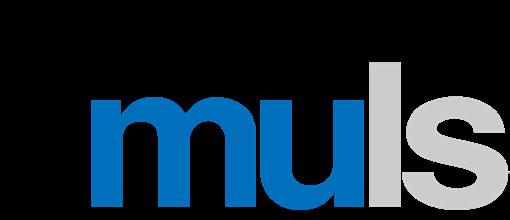
PENULTIMATE / FINAL YEAR LAW *** SUMMER 2023
Meet and work with Australian commercial law firms this summer.
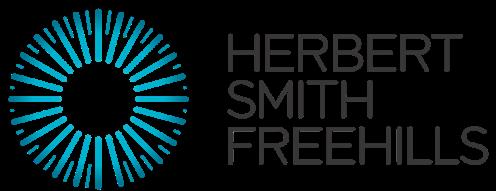
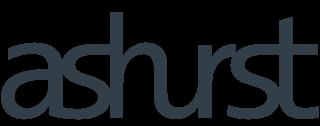




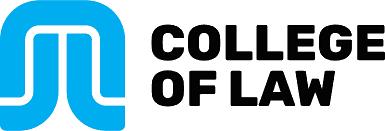




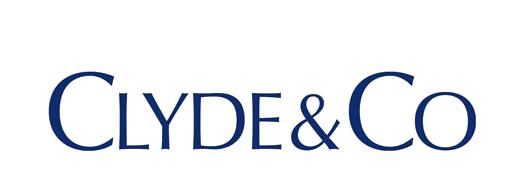

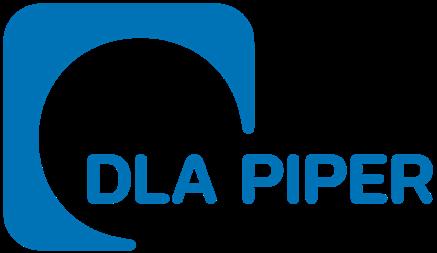







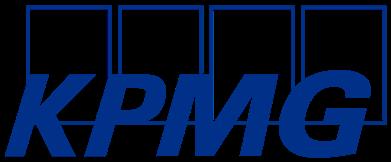


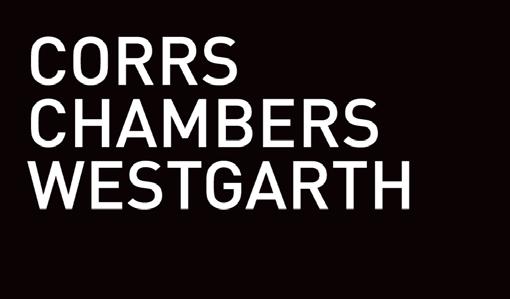
Special Thanks Platinum Gold Silver Supporting
Welcome Introduction to Clerkships
Contributors
Director of Publications
Mikaela Mariano
Director of Career Engagement
Kristy Spinelli
Editor
Joshua Brereton
Designer
Julien Ortiz
The Process: Written Application
The Process: Interview Skills and Networking
Testimonials: Past Clerkship Experiences
President
Brendan Piech
Contributors
Connor Barrs
Damian Bachor
Kimberly La
Jack Vanzino
Sharon Zhang
Adrian Brett
Brittany Ryan
Kaitlyn Wilkins-Fraser
Isabella Maurici
Serena Johnson
Participating Firms
DISCLAIMER:
The views expressed in this publication do not necessarily reflect those of the Editor, Publications Director or the Macquarie University Law Society, and this publication is in no way associated with Macquarie University. While every effort has been made to ensure the accuracy of the information in this guide as of May 18 2023, please note that such information is subject to change without notice. The advice provided in this publication is solely advisory and should not be relied upon as professional advice. This publication is being distributed free of charge, with the understanding that the authors, Editor, Publications Director
Kyle Denning
Martin Grassi
Heather Pym
Emily Peachey
Georgia Weeden
Jonathan Amirzaian
Isabella Baweja
Max Glover
Ali Moore
Cassandra Krylov
Acknowledgement of Country
Macquarie University Law Society acknowledges the traditional custodians of the land on which Macquarie University is located, the Wattamattagal clan of the Darug Nation, whose culture and customers have nurtured, and continue to nurture, since the Dreamtime. We pay our respect to Elders past, present and emerging.
and any persons related to this publication are not responsible for any actions or omissions based on the information provided within this publication.
By using this guide, the user acknowledges that they are responsible for their own actions and will not hold the Editor, Publications Director or Macquarie University Law Society liable for any damages resulting from the use of this publication. MULS encourages all summer clerkship applicants to confirm all information with the firms in question.
3
of
04 06 18 24 34
Table
Contents
74
*
Welcome to the Clerkship Guide.
PRESIDENT'S WELCOME

Brendan Piech
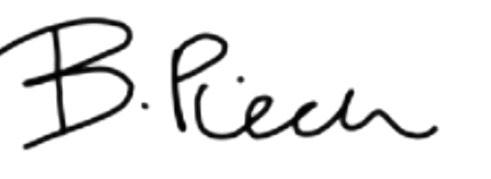
As the clerkship season dawns upon us again, the upcoming months bring forth a range of emotions, such as excitement, eagerness, desires, uncertainty, and anxious anticipation among many students. The culmination of years of academic commitment, extracurricular activities, and work experience within respective fields are now reflected on paper and presented to firms.
The 2023 MULS Clerkship Guide serves as a vital source of information and guidance about the organisations themselves and the experiences of those who have successfully navigated the clerkship application process. We extend our gratitude to the 2023 participating firms for their continued support of MULS and the Macquarie Law School community.
The Careers Director, Kristy, and the Publications Director, Mikaela, and their respective teams, are responsible for producing the 2023 MULS Clerkship Guide. Their meticulous efforts in sponsorship and publication endeavours have resulted in a comprehensive and invaluable resource.

It is pertinent to acknowledge that securing a clerkship is a highly competitive pursuit. While it may sound cliché, it is crucial to remember that where one door closes, another one opens. We wish all applicants the best of luck.
PUBLICATIONS DIRECTOR
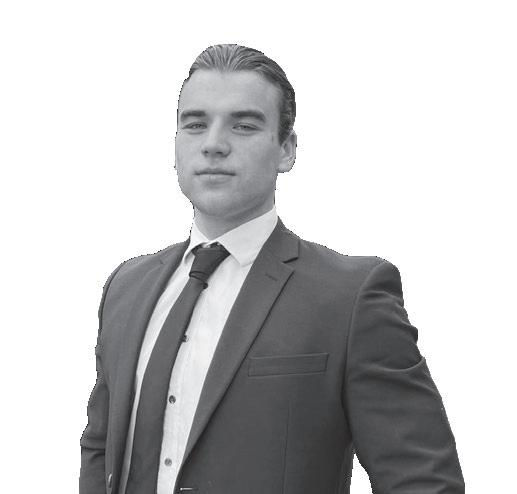
Mikaela Mariano
It is my pleasure to welcome you to the 2023 Clerkship Guide! Being one of the most anticipated and sought-out publications, this guide will assist students interested in attaining a Clerkship. Clerkships are an excellent opportunity to dive into the world of commercial law, enriching your academic, personal and professional pursuits. Ranging from Common Practice Areas, Interview Tips and Former Clerk Testimonials and recruitment process, this guide will be an invaluable reference in understanding the application process. We hope this guide will encourage penultimate students to expand their knowledge, skills and connections navigating through the Clerkship Process.
Complementing this Guide will also be the Resume and Cover Letter Guide, a novel publication for MULS, that provides students with useful tips on how they could structure their resumes and cover letters.
I would like to thank all the contributors who have provided insight to students eager to learn more about the firms they wish to apply to, Kristy, Careers Director, for her hard work with the sponsorship assistance and Josh who assisted me in editing this whole guide. I extend my thanks to Julien, the graphic designer of this Guide.
Best of luck for everyone who is applying for clerkships this year!
CLERKSHIP GUIDE 2023 MACQUARIE UNIVERSITY LAW SOCIETY 4 WELCOMES
CAREER ENGAGEMENT DIRECTOR

Kristy Spinelli
Welcome to the 2023 MULS Clerkship Guide!
Clerkships are a key piece in the puzzle of a career in commercial law. That said, for those applying, it is important to remember that your wellbeing reigns priority, and Clerkships are not the only avenue into commercial law, should such a career direction be of interest to you.
This publication is designed to assist students during the Clerkship process, providing resources and information students may not otherwise know. The Clerkship application process is notorious for its difficulty, and this guide aims to demystify common misconceptions for students’ benefit.
I am proud to present this Publication to you, and I would like to thank our sponsors and previous Clerks who have given their time, effort, and expertise to provide invaluable contributions.
Similarly, I am indebted to Brendan, Mikaela, and Joshua for their hard work and dedication in the creation of the Clerkship Guide. Every year, students look forward to this publication, and its quality is a testament of these efforts.
I hope you find the Clerkship Guide helpful, and wish you the best of luck not only in the Clerkship process, but in your future careers.
EDITOR'S NOTE
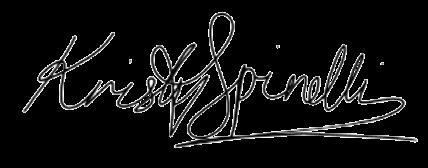
Joshua Brereton
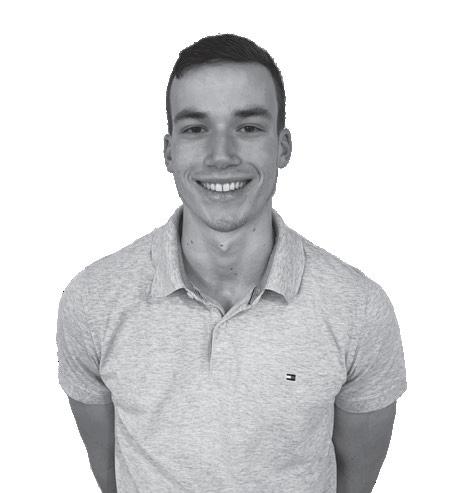
This Guide will provide essential information concerning the upcoming clerkship season. Whether you are intimately familiar with the clerkship process or have never even heard of a clerkship, this guide is a must-read.
This publication offers guidance on all you need to know about clerkships. It will answer questions such as: What is a clerkship? What is involved in the extensive application and interview process? Do clerkships guarantee a transition into graduate programs at both the national and international level?
This Guide explores the nature and magnitude of ‘Big Law’ in Australia and international secondment opportunities, helping students consider whether it is the right career path for them. For those who may not envision a career in Big Law, there are alternative career options, as will be explored in our Alternative Careers Guide.
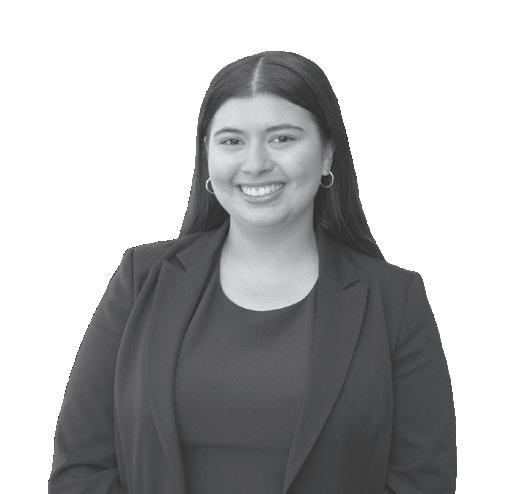
This Guide can assist penultimate and final year students in refining their applications, identifying and overcoming any weaknesses and absorbing key information with respect to both the procedural and substantive elements of the clerkship journey. This Guide provides a fresh sense of perspective by encapsulating recent first-hand insights into firm dynamics, culture and practice areas through former clerk testimonials. We will also offer interview and networking tips, and a novel ‘Resumé and Cover Letter Guide.’
Should you choose to take this path and practice in commercial law, best of luck in your clerkship application!
CLERKSHIP GUIDE 2023 MACQUARIE UNIVERSITY LAW SOCIETY 5 WELCOMES
*
An Overview: Clerkships 101 Clerkship Timeline & Process Key Dates for 2023 Clerkship Program Common Practice Areas Wellbeing 07 0809 10 15
INTRODUCTION TO CLERKSHIPS
An Overview: Clerkships 101 *
01.
What is a clerkship?
Law clerkships are paid employment programs at law firms that last for approximately ten weeks over the summer break. A clerkship provides students with the opportunity to experience life in a commercial law firm and develop their networks and personal and professional skills. Clerkship programs are offered by most top and mid-tier firms.
02. Why should I do a clerkship?
Although it is possible to obtain employment in a commercial firm without a clerkship, they serve as a reliable stepping stone into a graduate position and other future employment opportunities.
Clerkships provide law students with exposure to a diverse range of law practice areas, as clerks often complete 2-3 rotations within the firm. This is an excellent way to gain insight into and first-hand experience in the multi-faceted nature of law with exposure in various practice areas.
03. Where can I do a clerkship?
Most top and mid-tier law firms offer formal seasonal (winter and summer) clerkship programs. These firms include, but are not limited to:




• The ‘Big 6’ law firms in Australia: Allens, King & Wood Mallesons, Herbert Smith Freehils, Clayton Utz, Ashurst, and Minter Ellison
• International law firms such as Allen & Overy, Baker McKenzie, Clyde & Co, Clifford Chance, and Norton Rose Fulbright
• National market law firms such as HWL Ebsworth, Johnson Winter & Slattery, and Maddocks
04. Who is eligible to apply?
Students in their penultimate and final year are eligible to apply for clerkships. Nevertheless, firms typically look for certain characteristics in potential clerks.
Alternative options
If you do not receive an offer for a clerkship but are committed to pursuing a career in commercial law, there are other routes you can explore. One option is to pursue a paralegal role, which can offer valuable experience and qualifications that might boost your chances of qualifying for a graduate position later. Alternatively, you can opt to prolong your degree by taking only three subjects per semester and try for a clerkship the following year. While this decision may appear drastic, it is a common occurrence within the law school community.
CLERKSHIP GUIDE 2023 MACQUARIE UNIVERSITY LAW SOCIETY 7 AN OVERVIEW: CLERKSHIPS 101
Clerkship Timeline & Process
1. The Application
Submission of a cover letter, CV, official academic transcript and possibly, a psychometric test. Numerous law firms also use psychometric testing.
Depending on the firm, applications can be submitted via:
• cvMail;
• An online application on the firm’s website; or
• A ‘Student Application Form’ that can be downloaded from the NSW Law Society website.
2. First Round Interviews
If impressed by your application, a firm will invite you to attend a first round interview.
Key dates for 2023 Summer Clerkship Programs
Monday 5 June
Applications for summer clerkships open.
Sunday 2 July & Sunday 9 July
Applications for summer clerkships close.
CLERKSHIP GUIDE 2023 MACQUARIE UNIVERSITY LAW SOCIETY 8 TIMELINE AND KEY DATES
3. Second Round Interviews & Cocktail Evenings
Should your first interview go well, a firm may invite you to attend a second interview and, in some circumstances, a cocktail evening.
5. Accepting or declining offers
Once you have received an offer(s), you may accept or decline. Even if you decide to decline an offer, it is courteous to thank your interviewer via email and call the HR representative at the firm.
4. Offers
Based on how you performed in these interviews, you may be offered a summer clerkship position!
These clerkship dates are provided by the NSW Law Society: https://www.lawsociety.com.au/LegalCommunities/Law-Students/Clerkship-RecruitmentProgram. Some firms may differ slightly but this is a standard timeline that a vast majority follow.
Wednesday 13 September
Offers for summer clerkships can be made.
Thursday 14 September
Offers for summer clerkships must be accepted or declined by 5.00pm
CLERKSHIP GUIDE 2023 MACQUARIE UNIVERSITY LAW SOCIETY 9 TIMELINE AND KEY DATES
*
DO YOU (ALREADY) HAVE WHAT IT TAKES?
DO YOU (ALREADY) HAVE WHAT IT TAKES?
DO YOU (ALREADY) HAVE WHAT IT TAKES?
THE 7 IN-DEMAND TRANSFERABLE SKILLS
THE 7 IN-DEMAND TRANSFERABLE SKILLS
THE 7 IN-DEMAND TRANSFERABLE SKILLS
When applying for jobs, you need to convince employers that you have the skills, knowledge and motivation to excel at their organisation.
When applying for jobs, you need to convince employers that you have the skills, knowledge and motivation to excel at their organisation.
Employers understand that core legal skills – like drafting and advocacy – are developed over the course of a career. So they’re also keen to know which transferable skills you’ve already acquired outside the world of law.
When applying for jobs, you need to convince employers that you have the skills, knowledge and motivation to excel at their organisation.
Take a moment to reflect on the skills you’ve been sharpening in several settings, such as your:
Employers understand that core legal skills – like drafting and advocacy – are developed over the course of a career. So they’re also keen to know which transferable skills you’ve already acquired outside the world of law.
Employers understand that core legal skills – like drafting and advocacy – are developed over the course of a career. So they’re also keen to know which transferable skills you’ve already acquired outside the world of law.
• General work experience
• Sport teams
Take a moment to reflect on the skills you’ve been sharpening in several settings, such as your:
• University projects
• General work experience
• Community activities
Take a moment to reflect on the skills you’ve been sharpening in several settings, such as your:
• Sport teams
• General work experience
• Volunteering
• University projects
• University projects
• Sport teams
• Community activities
Now, let’s examine the top transferable skills employers want to see in new grads. And how each one will prove useful time and again throughout your career.
• Volunteering
• Volunteering
• Community activities
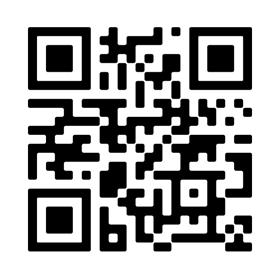


Now, let’s examine the top transferable skills employers want to see in new grads. And how each one will prove useful time and again throughout your career.
Now, let’s examine the top transferable skills employers want to see in new grads. And how each one will prove useful time and again throughout your career.
The top transferable skills you can bring to a legal role
1. Problem-solving: Determining what is legally relevant requires you to sift through lots of information and establish the legal significance of key findings. Likewise, you’ll draw upon your creativity and strategic thinking to identify client objectives and solve novel problems.
The top transferable skills you can bring to a legal role
The top transferable skills you can bring to a legal role
2. Research: As a new grad, you’ll often need to locate and read through cases, statutes and other materials. You’ll draw on your research skills as you navigate legal databases, legislation and physical texts to resolve complex questions.
1. Problem-solving: Determining what is legally relevant requires you to sift through lots of information and establish the legal significance of key findings. Likewise, you’ll draw upon your creativity and strategic thinking to identify client objectives and solve novel problems.
1. Problem-solving: Determining what is legally relevant requires you to sift through lots of information and establish the legal significance of key findings. Likewise, you’ll draw upon your creativity and strategic thinking to identify client objectives and solve novel problems.
3. Verbal communication: To be successful in law, you’ll need to state cases with precision. It’s key that you distil facts and information into an easy-to-understand summary. Many similar skills will also be valuable throughout your career –like empathic listening, asking the right questions, formulating arguments and interviewing.
2. Research: As a new grad, you’ll often need to locate and read through cases, statutes and other materials. You’ll draw on your research skills as you navigate legal databases, legislation and physical texts to resolve complex questions.
2. Research: As a new grad, you’ll often need to locate and read through cases, statutes and other materials. You’ll draw on your research skills as you navigate legal databases, legislation and physical texts to resolve complex questions.
4. Negotiation: From time to time, you’ll be asked to resolve challenging issues in a way that both parties find acceptable. You’ll need to learn about the strengths and weaknesses of the other person’s position – to help propose a mutually agreeable resolution.
3. Verbal communication: To be successful in law, you’ll need to state cases with precision. It’s key that you distil facts and information into an easy-to-understand summary. Many similar skills will also be valuable throughout your career –like empathic listening, asking the right questions, formulating arguments and interviewing.
3. Verbal communication: To be successful in law, you’ll need to state cases with precision. It’s key that you distil facts and information into an easy-to-understand summary. Many similar skills will also be valuable throughout your career –like empathic listening, asking the right questions, formulating arguments and interviewing.



5. Written communication: You’ll often need to write for specific audiences and formats – like case notes, letters, memos, legal pleadings, court documents and contracts. So being clear, succinct and engaging is key. Translating complex legal concepts for clients and stakeholders is a very valuable skill.
4. Negotiation: From time to time, you’ll be asked to resolve challenging issues in a way that both parties find acceptable. You’ll need to learn about the strengths and weaknesses of the other person’s position – to help propose a mutually agreeable resolution.
4. Negotiation: From time to time, you’ll be asked to resolve challenging issues in a way that both parties find acceptable. You’ll need to learn about the strengths and weaknesses of the other person’s position – to help propose a mutually agreeable resolution.
6. Time management: Legal organisations are often fast-paced and high-pressure environments. If you can demonstrate your ability to juggle conflicting priorities and workloads, employers will welcome you with open arms.
5. Written communication: You’ll often need to write for specific audiences and formats – like case notes, letters, memos, legal pleadings, court documents and contracts. So being clear, succinct and engaging is key. Translating complex legal concepts for clients and stakeholders is a very valuable skill.
7. Client management: Building healthy, ongoing relationships with stakeholders will be a core task throughout your career. Some clients may prove to be extremely demanding due to their challenging legal circumstances. So strong people management skills will allow you to manage the diverse needs of your clients.
5. Written communication: You’ll often need to write for specific audiences and formats – like case notes, letters, memos, legal pleadings, court documents and contracts. So being clear, succinct and engaging is key. Translating complex legal concepts for clients and stakeholders is a very valuable skill.
6. Time management: Legal organisations are often fast-paced and high-pressure environments. If you can demonstrate your ability to juggle conflicting priorities and workloads, employers will welcome you with open arms.
6. Time management: Legal organisations are often fast-paced and high-pressure environments. If you can demonstrate your ability to juggle conflicting priorities and workloads, employers will welcome you with open arms.
7. Client management: Building healthy, ongoing relationships with stakeholders will be a core task throughout your career. Some clients may prove to be extremely demanding due to their challenging legal circumstances. So strong people management skills will allow you to manage the diverse needs of your clients.
7. Client management: Building healthy, ongoing relationships with stakeholders will be a core task throughout your career. Some clients may prove to be extremely demanding due to their challenging legal circumstances. So strong people management skills will allow you to manage the diverse needs of your clients.
Want to gain sought-after skills, fresh thinking – and the most supportive network of mentors you could hope for?
Gain the expertise you need to excel with Practical Legal Training. Learn more at collaw.edu.au/PLT
Want to gain sought-after skills, fresh thinking – and the most supportive network of mentors you could hope for?
Gain the expertise you need to excel with Practical Legal Training. Learn more at collaw.edu.au/PLT
Want to gain sought-after skills, fresh thinking – and the most supportive network of mentors you could hope for?
Gain the expertise you need to excel with Practical Legal
MACQUARIE UNIVERSITY LAW SOCIETY SECTION NAME 10
Common Practice Areas
Below is a non-exhaustive list of the primary practice areas in which commercial law firms engage. It is important to research the practice groups and areas of specialisation of each firm.
Corporate Law
This group handles commercial litigation and transactions.
Although the work may be complex, you will likely be involved in significant transactions with large companies and have a busy workflow.
The group is often divided into smaller sub-sections such as:
• Mergers and Acquisitions
• Private Equity
• Company Law and Governance, and
• Superannuation Funds Management.
• You may encounter work dealing with:
• Contractual arrangements between companies;
• Advising clients about the administration and governance of their company; or
• Providing advice about the legality of mergers and acquisitions.
You may encounter work dealing with:
• Contractual arrangements between companies;
• Advising clients about the administration and governance of their company; or
• Providing advice about the legality of mergers and acquisitions.
Employment and Industrial Relations Law
Employment and Industrial Relations Law covers numerous areas including, but not limited to:
• unfair dismissal;
• discrimination and equal opportunity;
• occupational health and safety;
• trade practices; and
• contracts.
In this area, the type of work includes:
• client meetings;
• legal research on client issues;
• drafting letters of advice; or
• corresponding with the Industrial Relations Commission and other courts and tribunals.
•
Insolvency Law
Insolvency law is primarily governed by the Corporations Act and deals with the winding down of companies and the various relationships between stakeholders when a company can no longer pay its debts.


This area of law covers both litigious and transactional matters, ranging in size from large corporate restructures to relatively small debt recovery matters.
Work in this area of law may include
• Drafting court documents and other transactional documents;
• Company searches;
• Drafting advice for clients on the verge of insolvency or those that have already become insolvent;
• Negotiating with creditors to resolve a company’s debts;
• Negotiations with the appointed manager of a company’s assets once it is insolvent
Litigation and Dispute Resolution
This practice area deals with litigious matters referred from other departments of the firm.
Litigation and Dispute Resolution concerns mitigating or resolving disputes and conflicts and developing preventative strategies to avoid situations before they occur.
You may encounter work dealing with:
• Matters relating to drafting or considering pleadings;
• Particulars, evidence, discovery and subpoenas;
• Attending settlement discussions or alternative dispute resolution discussions;
• Preparing for trial and court attendances;drafting advice to clients;
• Meeting with witnesses and taking legal statements
CLERKSHIP GUIDE 2023 MACQUARIE
LAW SOCIETY
UNIVERSITY
* COMMON PRACTICE AREAS 11
Property Law
Covers a range of practice groups, including matters related to construction, infrastructure, and the environment. It is an extensive and important area of legal practice, and property lawyers possess highly sought-after skills.
Their work ranges from large-scale matters to minor transactional negotiations, and they often have high levels of contact with clients. This is because each property deal is unique and requires a thorough understanding of the desires of particular clients.
Typical property work includes:
• Advising on commercial, industrial and retail property matters;
• Reviewing property contracts;
• Advising on the due diligence process during the sale and purchase of real estate and businesses;
• Completing complicated arraignments relating to tenures and titles; or
• Undertaking negotiations for variations of leases.
• acquisitions.
Further, within a Construction team, you may be involved with:
• Negotiating, drafting and advising clients on contracts for large-scale infrastructure work; or
• Providing advice in relation to the financing of infrastructure developments.
Banking and Finance
The Banking and Finance group deals mainly with the debt component of corporate transactions.
Work in this area of law may include
• finance (focusing on financing developments or exploiting assets);
• debt capital markets;
• consumer financial services (drafting contracts and arrangements for financial service providers and large corporations); and
• securitisation, or property finance (assisting in managing the finance of commercial, residential and retail properties).
Work in this group may include:
• Preparing and coordinating conditions precedent;
• Drafting and reviewing various types of securities;
• Drafting documents such as board minutes, powers of attorney, short form loan agreements, legal opinions, deeds of release and documentation in relation to financial assistance;
• Preparing for and coordinating signings and completions;
• Researching and preparing advice on various legal issues; and
• Corresponding with clients and team members.
Public Law
Public Law is a legal field that deals with the relationship between individuals, corporations, and the government. Public lawyers work on administrative law, constitutional law, legislative challenges, governance, human rights, public policy, and judicial review.
They advise on regulatory compliance, handle disputes with government agencies, and represent clients before tribunals and courts, including the High Court of Australia. Public Law is crucial to ensuring that government actions are lawful, fair, and accountable, and to maintaining the balance of power in Australia's democratic society.
Work in this area of law may include:
• Conveyancing: oversee the legal process of transferring property ownership from one party to another. This includes reviewing and preparing contracts of sale, liaising with banks regarding mortgage arrangements, and managing settlement processes.
• Leasing: advise on commercial and residential leases, including the negotiation and drafting of lease agreements, advising on lease disputes, and managing terminations.
• Property Development: assist clients in navigating the complex regulations and laws surrounding property development, including planning permissions, zoning laws, and environmental considerations.
• Real Estate Finance: advise on financial aspects of real estate transactions, such as loan agreements, securities, and mortgages.
• Dispute Resolution: represent clients in real estate disputes before courts and tribunals, including disputes over property boundaries, easements, and property defects.
CLERKSHIP GUIDE 2023 MACQUARIE UNIVERSITY LAW SOCIETY COMMON
PRACTICE AREAS
12
Competition and Consumer Protection
This Act is divided into two main parts:
1. sections dealing with regulating the level of competition between businesses and companies,
2. and sections regulating consumer protection (known as the Australian Consumer Law).
Competition work will likely involve:
• advising companies prior to proposed mergers about whether the ACCC will accept such a change in their industry;
• advising clients about how to restructure mergers to ensure a healthy level of competition remains within the market;
• advising with respect to the development of facility infrastructure and access agreements; and
• liaising with the ACCC on behalf of clients.
Taxation Law
Working in this rotation requires a constant update and maintenance of legal knowledge, as tax work involves a continuous stream of legislation and litigation.
Tax work requires one to be well-versed in both statute and case law and often work with clients to analyse tax-based issues and provide legal advice. It is also essential for lawyers to maintain their knowledge of other areas of commercial litigation, such as property, contract, trust, and company law, as these areas can have implications for tax-related matters.
Typical responsibilities may include:
• Answering and responding to client inquiries on their tax problem;
• Communicating and coordinating with tax officials regarding clients’ tax issues;
• Preparing tax returns in accordance with the taxation laws;
• Providing clerical support to the tax audit team;
• Maintaining and organising tax files, records and statements of clients;
• Assembling tax data required for federal and state income;
• Assessing and reviewing tax data and information while preparing tax returns; and
• Adhering to the established practices of client confidentiality.
Energy and Natural Resources
This group focuses on providing IP services that cover the registration, commercialization, and enforcement of intellectual property (IP) rights.
Intellectual property lawyers are responsible for developing legal strategies to protect the commercial potential of brands, as well as engaging in litigation work if there is a breach of IP rights.
Work in this group may involve:
• drafting advice on the identification, protection and management of patents and trademarks,
• drafting agreements relating to licensing, franchising and transferring rights;
• advising on copyright, confidential information and unfair competition issues;
• enforcing all IP rights using dispute resolution or litigious methods; and
• advising on marketing agreements.
Pro Bono
Pro bono practice refers to the provision of legal services either for free or at a reduced rate to individuals, communities, and organisations who may not have access to justice otherwise.
This practice covers a broad range of legal issues, including immigration and refugee law, family law, environmental law, human rights, and social justice matters. It's the legal profession giving back, using the power of law to make a real difference
Common tasks in this area of law will likely be:
• To advocate in court, provide legal advice, and often engage in policy reform and community education.
• Legal Representation: Lawyers represent individuals or organisations who cannot afford legal services in court or before tribunals. This could involve anything from a family law to a human rights case.
• Legal Advice: provide free or low-cost advice to clients on a wide range of legal issues. This could be a one-off consultation or ongoing advice throughout a legal matter.
• Legal Education: often engage in community legal education, providing resources and workshops to help people understand their legal rights and responsibilities.
• Policy Advocacy: work on law reform or policy advocacy, using their legal expertise to advocate for changes to laws and policies that disproportionately affect disadvantaged individuals or communities.
• Case Preparation: drafting legal documents, conducting legal research, gathering evidence, and preparing for hearings or trials.
CLERKSHIP GUIDE 2023 MACQUARIE UNIVERSITY LAW SOCIETY
This practice provides a legal analysis of taxbased issues and the practical application of the law. Therefore, it is not a requirement to have a background in account or finance to become a tax lawyer.
This is a specialised group within the firm that essentially deals with breaches of the Competition and Consumer Act 2010 (Cth).
COMMON PRACTICE AREAS 13
Technology, Media and Communications (TMT)
The TMT (Technology, Media, and Telecommunications) area of law intersects with multiple areas of domestic and international law, including digital law, privacy law, artificial intelligence, and intellectual property. It involves litigating, advising, and transacting in relation to various matters such as national broadband, regulatory reform, mergers and acquisitions, telecommunications regimes, social media, and gaming.
TMT work will likely involve:
• Providing leading advice and solutions across competition law, M&A, joint ventures and strategic partnership structuring and negotiations, data protection, privacy and cybersecurity, intellectual property;
• Resolving disputes and handling litigation related to TMT disputes; and
• Advising on TMT regulatory reform and how clients can navigate compliance issues and mitigate risk.
Construction
Construction law is a legal practice that encompasses advisory, transactional, and litigious matters related to construction projects for both private and public clients. This field of law deals with a wide range of issues, including contract disputes, approvals and clearances, and construction contracts.
This area of law covers both litigious and transactional matters, ranging in size from large corporate restructures to relatively small debt recovery matters.
Work in this area of law may include:
• Advising and representing clients in large-scale construction contracts;
• Advising private investors, developers, and contractors of infrastructure assets, and all levels of Government, across major construction projects;
• Advising on complex legal and commercial implications throughout the development and delivery of major infrastructure projects, including acquisition, financing, project structuring, risk management, and contract administration; and
• Handling litigation and dispute resolution related to construction matters
Real Estate
Real estate is a dynamic and complex field that governs various aspects of buying, selling, leasing, and developing land and properties.
They provide advice on contracts, navigate complex tax implications, negotiate deals, and represent clients in litigations, from residential property sales to vast commercial development projects.
Intersects with other areas, such as taxation, construction, work health and safety, environment planning, M&A, finance, litigation and disputes, and capital markets.
Real estate ntersects with other areas, such as taxation, construction, work health and safety, environment planning, M&A, finance, litigation and disputes, and capital markets.
Real estate work will likely involve:
• Advising on large-scale real estate development;
• Advising private developers and public authorities on major developments incorporating retail, commercial, residential and industrial projects; and
• Advising on complex transactions, covering a range of asset classes and industry sectors.
Intellectual Property (IP)
This group focuses on providing IP services that cover the registration, commercialization, and enforcement of intellectual property (IP) rights.
Intellectual property lawyers are responsible for developing legal strategies to protect the commercial potential of brands, as well as engaging in litigation work if there is a breach of IP rights.
Work in this area of law may include:
• drafting advice on the identification, protection and management of patents and trademarks,
• drafting agreements relating to licensing, franchising and transferring rights;
• advising on copyright, confidential information and unfair competition issues;
• enforcing all IP rights using dispute resolution or litigious methods; and
• advising on marketing agreements.
CLERKSHIP GUIDE 2023 MACQUARIE UNIVERSITY LAW SOCIETY COMMON
PRACTICE AREAS
* 14
Wellbeing
Navigating the clerkship process can be overwhelming and stressful, especially when juggling multiple applications, university commitments, jobs and your personal life. While it's completely normal to feel this way, it’s important to take care of yourself. Here are some tips to look after your wellbeing during this time:
Self Care During The Clerkship Process
Prepare early and be organised
Researching well in advance is key! Begin exploring different firms as soon as possible. When you have decided on the firms that interest you, create a list of their requirements and add their key dates to your calendar. This will enable you to keep track of various application deadlines and interview dates.
Knowing what needs to be done, and when, can help you manage your time and avoid unnecessary stress from the final scramble to get everything submitted in time.
Maintain a daily routine
Routines help us feel organised and productive. Routines signal change in the time of day, let us know when to eat, take a break and relax. Maintaining a routine is still possible when life is chaotic. It can help you feel more in control, when life seems rather out of control.
Make time for yourself
Don’t forget to take a break from everything clerkship-related and make time for the things you love to do! Whether it’s going for a walk, coffee catch-ups with a friend, or trying a new recipe, make sure you set aside time to reward yourself.
Find a good support network
Let your friends and family know that you are going through a busy and stressful time. Talking to people about what you are doing can help your mental wellbeing, whether it's over the phone, text, or in person. You could also find a clerkship buddy — a friend who is sharing the same experience so you don't feel alone.
Get enough sleep
Sleep plays a significant role in your mental and physical health as allows you to recover after a stressful day. Aim to get between 7-9 hours of sleep each night.
Dealing with rejection
Rejection is inevitable. Keep in mind the high volume of applications a firm is receiving and the number of clerk positions on offer. Although it may seem disheartening when you see people around you land their ‘dream job', remember, rejection is just redirection. Keep it in perspective, learn from it, consider next steps, and carry on. Turn this rejection into another opportunity — perhaps you can volunteer at a community legal centre, find other part-time work, or focus on your studies.
CLERKSHIP GUIDE 2023 MACQUARIE UNIVERSITY LAW SOCIETY 15 " " WELLBEING
01.
*
04. 05. 06. 02. 03.
Rejection does not define you as a law student, nor does it reflect your suitability for a career in commercial law. Be kind to yourself.
If you’re finding it hard to cope with the pressures of clerkship applications or experiencing personal difficulties, there is a free health and wellbeing service, Student Wellbeing, located at the Australian Hearing Hub, 16 University Avenue, that provides counselling services.
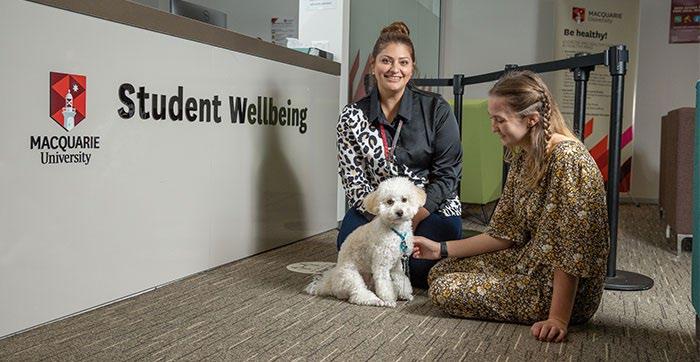
You can reach them at 9850 7497, wellbeing@mq.edu.au, or through their website at https:// students.mq.edu.au/support/wellbeing.
All students can access their 24-hour information and referral service by dialling 1800 CARE MQ (1800 2273 67). This service is free and available any time, any day, and the number can be found on the back of your campus card.
Beyond this, please see the below numbers for accessible mental health services: Beyond
CLERKSHIP GUIDE 2023 MACQUARIE UNIVERSITY LAW SOCIETY 16 SUPPORT
Support
Blue Headspace
(24 hours) NSW Mental Health Line
Lifeline
14
011 511
Image by Maja Baska.
1300 224 636 1800 650 890 13 11
1800
DO YOU (ALREADY) HAVE WHAT IT TAKES?
DO YOU (ALREADY) HAVE WHAT IT TAKES?
DO YOU (ALREADY) HAVE WHAT IT TAKES?
THE 7 IN-DEMAND TRANSFERABLE SKILLS
THE 7 IN-DEMAND TRANSFERABLE SKILLS
THE 7 IN-DEMAND TRANSFERABLE SKILLS
When applying for jobs, you need to convince employers that you have the skills, knowledge and motivation to excel at their organisation.
When applying for jobs, you need to convince employers that you have the skills, knowledge and motivation to excel at their organisation.
Employers understand that core legal skills – like drafting and advocacy – are developed over the course of a career. So they’re also keen to know which transferable skills you’ve already acquired outside the world of law.
When applying for jobs, you need to convince employers that you have the skills, knowledge and motivation to excel at their organisation.
Take a moment to reflect on the skills you’ve been sharpening in several settings, such as your:
Employers understand that core legal skills – like drafting and advocacy – are developed over the course of a career. So they’re also keen to know which transferable skills you’ve already acquired outside the world of law.
Employers understand that core legal skills – like drafting and advocacy – are developed over the course of a career. So they’re also keen to know which transferable skills you’ve already acquired outside the world of law.
• General work experience
• Sport teams
Take a moment to reflect on the skills you’ve been sharpening in several settings, such as your:
• University projects
• General work experience
• Community activities
Take a moment to reflect on the skills you’ve been sharpening in several settings, such as your:
• Sport teams
• General work experience
• Volunteering
• University projects
• University projects
• Sport teams
• Community activities
Now, let’s examine the top transferable skills employers want to see in new grads. And how each one will prove useful time and again throughout your career.
• Volunteering
• Volunteering
• Community activities



Now, let’s examine the top transferable skills employers want to see in new grads. And how each one will prove useful time and again throughout your career.
Now, let’s examine the top transferable skills employers want to see in new grads. And how each one will prove useful time and again throughout your career.
The top transferable skills you can bring to a legal role
1. Problem-solving: Determining what is legally relevant requires you to sift through lots of information and establish the legal significance of key findings. Likewise, you’ll draw upon your creativity and strategic thinking to identify client objectives and solve novel problems.
The top transferable skills you can bring to a legal role
The top transferable skills you can bring to a legal role
2. Research: As a new grad, you’ll often need to locate and read through cases, statutes and other materials. You’ll draw on your research skills as you navigate legal databases, legislation and physical texts to resolve complex questions.
1. Problem-solving: Determining what is legally relevant requires you to sift through lots of information and establish the legal significance of key findings. Likewise, you’ll draw upon your creativity and strategic thinking to identify client objectives and solve novel problems.
1. Problem-solving: Determining what is legally relevant requires you to sift through lots of information and establish the legal significance of key findings. Likewise, you’ll draw upon your creativity and strategic thinking to identify client objectives and solve novel problems.
3. Verbal communication: To be successful in law, you’ll need to state cases with precision. It’s key that you distil facts and information into an easy-to-understand summary. Many similar skills will also be valuable throughout your career –like empathic listening, asking the right questions, formulating arguments and interviewing.
2. Research: As a new grad, you’ll often need to locate and read through cases, statutes and other materials. You’ll draw on your research skills as you navigate legal databases, legislation and physical texts to resolve complex questions.
2. Research: As a new grad, you’ll often need to locate and read through cases, statutes and other materials. You’ll draw on your research skills as you navigate legal databases, legislation and physical texts to resolve complex questions.
4. Negotiation: From time to time, you’ll be asked to resolve challenging issues in a way that both parties find acceptable. You’ll need to learn about the strengths and weaknesses of the other person’s position – to help propose a mutually agreeable resolution.
3. Verbal communication: To be successful in law, you’ll need to state cases with precision. It’s key that you distil facts and information into an easy-to-understand summary. Many similar skills will also be valuable throughout your career –like empathic listening, asking the right questions, formulating arguments and interviewing.
3. Verbal communication: To be successful in law, you’ll need to state cases with precision. It’s key that you distil facts and information into an easy-to-understand summary. Many similar skills will also be valuable throughout your career –like empathic listening, asking the right questions, formulating arguments and interviewing.



5. Written communication: You’ll often need to write for specific audiences and formats – like case notes, letters, memos, legal pleadings, court documents and contracts. So being clear, succinct and engaging is key. Translating complex legal concepts for clients and stakeholders is a very valuable skill.
4. Negotiation: From time to time, you’ll be asked to resolve challenging issues in a way that both parties find acceptable. You’ll need to learn about the strengths and weaknesses of the other person’s position – to help propose a mutually agreeable resolution.
4. Negotiation: From time to time, you’ll be asked to resolve challenging issues in a way that both parties find acceptable. You’ll need to learn about the strengths and weaknesses of the other person’s position – to help propose a mutually agreeable resolution.
6. Time management: Legal organisations are often fast-paced and high-pressure environments. If you can demonstrate your ability to juggle conflicting priorities and workloads, employers will welcome you with open arms.
5. Written communication: You’ll often need to write for specific audiences and formats – like case notes, letters, memos, legal pleadings, court documents and contracts. So being clear, succinct and engaging is key. Translating complex legal concepts for clients and stakeholders is a very valuable skill.
7. Client management: Building healthy, ongoing relationships with stakeholders will be a core task throughout your career. Some clients may prove to be extremely demanding due to their challenging legal circumstances. So strong people management skills will allow you to manage the diverse needs of your clients.
5. Written communication: You’ll often need to write for specific audiences and formats – like case notes, letters, memos, legal pleadings, court documents and contracts. So being clear, succinct and engaging is key. Translating complex legal concepts for clients and stakeholders is a very valuable skill.
6. Time management: Legal organisations are often fast-paced and high-pressure environments. If you can demonstrate your ability to juggle conflicting priorities and workloads, employers will welcome you with open arms.
6. Time management: Legal organisations are often fast-paced and high-pressure environments. If you can demonstrate your ability to juggle conflicting priorities and workloads, employers will welcome you with open arms.
7. Client management: Building healthy, ongoing relationships with stakeholders will be a core task throughout your career. Some clients may prove to be extremely demanding due to their challenging legal circumstances. So strong people management skills will allow you to manage the diverse needs of your clients.
7. Client management: Building healthy, ongoing relationships with stakeholders will be a core task throughout your career. Some clients may prove to be extremely demanding due to their challenging legal circumstances. So strong people management skills will allow you to manage the diverse needs of your clients.
Want to gain sought-after skills, fresh thinking – and the most supportive network of mentors you could hope for?
Gain the expertise you need to excel with Practical Legal Training. Learn more at collaw.edu.au/PLT
Want to gain sought-after skills, fresh thinking – and the most supportive network of mentors you could hope for?
Gain the expertise you need to excel with Practical Legal Training. Learn more at collaw.edu.au/PLT
Want to gain sought-after skills, fresh thinking – and the most supportive network of mentors you could hope for?
Gain the expertise you need to excel with Practical Legal
MACQUARIE UNIVERSITY LAW SOCIETY SECTION NAME 17
THE PROCESS:
WRITTEN APPLICATION
What are firms looking for?
There are so many firms out there — where to start?
What resources are available?
Online Application: cvMAIL and psychometric testing
19 2021 2223
The Application
While there may be certain qualifications or skills that are essential for a particular role, every employer and every job is unique, and there may be a range of factors that determine who the best candidate is. It's important to consider the specific needs and requirements of the position, as well as the individual strengths and experiences of each candidate. Ultimately, there is no “one-size fits all” category of applicant that will always obtain a clerkship, so the best chance of success is by being yourself.
What are firms looking for? Strong academic records
Firms are looking for candidates who demonstrate strong academic records, work experience, and varied extracurricular activities. While spectacular marks alone won't guarantee a clerkship offer, they can improve the credibility of your application. Some firms may consider only applicants with a credit average WAM or higher. As almost all firms will require a current official academic transcript, you should ensure you request a current official academic transcript from Student Connect [https://students.mq.edu.au/study/assessmentexams/academic-transcripts] well before the application deadline.
Your WAM will be indicated at the bottom of your transcript. You should not leave this to the last minute; it is additional stress that can be easily avoided.
Work experience
Work experience is important as it shows you have the skills needed to work effectively in a legal environment. All types of work experience are relevant and useful, even if they aren’t within the legal industry. A job that demonstrates time management skills, for example, can be beneficial when working in commercial law. Although, having prior legal work experience may be desirable.
Varied extracurricular activities
Firms are not only interested in your academic results or work experience. They also want to know what type of person you are. They are seeking well-rounded applicants with qualities related to communication, organisation, commercial awareness and commitment to a career in the law. Involvement in extracurricular activities can also be used to address any weak areas in your academic results or work experience.
Even abstract extracurricular activities can show that you possess relevant skills and can demonstrate commitment.
How can I improve my chances of getting a clerkship?
Study hard — Whilst not the only factor considered, your marks are important.
Get involved at university — Consider getting involved in a society or a MULS subcommittee, signing up as a Macquarie Peer Mentor, competing in a competition or helping out with a charitable cause.
Get legal work experience — Consider interning at a smaller firm, volunteering at a Community Legal Centre or undertaking a PACE work placement unit.
Refine your CV and cover letter — If you require assistance, contact the Macquarie University Career and Employment Service.
Do some practice interviews — Doing mock interviews with a friend can significantly improve your confidence and ability to answer questions well in a real interview.

CLERKSHIP GUIDE 2023 MACQUARIE UNIVERSITY LAW SOCIETY 19 THE APPLICATION
*
1. Research the firms that align with your interests.
Information to research may include:
• Practice areas, firm culture and values;
• Organisational structure and partners;
• Recent transactions, business affairs and clients.
This information can be found through:
• Perusing the firms’ websites;
• Attending events such as firm presentations and other networking opportunities;
• Speaking with former clerks, graduates and HR representatives;
• Reading news sources such as the Australian Financial Review; and Lawyers Weekly may also prove useful. You may also wish to research the broader legal industry and investigate trends in the legal market.
◊ *Note: this is a great way to develop your commercial acumen, a key buzzword in the clerkship application process
2. Make a list of the firms you are interested in and note your reasons for selecting these firms.
• Qualities: Consider what qualities are important to you in a workplace. Do you value teamwork, innovation, flexibility, autonomy, or a specific leadership style? What skills and experiences are you looking to develop in your next role? Identifying your priorities can help you determine if a firm is the right fit for you.
What resources are available?

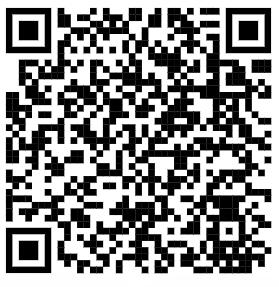
MULS provides a number of events and resources available to students looking to apply for clerkships. This includes:
• Clerkship Firm Presentations
• Clerkship Firm Skills Workshops
• Clerkship Firm Coffee Catch-Ups
• Clerkship Buddy Program Launch / Panel
• Clerkship Fair & Interview Roulette
These events will give you an opportunity to meet HR representatives, ex-clerks and current lawyers from some of Australia’s leading commercial law firms. This is a great way to practise your networking skills in an informal setting!
Keep an eye out on the MULS website or Facebook page for more information. Otherwise, if you have any further questions about these events, please contact Kristy, our Director of Career Engagement, at careers@muls.org
• Culture: The culture of a company can have a significant impact on your experience as an employee. Consider the company's values, mission, and overall work environment. Do they prioritise employee well-being, and diversity and inclusion? What is their approach to communication, collaboration, and decision-making? Try to get a sense of the company's culture through their website, social media, and by speaking to current or former employees.
• Career Growth: Does the firm offer opportunities for career growth and development? Do they encourage employees to pursue additional training or education?
The information you collate from this process will prove essential as they ultimately form the foundation of your applications to each firm.
Note: This process is not limited to penultimate students. For students in the early stages of their degree, undertaking this process may help you identify gaps in your experience and help plan what internships/job opportunities you would like to acquire.
CLERKSHIP GUIDE 2023 MACQUARIE UNIVERSITY LAW SOCIETY 20 THE APPLICATION
There are so many firms out there, how do I know where to start?
3. Research the application process of these firms, including the HR representative and person you will address your cover letters to.
4. Analyse any selection criteria available and consider whether you would be competitive or compatible for the role.
5. Create a short list of your skills and experiences, demonstrating how you would fit the criteria and culture of the firm.
to visit the MULS Website.
to visit the MULS Facebook Page.
Scan
Scan
Additional Resources
Macquarie University Career and Employment Service
Did you know that Macquarie University has its own Career and Employment Service? They help students plan and prepare for their careers by offering the following services:
• One-on-one career appointments that are tailored to your needs, ncluding providing advice on career planning, gaining experience and evaluating options;
• Monthly skill development workshops on topics including networking, interview techniques and how to use LinkedIn effectively;
What happens if I don’t land a clerkship?
DISCLAIMER: The information provided is based on research by the publications team of Macquarie University Law Society. It is not professional advice and should not be relied upon as such. The content is intended for informational purposes only. Students are responsible for conducting their own research and seeking professional guidance for any further inquiries. It is important to consult qualified professionals or conduct independent research to obtain accurate and comprehensive information tailored to individual circumstances. Macquarie University Law Society does not assume liability for the accuracy or completeness of the information provided. Use the information at your own risk.
If you don’t land a clerkship, that is okay! You still have several options, including seeking out internships, graduate positions, and other alternative pathways. in government departments or regulators like ASIC or ACCC. You may want to consider (but not limited to):
ASIC (Australian Securities and Investments Commission)
ASIC is responsible for overseeing and implementing regulations for financial services and companies to safeguard investors, consumers and creditors. If you are interested in a career at ASIC, you can look for job opportunities in areas such as legal, accounting, economics, IT, and data analytics. Some of the entry-level positions available at ASIC include graduate positions, cadetships, and internships.
ATO (Australian Taxation Office)
The ATO is responsible for enforcing and administering Australia's taxation laws to ensure compliance. If you're interested in pursuing a career with the ATO, you can consider exploring opportunities in various areas, including customer service, IT, accounting, and tax law. The ATO provides numerous entry-level positions, such as graduate programs, cadetships, and traineeships, in addition to internships and work experience programs.
ACCC (Australian Competition and Consumer Commission)
The ACCC is responsible for safeguarding consumer rights and promoting competition within Australia. If you're considering a
• Employer presentations and career events, including a bi-annual Careers Fair;
• An online job portal, offering a range of paid and volunteer jobs, online resources and employer profiles; and
• Weekly ‘resume rescue’ group sessions, where you can get specific feedback on your resume and share ideas with others.
career with the ACCC, you may want to explore job openings in various fields, such as enforcement, data analysis, economics, and legal. The ACCC provides several entry-level opportunities, such as graduate programs and internships, to individuals interested in pursuing a career in these fields.
Regardless of the outcome of your applications, the process of researching and preparing your applications is invaluable to learning more about your passions and interests and beginning to articulate what skills and experiences you can bring to the table.
Additionally, it may be worth considering the "Big 4" accounting firms, which include Deloitte, PricewaterhouseCoopers (PwC), Ernst & Young (EY), and KPMG. While these firms are primarily known for their accounting, auditing, and consulting services, they also have legal arms or affiliated law practices that provide legal services. Below is a brief overview of the legal arms associated with the Big 4:
Big Four Accounting Firms
Deloitte Legal:
As a subsidiary of Deloitte, Deloitte Legal operates globally across multiple countries. It offers a wide range of legal services, including corporate and commercial law, employment law, tax law, and intellectual property law, among others. These positions allow students to gain hands-on experience and collaborate with legal professionals. Deloitte places great value on developing legal talent and aims to support students in launching their careers and acquiring practical skills within a professional environment.
PwC Legal:
PwC Legal serves as the legal arm of PricewaterhouseCoopers (PwC) and offers a diverse range of legal services, including corporate law, mergers and acquisitions (M&A), banking and finance, employment law, intellectual property, tax law, and regulatory compliance. It closely collaborates with other PwC business lines to provide comprehensive advisory services. By joining PwC Legal, law students have an exceptional opportunity to kick-start their legal careers within a forward-thinking and dynamic organisation.
EY Law:
EY Law places great emphasis on the growth and development of legal talent, allowing students to contribute to meaningful projects and gain practical skills in areas such as corporate law, commercial transactions, and regulatory compliance. Joining EY Law provides law
CLERKSHIP GUIDE 2023 MACQUARIE UNIVERSITY LAW SOCIETY 21
ADDITIONAL RESOURCES
*
students with a pathway to launch their legal careers within a global professional services organisation that integrates legal expertise with business acumen to deliver comprehensive solutions to clients.
KPMG Law:
KPMG operates a legal arm known as 'KPMG Law'. KPMG Law caters to a wide array of clients across the public and private sectors, encompassing government entities (at both federal and state levels), healthcare organisations (including pharmaceutical and biotechnology companies), energy and resources companies, infrastructure and construction firms, as well as technology and telecommunications enterprises. KPMG Law offers a range of job opportunities for law students to kick-start their legal careers.
Department of Foreign Affairs and Trade (DFAT)
DFAT (Department of Foreign Affairs and Trade) is a government department responsible for managing Australia's international relations and trade policies. Its primary focus is on diplomatic and foreign affairs matters rather than providing legal training or experience. DFAT deals primarily with policy development, negotiation of international agreements, and diplomatic relations. While legal issues may arise within DFAT's work, the department's main focus extends beyond the practice of law. Operating within a
Online Application Researching the Firm and Position
When applying to firms, you may be required to submit your applications using cvMail or a similar application portal through their website. Before starting your application, make sure you have finished researching the firm and the position.
Tips for Using Online Application Portals
Some portals, like cvMail, have a time limit of 90 minutes before logging you off automatically. To avoid any issues, make sure to read all of the portal FAQs and instructions beforehand.
Answering Questions on the Online Portal
Be prepared to answer questions that may be asked on the online portal, such as discussing your university activities and achievements, any further interests, activities or achievements, and your career objectives. Indicate your interest, job preferences, and reasons for choosing your course of study. Additionally, talk about any relevant skills you may possess, such as foreign language or computer work-related skills.
governmental and diplomatic context, DFAT works on matters of national and international significance, collaborating with various government agencies and engaging in high-level decision-making processes. While DFAT offers valuable experience in policy and international relations, it may not directly align with a legal career path unless individuals are interested in pursuing legal roles within a governmental or diplomatic context.
Australian Trade and Investment Commission (AUSTRADE)
AUSTRADE is a government agency that promotes international trade and investment for Australian businesses. It facilitates trade relationships, attracts foreign investment, and supports the global expansion of Australian companies. AUSTRADE's work focuses on trade and investment promotion, market research, and business development. AUSTRADE offers opportunities for individuals interested in trade, investment, and international business. It can be a pathway for those seeking careers in international trade, business development, market analysis, or economic policy. AUSTRADE's activities primarily revolve around business and economic development rather than legal matters. While legal aspects may come into play within AUSTRADE's work, the agency's main focus is on facilitating trade relationships and supporting businesses in their global ventures.
Highlighting Relevant Experience
Provide experience from all relevant aspects of your life, including part-time jobs, work experience, volunteer work, and sporting activities. Try to showcase unique experiences you have had, but avoid referring to the same example more than once.
Paying Attention to Detail and Honesty
When filling out the application, pay attention to detail, and avoid careless mistakes as firms may disregard your application based on them. Be honest with the information you provide as it will be subject to academic transcript checks and reference confirmation.
Proofreading and Saving Your Answers
To ensure the quality of your application, ask someone in the legal industry to proofread your answers. Keep a copy of any answers you submit as they may be referred to in interviews.
Submitting Your Academic Transcript
Finally, make sure to submit an official copy of your academic transcript. You can purchase these through Student Connect, but don't leave it until the last minute. Some details on the transcript may need correcting, or you may need to pay any overdue fees before being issued with your transcript.
CLERKSHIP GUIDE 2023 MACQUARIE UNIVERSITY LAW SOCIETY 22 ONLINE APPLICATION
*
cvMail and Psychometric Testing
cvMAIL
cvMail is a portal that provides information about law firms and the legal industry, and enables law students to apply for jobs and schedule interviews online.
Getting Started
For first time log-in, follow these steps:
Register as a first-time user at http://www.cvmail.com.au
Create your personal profile by clicking on the 'Personal Profile' button located on the left-hand side of the screen. Enter your personal details as instructed.
Complete your academic profile by clicking on the 'Academic Profile' button, also on the left-hand side. Enter information about your education background, including starting and finishing dates for university degrees and your academic results.
04.
Access the Application Manager to apply to firms. Click on the 'Apply Here' button next to the firm you wish to apply for.
05.
For each firm, choose the state, territory, or country you wish to apply to, and select the type of application you wish to submit (vacation or graduate) from the tabs.
Follow these steps carefully to ensure that your cvMail profile and applications are completed accurately and efficiently.
Psychometric Testing
Psychometric testing is becoming increasingly popular as the skills required in law firm positions become more specialised. They are used to test an applicant’s aptitude, personality and motivations.
Types of Psychometric Tests
Aptitude Tests
• These types usually consist of multiple-choice questions that should be answered quickly while accurately.
• This category can be further broken down into numerical, verbal/ comprehension and logical/spatial reasoning tests.
Personality/Motivation Test:
• These questions are designed to understand your personality and motivations by assessing your emotional intelligence. The result will help indicate whether you will be a good fit for the firm and its culture.
• Questions are typically untimed and do not have ‘right’ or ‘wrong’ answers.
• You will typically be given hypothetical situations and asked to choose your personal preference out of the options.
• Answer each question truthfully and consistently in accordance with your personal values as recruiters will be looking for integrity.
General Tips
• Practice — Familiarise yourself with the format and content. Search for practice tests online and attempt those to get a feel for what you’ll be tested on.
• Plan your time carefully — generally, tests are timed and realistically unfinishable so you are not required to answer every question to achieve a high score.
• Because questions are weighted equally, go through the questions with a plan of where you want to be at different points of time. If the test allows you to skip questions, attempt all the easy questions along the way and go back to the harder ones at the end.
• Be mentally prepared on the day of the test to answer questions quickly and accurately.
CLERKSHIP GUIDE 2023 MACQUARIE UNIVERSITY LAW SOCIETY 23 CV MAIL AND PSYCHOMETRIC TESTING
01. 02. 03.
*
Interview Skills Types of Questions Video Interview Skills Cocktail Evenings and Networking THE PROCESS: INTERVIEWS & NETWORKING 25 2729 30 32
Interview Skills
DISCLAIMER: The following body of text provides general advice and tips for answering tough interview questions. The information provided is not exhaustive, and individuals should seek further advice and guidance specific to their circumstances. The tips and advice provided are not a guarantee of success in any interview process, and individuals should conduct their own research and preparation before attending any interview.
The following information is kindly provided by the Macquarie University Career and Employment Service. For more information, they can be reached by phone (+61 (2) 9895 7372), email (careers@mq.edu.au) or by visiting the team at Level 1, 18 Wally’s Walk (MAZE), Macquarie University North Ryde, NSW 2109 (Monday-Friday, 9 am-5 pm).
Before the Interview
Doing good preparation before the interview will reduce nerves and increase your confidence on the day, helping you to answer questions well and be yourself.
Understand yourself
Make sure you are familiar with the content of your resume and relevant experiences.
Consider all aspects of your life — work, internships, education, extra-curricular activities, community involvement, and volunteer work — when identifying your skills.
Identify your short-term and long-term goals.
01. 01.
02. 02.
Reflect on your interests and passions, and consider what issues are important to you.
05. 06. 07.
Prepare examples from your real-life experiences that you can use to answer behavioural-type questions.
Practise your interviewing skills by attending mock interviews with the Careers Service or organising your own with friends or family. You can also use the interview questions listed in the following section to test yourself.
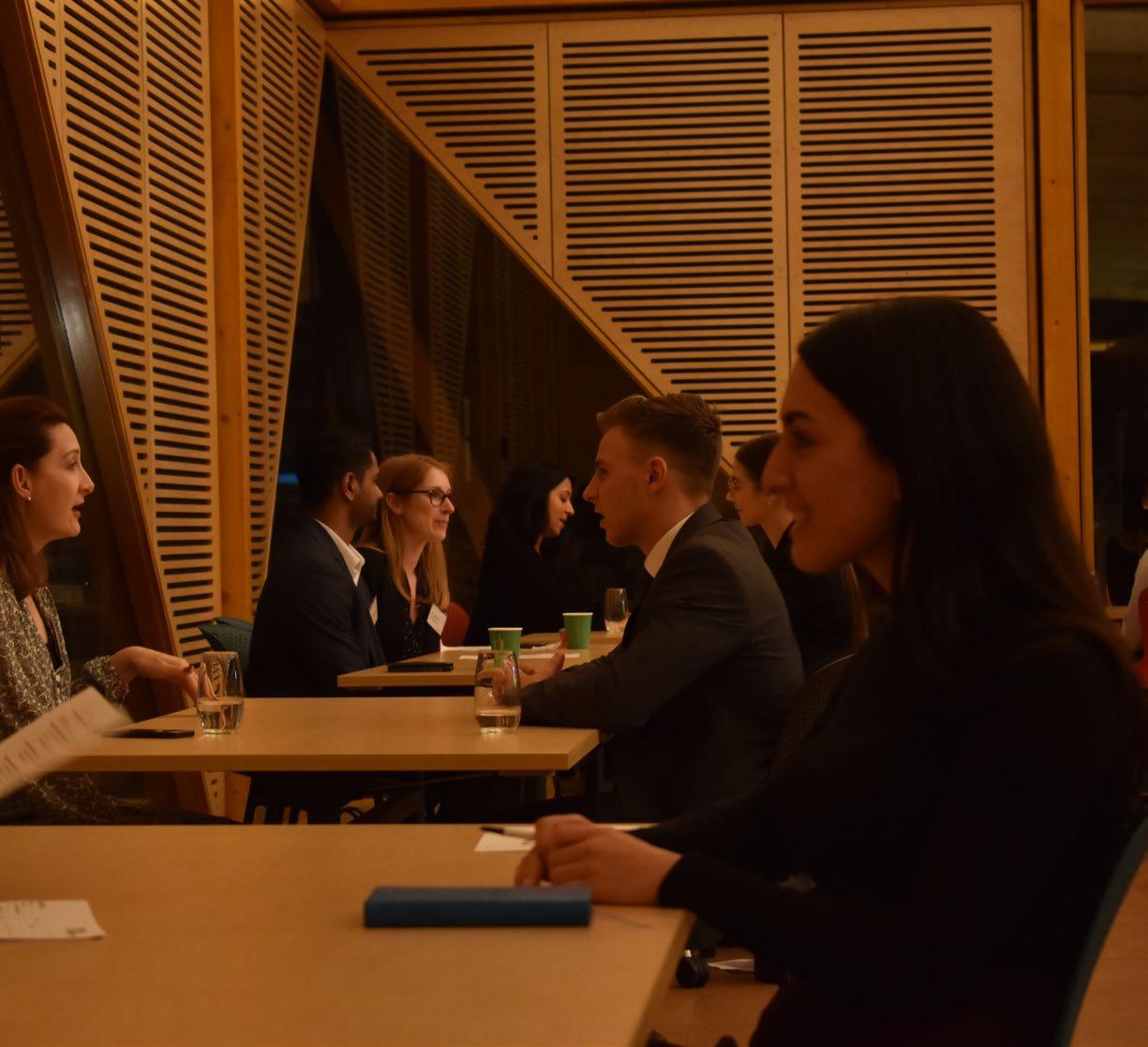
Think about your ideal job and what you're looking for in a role.
Understand the employer
03. 03.
04. 04.
Research the organisation through their website, their publications, media articles, professional associations and networking.
Demonstrate knowledge and interest in the firm. Learn about the position’s job responsibilities.
05.
Know the interviewer. Research their LinkedIn, position in the firm, practice area and how long they’ve been there.
Prepare a list of questions to ask the interviewer about their organisation’s environment or their role.
CLERKSHIP GUIDE 2023 MACQUARIE UNIVERSITY LAW SOCIETY 25 INTERVIEW SKILLS
It's crucial to understand that job interviews are not just a question-and-answer session; they present a marketing opportunity where you are the product. Your goal is to convince the interviewers of two things: that you possess the necessary skills and experience they're looking for and that you're the right candidate for the job.
*
During the Interview
Remember that first impressions count, so try to connect with your interviewer from the start. 01.
Make the interview session smooth and comfortable for both you and the interviewer. 03.
Take a deep breath, smile, and relax to feel comfortable and focus on the interview while being yourself. 05.
Greet the interviewer with a warm, confident handshake, and introduce yourself in 30-40 seconds. 02.
Be relaxed, polite, and professional, and maintain good body language by using open hand gestures, maintaining eye contact, and smiling. 04.
06.
Refrain from using slang, colloquial expressions, or improper grammar. 07.
Get a feel for the type of people who work at the company and how the company operates to determine if you would be a good fit there. 09.
Answering the Questions
01. 02. 03.
Listen carefully to the questions before answering to make sure you fully understand what is being asked.
Keep your answer brief, sell yourself quickly, and keep your information relevant to the job. Don’t repeat yourself.
Use real-life examples in your responses. Get to the point quickly and smile along the way.
After the Interview Following up:
• Take notes right after your interview is finished to record what was discussed in the interview and allow you to review it later.
• Within 24-48 hours send a thank-you letter to the interviewer(s) expressing:
◊ Your appreciation for the interview and the opportunity to learn more about the company.
◊ Reaffirm your interest and enthusiasm about the position and qualifications.
◊ Email is appropriate if there is a quick turnaround time to fill the position.
◊ A well-written thank-you is always preferred.
Be mindful of your gestures, posture, and hand movements, and avoid folding your arms, fidgeting, slumping in your chair, or looking at your hands or out the window.
Demonstrate active listening skills by answering questions fully and avoiding giving one-word answers. 08.
04. 05.
Use real-life examples in your responses and emphasise your good qualities and strengths. For example:
• "I am a team player. I performed the role of XXXX in the team during the XXXX project."
• "I was responsible for XXXX as a committee member of my University student club."
• "My experience working with a team of XXXX professionals made me a quick learner, as demonstrated by XXXX."
Promote yourself in an honest and confident manner and ask interesting, work-related questions.
◊ Review your interview performance and think of any areas for improvement.
• If you receive an offer, inform and thank everyone who helped you in the process.
• If you do not receive an offer, follow up with the interviewer(s) to discuss how you can improve your next interview performance and send an email thanking them for considering your application.
CLERKSHIP GUIDE 2023 MACQUARIE UNIVERSITY LAW SOCIETY 26 INTERVIEW SKILLS
Types of Questions
Startup Questions
Rapport building questions are asking to get a better understanding of you.
Examples:
• Tell me about yourself?
◊ Summarise your educational and professional background and mention your strengths and abilities
◊ Link these to why you’re a good fit for the role
• Why have you applied for this role?
• Describe yourself in one word.
Academic Relevance
Show how your university studies relate to your application and how it has helped develop your understanding of the law.
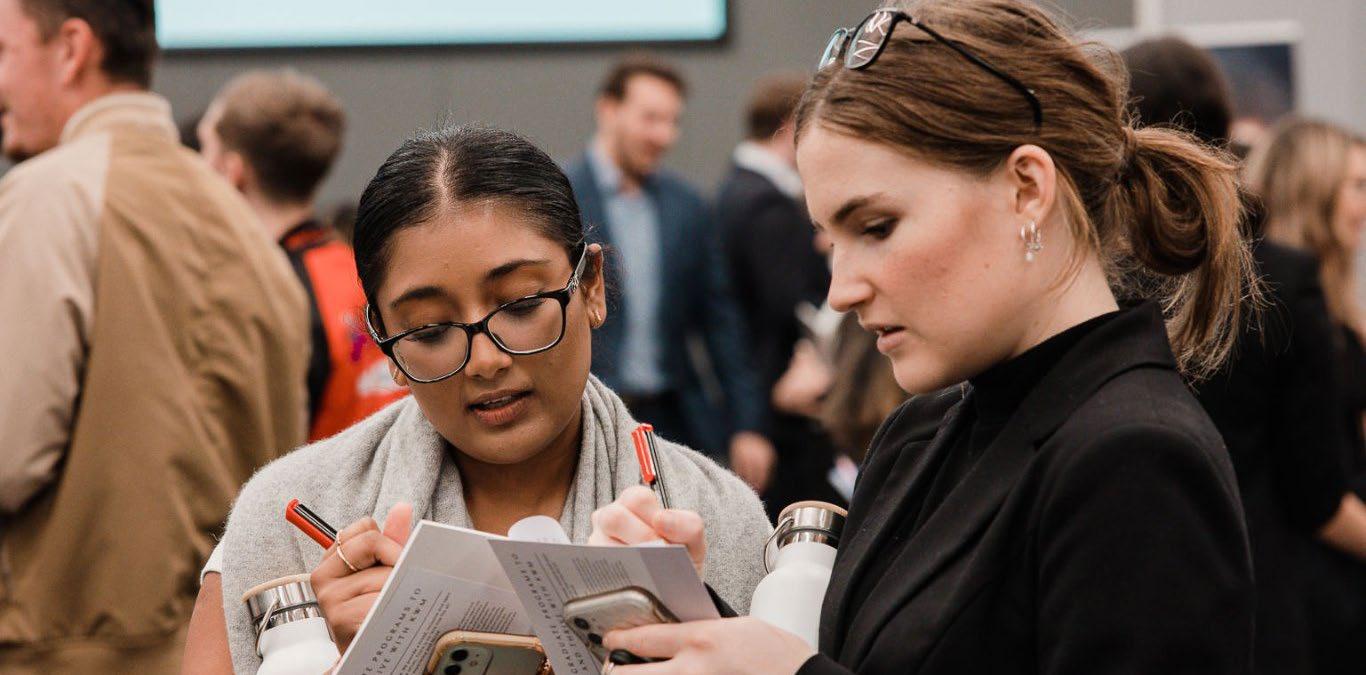
Examples:
• Tell me about the degree you have studied and why did you decide to study X?
• How will your university education benefit your future career?
• Tell us what experience and training you have that qualifies you for this position?
Resume Related Questions
These questions are designed for you to link your previous experiences with the position you are applying for.
Examples:
• Your resume indicates that you have experience in X. Could you tell us more about that area?
• You have stated in your resume that you have completed X extracurricular activity. How will that help you in this role?
Technical Familiarity
Assessment of knowledge and issue interpretation.
Examples:
• What legal issues will you need to be mindful of in this role?
• What are the technical skills you learned from your past jobs that relate to this role?
• Why do you believe you are qualified for this position?
CLERKSHIP GUIDE 2023 MACQUARIE UNIVERSITY LAW SOCIETY 27 TYPES OF QUESTIONS
*
Skills Assessment
Show that you have technical and employable skills, using specific instances where you have demonstrated them.
Examples:
• Are you good at handling several tasks and responsibilities simultaneously?
• How good are you at solving conflicts? Can you give an example?
• Tell me about a problem you faced whilst working in a team.
• How did you resolve the problem?
• Describe a situation where you successfully convinced others of your ideas.
Behavioural Interview
These questions enquire about your past behaviour to make predictions on how you will behave in the future.
“Tell me about a time when...”
Each question requires a detailed and specific answer from your past. They may focus on issues such as problem-solving, initiative and teamwork.
Your responses need to include the specific situation, what was required of you, your actions, and what you learnt. Preparation is crucial for these types of questions.
*NOTE: The PREP-STAR Model is a great way to structure your responses to these questions!
Examples:
• Tell me about your greatest achievement.
• Describe a time when you were able to successfully work with someone you found difficult.
• Describe a time there was too much to do in too little time. How did you manage to complete all the tasks?
• Give me an example of a time where you had to cope with interpersonal conflict when working in a team. How did you deal with it and what was the result?
Motivation and Career Orientation
Demonstrate that your career goals line up with those of the firm.
Examples:
• Career goals vs. the job you are applying for
• Where do you see yourself 5 years from now?
• Why did you leave your last position?
• What career goals have you set yourself?
PREP-STAR Model
POINT: answer the question
REASON: justify your answer and link it to the role
EVIDENCE: provide a relevant example using STAR
◊ SITUATION: Describe the specific experience or its context
◊ TASK: Activities you needed to accomplish
◊ ACTION: Actions you took to carry out the task. Incorporate the difficulties or problems you solved
◊ RESULT: Outcome - was the course of action effective and was the task completed?
POINT: re-emphasise your key skills and abilities gained and relate it back to the role
CLERKSHIP GUIDE 2023 MACQUARIE UNIVERSITY LAW SOCIETY 28 TYPES OF QUESTIONS
01. 02. 03. 04.
Tough Questions
What is your understanding of the position you have applied for?
• Prepare for this question by reading the job description (or the job descriptions of similar roles), talking to the contact person, HR Dept. or recruitment consultant. Ask questions at the interview.
What will you bring to this organisation?
When answering this question, it is important to provide specific examples of how you have developed and used your skills in the past and how they can be applied to the firm.
How do you keep informed about new developments in the industry/field?
As a new graduate, it is recommended to discuss professional memberships, reading relevant publications, and being up-to-date on recent industry developments or issues.
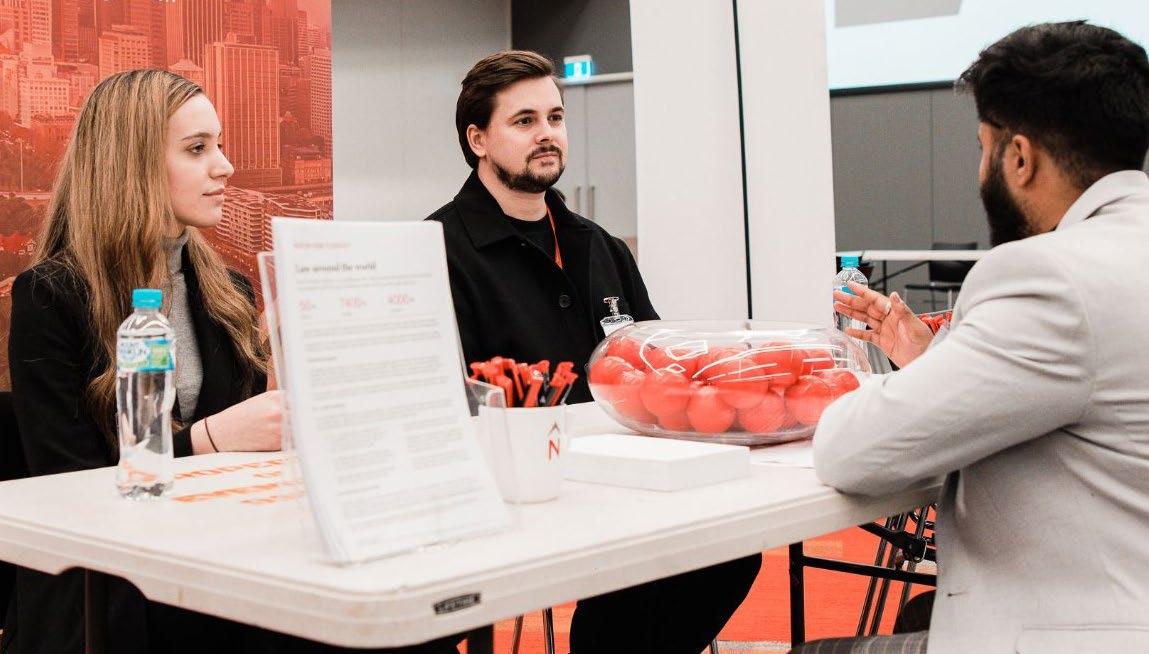
What are your weaknesses?
When discussing weaknesses, focus on areas that are unrelated to the position or a skill that you are currently working on improving. It is important to demonstrate that you have a plan in place to overcome any shortcomings and answer confidently.
Ask the interviewer the right questions
An interview is a two-way selection meeting — it is just as important that you are able to make an informed decision about the company and the position as it is for the company about you. Asking good questions helps you to do so and also shows that you care about the position and have put deep thought into it. Ask questions you genuinely want to know the answers to, not just to impress the interviewer.
Good questions may include:
• How will you assess that I’m doing a good job?
• What is the next step in the selection process from here and when should I expect to hear from you next?
• What are some of the skills necessary for someone to succeed in this job?
• Could you elaborate on the specific duties and responsibilities of this position?
• Can you describe a typical day in this role?
CLERKSHIP GUIDE 2023 MACQUARIE UNIVERSITY LAW SOCIETY 29 TYPES OF QUESTIONS
Video Interview Skills
The following information is kindly provided by the Macquarie University Career and Employment Service. For more information, they can be reached by phone (+61 (2) 9895 7372), email (careers@mq.edu.au) or by visiting the team at Level 1, 18 Wally’s Walk (MUSE Building), Macquarie University North Ryde, NSW 2109 (Monday-Friday, 9 am-5 pm).
Video interviews are increasingly being used by employers in graduate recruitment. Here’s how you can perform your best in this round of the selection process.
Format of the interview
The format may vary depending on the firm and can consist of
1) A set of pre-recorded questions and applicants are given 1-2 chances and a set time limit to record their answers.
2) A set of pre-recorded questions but unlimited opportunities for applicants to record their answers.
3) A ‘selfie interview’ requiring applicants to record a 2-4 minute introduction of themselves.
Prior to the day of the interview
• Choose a quiet location for the interview, preferably sitting at a table on a comfortable chair at the right height. You may:
• Prepare for your interview as you would for a face-toface interview; research the firm and prepare answers to common questions, behavioural questions, and questions to ask; and do a practice interview, including examples of your relevant skills and experience.
• Read through your resume.
• Plan what you are going to wear, ensuring that you dress appropriately for the position and company culture.
• Practice recording yourself answering questions using a webcam or phone camera to become comfortable speaking on camera.
• Read and reread all instructions provided prior to the interview and ensure you are clear on what is expected. If not, seek clarification via phone or email if possible.
• If offered, run the practice session prior to the actual interview to ensure that your microphone and audio are working and clear.
The night before the interview
• Get a good night's sleep to ensure you are well-rested and alert for the interview.
• Charge your computer, webcam, and any other necessary equipment in advance to ensure they are ready for use during the interview. Also, make sure to prepare any cables or cords you may need.

On the day of the interview
• Make sure your computer is fully charged or plugged in before the interview.
• Consider putting a sign on the front door asking visitors not to ring the bell or knock during the interview.
• Turn off your landline phone to avoid interruptions.
• Secure your pets in another room where they won't be heard.
• Dress appropriately in professional attire from head to toe, including shoes.
• Ensure the background behind you is clean and neutral, without any distracting or inappropriate items visible, such as an unmade bed.
• Close and lock the door of the room and inform others in the household that you cannot be disturbed during the interview.
• Close the window if outside noises such as traffic or bird calls may cause disruptions.
• Check that your face is well-lit and avoid backlighting, which can obscure your features.
CLERKSHIP GUIDE 2023 MACQUARIE UNIVERSITY LAW SOCIETY 30 VIDEO INTERVIEW SKILLS
01. 02. 03.
Immediately prior to the interview
• Use the bathroom before the interview to avoid any interruptions.
• Keep a glass of water, tissues, and cough drops nearby in case you need them.
• Have a printed copy of your resume and a pen and paper ready.

• Turn off the ringer on your mobile phone to avoid distractions.
• Warm up your voice by speaking aloud or doing some vocal exercises.
• Do some stretches or relaxation techniques to help you feel calm and centered.
• Take a few deep breaths to relax and clear your mind.
• Remember to smile and approach the interview with a positive attitude!
During the interview
• Pretend that the interviewer is sitting across the table from you and you're meeting them for the first time.
• Follow instructions carefully. You'll usually have a minute to prepare for each question and a few minutes to respond.
• Answer questions the same way you would in a faceto-face interview, ensuring your answers are relevant and concise.
• Speak genuinely, clearly, and confidently.
• Look into the camera, not at the desk or table.
• Display good body language - maintain eye contact, use open hand gestures, and smile. Avoid touching your face, hair, or fidgeting.
• Avoid making unnecessary noise, such as shuffling papers, tapping a pen, or moving around in your chair.
• You can read from notes you've prepared on your laptop, but make sure they're in bullet points so it's not obvious you're reading word for word.
Further Notes:
To combat the lack of feedback or visual cues during a video interview is to practice with a friend or family member beforehand and ask for their feedback. They can provide insight into your body language, tone, and clarity of your answers.
Writing down the questions and answers after the interview is also a helpful strategy to reflect on your performance and identify areas for improvement. It can also be useful to review your notes before any subsequent interviews to refresh your memory and build on your previous answers.
CLERKSHIP GUIDE 2023 MACQUARIE UNIVERSITY LAW SOCIETY
04. 05.
* 31 VIDEO INTERVIEW SKILLS
Cocktail Evenings and Networking
It is common for law firms to include a cocktail night as part of their interview process to evaluate candidates' soft skills, such as interpersonal skills and emotional intelligence, in a more social setting. This is especially important in commercial law practices where building relationships with colleagues and clients is crucial.

Attending a cocktail evening also gives applicants a chance to learn more about the firm and potential career opportunities, as well as receive advice on how to achieve long-term goals. It's a valuable opportunity to network and make a positive impression on recruiters.
Tips on Networking at Cocktail Nights
RSVP Etiquette:
If you have two cocktail evenings in one night, it is always courteous to email the HR representative for the second cocktail evening you will attend to let them know that you will be late.
Politely entering a conversation:
For a one-on-one conversation, introduce yourself, make eye contact, and shake hands firmly. In group conversations, it's best to chime in or ask if you may join. If drinks and canapés are being served, this can be an excellent icebreaker.
Hold your drink in your left hand.
No one likes to shake a cold, clammy hand.
Prepare some conversation starters.
It's always best to talk about something current, such as the news, sports, or a recent occurrence at the firm. The best source for this is the firm's Facebook page.
Make a unique impression (in a good way)!
• Make a unique and positive impression by leaving the person you're speaking with something memorable. Develop a personal brand, and have something that makes you stand out. Hone your 'elevator pitch' — a 30-second to 2-minute spiel about yourself.
• Use open body language and smile, be friendly, and approachable. Be humorous and engaging within the bounds of good taste and professionalism.
Working the room:
Conduct a conversation only as long as it remains fresh, and do not limit yourself to talking to friends. It's better to leave before the conversation becomes stale.
Remember why you are there:
Most of these events will have an excellent selection of food and alcohol. Be mindful of your manners and don’t over-indulge.
Politely exiting a conversation:
• For a one-on-one conversation, say, "It was lovely meeting you, Person X. I think I will grab another drink. I hope you enjoy the rest of the evening!" If the person is alone, it's polite to integrate someone else into the conversation before leaving so that you don't alienate the person.
• In group conversations, say, "Well, it was fantastic meeting you all; I must use the bathroom. I hope to see you all soon!"
• Exiting the Event: As you leave, it is always a good idea to thank the HR representative for the evening.
Practice!
Networking skills can always be improved by attending networking events run by MULS and other student groups.
CLERKSHIP GUIDE 2023 MACQUARIE UNIVERSITY LAW SOCIETY 32 COCKTAIL EVENINGS AND NETWORKING
*
Further Information
Etiquette for Handling Multiple Offers

Most firms make their offers on the same day after completing their interviews to give all applicants an equal opportunity to decide which firm they want to work for. If you are fortunate enough to receive multiple offers, the best way to make a decision is to:
• Seek advice from trusted mentors or advisors, HR representatives, or partners at the firms.
• Consider if the firm's strengths, practice areas, and values align with your interests.
• Identify any additional benefits of working at a firm, such as job security, work-life balance, and professional development opportunities after the clerkship.
• It is always important to thank the interviewing partner/solicitor via email and call the HR representative at each offering firm, regardless of whether or not you accept a position at their firm.
Tip: If you decline an offer, the HR representative may ask why you decided to decline. It's important to have a well-thought-out answer to avoid burning bridges.
Rejection Etiquette
If you are unsuccessful in securing a clerkship position at a firm, don't be disheartened by the initial disappointment. Instead, view it as an opportunity to learn and improve for future applications to the firm or elsewhere. Take some time to reflect on your application and consider what you could have done differently to achieve a better outcome.
After the rejection, it is also appropriate to send an email to the HR representative or your interviewer to express your gratitude for their time and consideration. Politely ask if they have any feedback about the specific reasons for your application's rejection that can help you in your future job search. While you may not always receive a response, it's worth reaching out, especially if you made it past the initial application stage. Remember to remain professional and gracious in your communication, as it's important not to burn bridges with potential employers.
Buddy Program
The buddy program is a valuable opportunity for prospective clerks to receive guidance and support from someone who has gone through the same process. If offered by the firm, you will be paired with a recent graduate or junior lawyer who can answer any questions you may have about the firm or the clerkship process. You may have the chance to meet with your buddy over coffee to discuss your questions before or after your interviews.
It's important to maintain professional communication with your buddy, typically via phone or email, unless your buddy suggests otherwise. If you end up with buddies from multiple firms, it's still important to reach out to all of them as they will each have unique insights into their respective firms. Remember to be respectful of your buddy's time and expertise, and express gratitude for their support throughout the application process.
MACQUARIE
LAW
UNIVERSITY
SOCIETY COCKTAIL EVENINGS AND NETWORKING
33
TESTIMONIALS:
PAST CLERKSHIP EXPERIENCES
CLIFFORD CHANCE CORRS CHAMBERS WESTGARTH
ALLEN & OVERY ASHURST DLA PIPER
CLAYTON UTZ MINTERELLISON ALLENS
THOMSON GEER BAKER MCKENZIE CLYDE & CO
JOHNSON WINTER SLATTERY GADENS
MADDOCKS HERBERT SMITH FREEHILLS
KING & WOOD MALLESONS GILBERT + TOBIN
*
SPECIAL THANKS TO THE CONTRIBUTORS:
BARRS DAMIAN BACHOR KIMBERLY LA JACK VANZINO SHARON ZHANG ADRIAN BRETT
RYAN KAITLYN WILKINS-FRASER
MAURICI SERENA JOHNSON KYLE DENNING MARTIN GRASSI EMILY PEACHEY ISABELLA BAWEJA GEORGIA WEEDEN MAX GLOVER HEATHER PYM ALI MOORE
AMIRZAIAN CASSANDRA KRYLOV
CONNOR
BRITTANY
ISABELLA
JONATHAN
*
Connor Barrs Graduate
1. What drew you to the firm?
When I was applying for paralegal / graduate positions, I applied to several firms, some larger, some smaller. When I came across HFW, I started doing some research on the firm. I found that HFW has various offices in Europe, Asia Pacific and the Americas, and once I realised that HFW was an international firm, I immediately knew I wanted to apply for a role with the firm.
After more research, I realised the sectors that HFW provides services for are quite niche. I saw this as an opportunity to potentially work on matters in different sectors that are not necessarily part of firm's services. Some sectors that interested me included:
• Energy & resources;
• Aerospace; and
• Shipping.
However, I also noticed that HFW had a strong construction practice. I had previously been working on both property and construction matters in my previous employment. Construction was a sector I was and still am passionate about. It can be complex, it allows you to work on a range of matters such as housing, defence and infrastructure and with HFW, it allows you to work on construction / large infrastructure projects in other countries.
Finally, while HFW is a reasonably large international firm, it has the feeling of a tight-knit, smaller firm. areas of law and the fact that HFW deals with large infrastructure projects.
2. How did you decide on your practice area/rotation?
As mentioned above, I had previously worked in construction and property. To some, it might make sense to choose a different practice area to gain more exposure and experience. From my perspective, construction spans various practice areas such as:
• Contracts;
• Insurance;
• Employment;
The construction group are part of the larger commercial corporate group at HFW. This means that the litigation team does not only act in construction disputes, but has also acted on various other litigation matters that relate to property, finance, insolvency and even administrative matters.

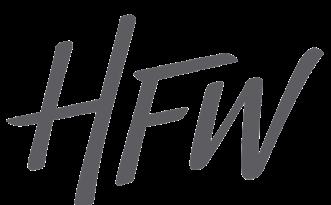
So, based on the above, while construction is broad in and of itself and would provide more than enough work, at HFW, it also provides an opportunity to employees, especially in the litigation team, to work on a range of disputes in different areas.
Finally, construction is a complex practice area, which can also teach people many things in different disciplines. An example is dealing with experts in a matter regarding defects in apartments, which provides the opportunity to learn and understand aspects of electrical, structural, and mechanical engineering. Additionally, in larger and more complex infrastructure disputes matters, there is more detailed and technical aspects to review and understand. It also provides further exposure to other disciplines such as rail or hydraulic engineering, for example.
Ultimately, I was drawn to construction due to its complex nature, its ability to touch various areas of law and the fact that HFW deals with large infrastructure projects.
3. What advice would you give to students who are applying for clerkships?
The clerkship process can be daunting and long, however, it can also be fun and provide excellent exposure on how to write a cover letter and how interviews in the corporate world are run.
Take your time
The clerkship process normally runs for approximately 1 month. While this sounds like a lot of time, it isn’t. It doesn’t matter if you are applying for 2 clerkships or 20, you must take your time when preparing your applications. You need to think about how you will differentiate yourself from others and sufficiently demonstrate that in your application. Whether that be in the cover letter, or the application itself, if you do not take the time to think that through and display it in a proper and professional manner, the firms you are applying to may not consider your application. You need to ensure you take the time to research the firm that you are applying for. Understand what practice areas the firm deals in, how the firm began and how the firm differentiates itself from the market.
Tailor each application
While tailoring your application seems self-explanatory, students tend to re-use information from other applications. This can be somewhat useful for answering certain questions, however, on the whole, students really should be starting each application from scratch. This avoids any chance of referring to the wrong person, wrong firm, or making mistakes. It also ensures that students read every part of their application to ensure there are no spelling errors or formatting issues. Firms may not review your application on the basis of spelling errors.
CLERKSHIP GUIDE 2023 MACQUARIE UNIVERSITY LAW SOCIETY 36 HFW
HFW Student Testimonial
*
• Litigation; • Corporations; and • Many more.
YOUR
GLOBAL SUCCESS
Entrepreneurial | Creative | Collaborative
Who are we?
HFW is an international law firm with a strong global presence and a reputation for providing an excellent service to an impressive list of domestic and international clients. With over 600 lawyers working across the Americas, Europe, the Middle East, Asia and Australia, we take a progressive approach to our role in commercial business – thinking creatively and pragmatically to support our clients. With our head office in London, HFW provides a global and seamless service 24 hours a day.
We are leaders in our specialist sectors, being Shipping, Construction, Commodities, Corporate & Commercial, Insurance & Reinsurance and Aerospace.

Our clerkship program
Our clerkship program will introduce students to all of our sector groups, providing an opportunity to understand what different areas do, and meet our professionals across all areas. During the clerkship, you will be assigned a mentor and buddy in one of our major sector teams, predominantly Insurance/ Reinsurance and Construction, where you will experience working on real matters, both domestic and international. You will also have a key contact in other groups to facilitate exposure to the work of that group.
Our graduate program
Graduates will participate in a 12-month rotational program. This will include three placements, two of which will be in your local office, with the option of a third in either another Australian office, or one in our APAC network, dependent on availability. hfw.com
What does HFW look for?
HFW looks for people who have a global mindset and an interest in international matters, with a particular affinity for our specific sectors and focus, and interested in disputes matters. We look for people who aren’t afraid of a challenge, and are eager to learn the skills that will be required to shine in their careers. Our ideal applicant is down-to-earth, well rounded, with good attention to detail and a teamoriented mindset. We also look for people who are open to and will chase opportunities, and have the intellectual rigour to work on complex matters.
Our culture
HFW is a collaborative, team oriented environment. We are inclusive and have a diverse variety of team members enabling different ideas and approaches to thrive. Our entrepreneurial culture means that you can see ideas implemented quickly and we are nimble in response to client and market requirements. This is a workplace where we expect respect and open communication and get it every day.
How to apply
Applications for clerkships can be submitted via www.hfw.com/careersAPAC
Applications should include a current CV, a copy of your academic transcript, and a cover letter addressing why you would like to work with HFW, what you can bring to the team, and something that will help us get to know you, such as your extracurricular activities and interests.
Clifford Chance Student Testimonial
Damian Bachor Trainee Lawyer

1. What drew you to the firm?
I moved to Australia from London to study my LLM at the University of Sydney, specialising in international business law. I was attracted to Clifford Chance because of its reputation as one of the world's leading international firms and part of the Magic Circle in London. I knew that joining Clifford Chance would allow me to work with market-leading clients on complex cross-border deals that make global headlines. I always wanted to develop my legal career internationally, and what was particularly attractive about Clifford Chance's graduate program was that graduates are offered a 6-month international secondment to one of the 36 offices in its global network. Additionally, I was deeply impressed by the firm's commitment to advancing inclusion and diversity.
There are four main things that set Clifford Chance apart from other firms. Firstly, Clifford Chance is a global firm with outstanding reputation and market-leading work, which allows its graduates to get exposure to multi-jurisdictional matters involving high-profile clients early in their careers — and that was clear from the beginning.

Secondly, the firm’s culture is exceptional. I found everyone friendly and approachable, and I was particularly impressed by the absence of a hierarchical structure and the open-door policy. This environment made me feel comfortable reaching out to anyone in the firm, regardless of their role, to discuss both work-related and personal matters.
Thirdly, Clifford Chance offers unparalleled training, support, development and international secondment opportunities for graduates. For instance, before commencing their first seat in Sydney, graduates undergo a two-week induction training in Hong Kong. Additionally, they have the chance to undertake an international secondment during one of their rotations, choosing from the firm's 31 offices worldwide.
Finally, it was apparent that Clifford Chance’s core value is inclusion and I have been impressed by the firm’s commitment to promoting diversity and equality.
2. How did you decide on your practice area/rotation?
My first seat was in Litigation & Dispute Resolution (L&DR). This role involved assisting with all aspects of trial preparation, which eventually led to my attendance at a six-week trial in the Supreme Court of New South Wales. Although a steep learning curve, it was a fantastic experience to get first-hand exposure to complex litigation and be involved not just in document review and document management, but also attending witness interviews, drafting affidavits, preparing expert briefing materials and hearing bundles. In L&DR, I also had the opportunity to work on arbitration matters and attend virtual hearings.
My second seat was in Antitrust, where I was mainly involved in a multijurisdictional matter providing antitrust advice to two global airlines in relation to a joint business arrangement. Given the international scope of the deal, I worked closely with various offices across the global region, including Brussels and Madrid, which allowed me to collaborate with colleagues in other offices early in my career.
Based on my engagement with colleagues in Belgium during the airline deal, I have been given the opportunity to complete my third seat as part of an international secondment in the antitrust team based in Brussels. Here, I am actively involved in handling EU merger control matters. This experience serves as a prime example of the exceptional international opportunities available to graduate lawyers within Clifford Chance's extensive global network.
3. What advice would you give to students who are applying for clerkships?
• Network — attend events to meet legal professionals. Networking will not only help you build connections, but it will also increase your confidence, make you a better communicator and keep you in touch with what is happening in other firms and legal sectors.
• Attend law fairs — they add a human touch to what can be a gruelling application process for graduate roles and offer a fantastic opportunity to meet legal professional to discuss your career.
• Study subjects you are passionate about — you will enjoy university more and undoubtedly it will help you become more successful in your career.
CLERKSHIP GUIDE 2023 MACQUARIE UNIVERSITY LAW SOCIETY 38 CLIFFORD CHANCE
*
GET TO KNOW US
What areas of law do we practice?
Across our two Australian offices, Perth and Sydney, we advise clients on their most complex matters in areas including Corporate, Litigation & Dispute Resolution, Antitrust & Competition and Global Financial Markets.
Why are we different?
Our teams work across borders, languages and jurisdictions and share insights and expertise to achieve our clients’ commercial goals.
Secondly, we’re pioneers and work on many ‘first-of-akind’ deals.
Finally, it’s the nature of our people - highly professional and self-assured, with an entrepreneurial streak. We embrace our culture of learning and collaboration.
CLERKSHIP PROGRAM
Who is eligible for clerkships?
Students must be at least in their penultimate year and are available to participate in the 2025 Graduate Program.
When are our clerkship programs held?
Sydney: November 2023 – January 2024
Perth: November – December 2023
How many clerks do we take?
Sydney: 8 – 12
Perth: 4 – 6
To submit your application, scan the QR code below.
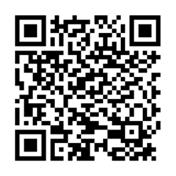
When should students apply?
You can apply between these dates.
Sydney: 5 June – 2 July 2023
Perth: 26 June – 30 July 2023

What kind of work can a clerk expect to do?
Our clerkship program is designed to provide you with a real insight into a legal career at Clifford Chance in Australia. Throughout the program, you will work alongside all levels of lawyers, including partners, while you assist with real-time matters.
You will have two rotations which allow you to experience two different practice areas.
Throughout the clerkship you will hear from various practice areas across the region which helps you develop a comprehensive understanding of life at a leading international law firm.
GRADUATE PROGRAM
Do we make graduate offers to the open market, or just through clerkships?
Graduate offers are primarily made from our clerkship program. However, if we decide to open applications to the wider market we will also consider applications from students who have not participated in our clerkship program.
How many graduate jobs do we offer?
Sydney: 6 – 10
Perth: 2 – 4
Enquiries
Grads.Australia@CliffordChance.com
Corrs Chambers Westgarth
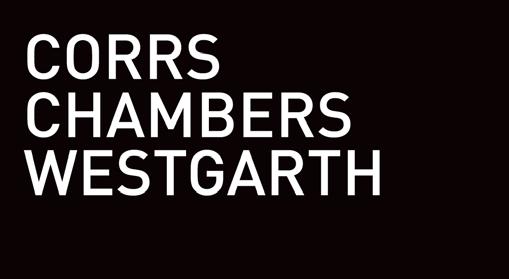
Student Testimonial
Kaitlyn Wilkins-Fraser Lawyer
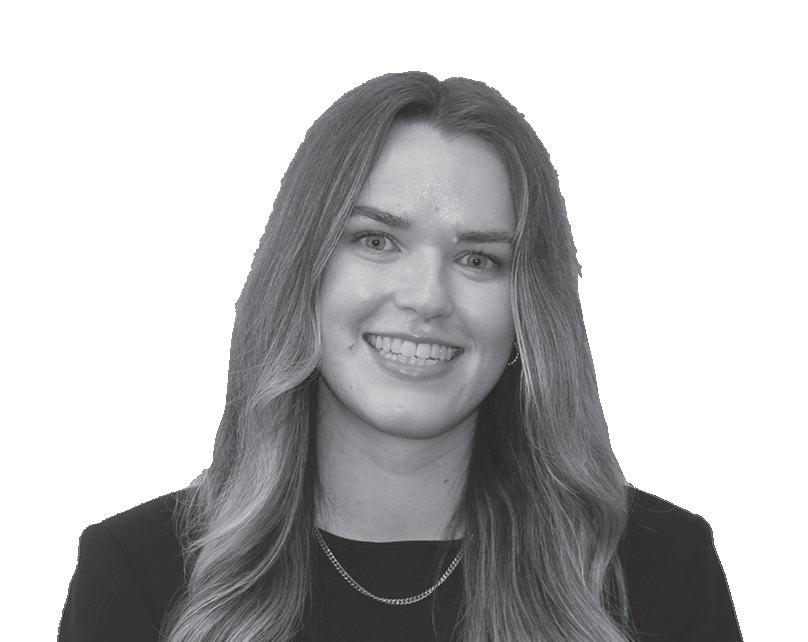
1. What drew you to the firm?
Three key things drew me to Corrs:
• I knew the firm was growing and had an ambitious and innovative approach to growth and the legal industry. I could also see how this offered exciting opportunities for junior lawyers;
• I was impressed by the people I met throughout the recruitment process. This included everyone from the People and Performance team, to lawyers, graduates and partners. Everyone I spoke to seemed to genuinely enjoy working at Corrs, happily answered all my questions and was interested in who I was as a person — not just in my university grades; and
• As I had completed my honours thesis on the Modern Slavery Act and corporate responsibility for human rights, I was interested in participating in the firm’s responsible business and ESG practice group.
2. How did you decide on your practice area/rotation?
In the Corrs clerkship program, you rotate through three different practice areas. This includes rotating through at least one transactional practice group and one litigious practice group. I knew I was interested in litigation so this was one of my top preferences. I loved my rotation in this area but I also kept an open mind and was eager to learn about different practice areas.
My other two rotations were in areas that I knew almost nothing about: projects (arbitration) and the financial sponsors group. I thoroughly enjoyed both of these rotations and I learned a lot which helped me narrow down my specialty.
3. What advice would you give to students who are applying for clerkships?
Most importantly, focus your efforts and don’t spread yourself too thin. Apply to firms which align with your passions and firms you genuinely want to work at. This allows you to focus on preparing strong and tailored applications where you will be able to convey your genuine interest in the firm. In my experience, an applicant who is genuinely interested in the firm (and has not replicated an app-lication that could be for any big law firm) stands out from the crowd!
Secondly, be true to yourself. If you have unique experiences or interests, make sure you mention this in your applications and during your interviews. This could be work experience, volunteering, a side hustle or a hobby. Everyone has something to offer that is unique to themselves and this makes you memorable.
Finally, during the information nights, cocktail evenings and interviews, pay attention to the culture of the firm. The people you work with will make a huge difference and you want to apply to (and accept offers from) firms that you feel you will enjoy working at. Be sure to talk to as many people from the firm as possible and don’t be afraid to reach out to people on LinkedIn as well as asking the people you meet for contacts in practice areas you may be interested in, to get a clear picture of the team, work and firm.
CLERKSHIP GUIDE 2023 MACQUARIE UNIVERSITY LAW SOCIETY 40 CORRS CHAMBERS WESTGARTH
*
Corrs Chambers Westgarth is Australia’s leading independent law firm. We’re known for delivering legal excellence, exceptional client service and outstanding results.
Your time as a clerk at Corrs
The majority of our graduates join us after experiencing a seasonal clerkship program.
Our clerkships give you the opportunity to connect with partners and lawyers across the firm, learn what a ‘day-in-thelife’ at Corrs is like and experience the type of work we do and the clients we partner with.

During your time as a clerk, you will be allocated a supervising partner, mentor and buddy, who will support you through your clerkship experience as you work alongside some of Australia’s leading lawyers on high-profile work for major Australian and international clients.
You’ll be exposed to a broad range of interesting matters and have the chance to complete tasks such as conducting research, reviewing and presenting documents, attending client meetings, court hearings, mediations and settlements, as well as shadowing partners and lawyers in client meetings and business development activities.
Our Lawyer Development Program
The Lawyer Development Program is designed to support you in the formative stage of your career. It aims to build the capabilities and relationships that will drive career progression and underpin future successes, as rapidly as possible. Unique features of the program include:
• Mentor partner – You will be allocated a mentor partner (in most cases your supervising partner in your first rotation) who remains in this role throughout the program and potentially beyond. This will build a personal and enduring relationship that transcends everyday transactional work. You will also be supported in each rotation by a supervising partner and SA/SC who will source meaningful and challenging work.
• 12 x 6 x 6 rotation structure – The first practice group rotation is 12 months to ensure you have time to learn on the job and build strong capabilities and relationships in your first year. In the second year, when you have an increased level of experience and confidence, you will complete two six-month rotations in order to gain exposure and build relationships across different groups.
• Formal learning – The program incorporates comprehensive formal learning opportunities including our national Graduate Academy, local Graduate Orientation, practical legal training with the College of Law, practice group induction sessions and the national Legal Excellence program.
Diversity and inclusion
We strongly believe that diversity in all its forms should be embraced and celebrated. This benefits our people, our clients, our firm and the industry at large.
Our commitment to diversity and inclusion includes gender equality, cultural diversity, LGBTIQ+ inclusion, First Nations inclusion, carers support, disability inclusion and accessibility, and flexible working.
Key dates for Sydney clerkships
Monday 5 June – Clerkship applications open
Sunday 9 July – Clerkship applications close
Wednesday 13 September – Offers made
corrs.com.au/careers @Corrslawyers
Corrs Chambers Westgarth @CorrsLaw @corrslawyers
Allen & Overy Student
 Brittany Ryan Lawyer
Brittany Ryan Lawyer
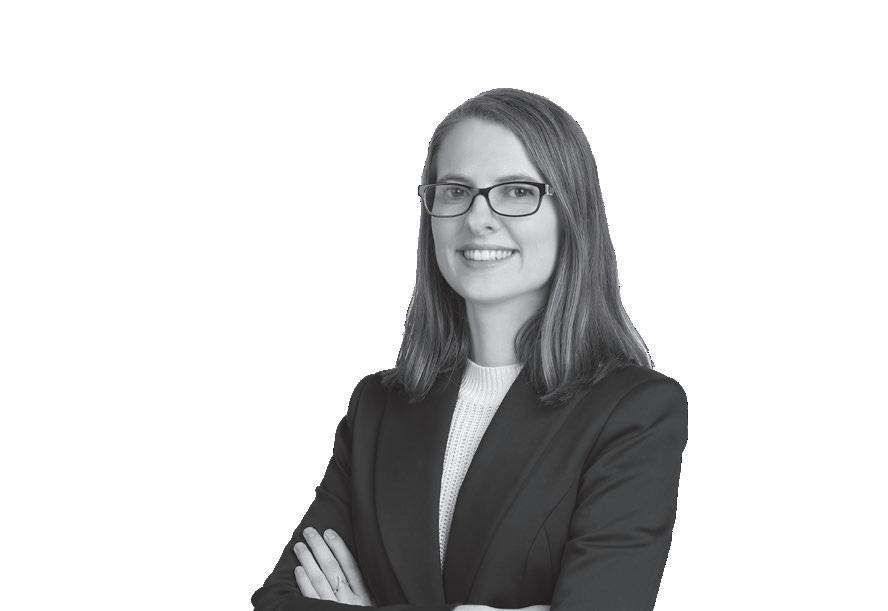
1. What drew you to the firm?
There were several stand out features that attracted me to Allen & Overy. First, there is a lot of opportunity to do secondments in international offices as well as work on international matters. The ability to work with people in different regions and get a wider understanding of the legal systems and issues arising in other countries drew me to apply for a position with Allen & Overy.
Second, as both an international firm and one with a small office in Australia, you get to be involved in substantial and interesting work almost immediately. I wanted to gain as much experience as possible and Allen & Overy has supported me in this challenging endeavour.
Third, there is significant training offered at Allen & Overy. I wanted to be at a firm that supported me to continuously learn, both in my practice area and more broadly. Allen & Overy offers substantive legal training. For example there is specialised hands on training related to your practice group delivered in the London office. At this training, senior members of the firm, as well as clients, deliver training about specialised work they do and what clients expect. As the training is delivered in London, you get to meet lawyers from across the globe who are at a similar career stage as you. Allen & Overy also offers numerous “soft skill” training across a range of topics, including leadership and persuasive skills.
Fourth, I wanted to go to a firm where I could be involved in pro bono work. I’ve seen a range of both legal (e.g. advisory and law reform work across a variety of practice areas) and non-legal (e.g. mentoring and reading programs) opportunities that people from all levels of seniority can get involved in, including paralegals and summer clerks.
Finally, throughout the interview process, I found the people I interacted with the firm were genuinely nice people. You spend a lot of time at work, and I wanted to work somewhere I felt I could fit in and be supported. Getting on with my colleagues has made a big difference to my working life.
2. How did you decide on your practice area/rotation?
Deciding on the practice areas you want to rotate through can be difficult. Talking to people in different practice areas about what kind of work they do and the things they like and don’t like about their role can be a good starting point. I also thought about my predominant skills and what I enjoyed in my university classes. I matched these with practice areas that used these skills and allowed me to engage with concepts I found interesting.
Your clerkship and rotations are a great opportunity to try different practice areas, so if something sounds exciting to you, definitely give it a go!
3. What advice would you give to students who are applying for clerkships?
Before starting to apply for clerkships, I would recommend taking some time to research the different firms. Work out what is important to you and see what firms meet those requirements. This may be things like practice groups, international opportunities, pro bono activities, or particular work or clients the firm is involved in. These are also things you can highlight in your cover letter to let the firm know why you are specifically interested in working with them as opposed to another firm. It is a good idea to tailor your cover letter to the different firms you are applying to.
Perhaps most importantly, take it easy on yourself. The clerkship process can be a stressful time. If you can, start early so you don’t feel rushed.
CLERKSHIP GUIDE 2023 MACQUARIE UNIVERSITY LAW SOCIETY 42 ALLEN & OVERY
Testimonial
*

Belong. Excel. A career in Law – Australia Visit allenovery.com/careers Accept Shape what’s next.
Ashurst Student Testimonial
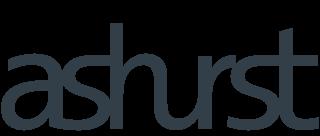 Kimberly La Graduate Lawyer
Kimberly La Graduate Lawyer
1. What drew you to the firm?
I first came across Ashurst in my third year of university when I participated in the AFR and Grad Connection's Top 100 Future Leader Awards. Ashurst was the sponsor for the law award category and this gave me the impression that Ashurst was a firm investing in all-rounders and leaders beyond the scope of mere academic achievement. In applying for clerkships I actually applied at the last minute because I was unsure if I wanted to pursue a commercial law career.
Throughout university, my only experience with legal jobs was volunteering via community legal centres as social justice is what drew me towards studying law in the first place. I always envisioned that I would pursue a career in the government, policy or non-profit space. However, as I researched Ashurst more, I realised there were so many different practice areas I could delve into. Many of Ashurst's clients were governmental departments such as Transport NSW. Therefore, I thought to myself, "why not give it a go?", so I applied and ended up receiving a clerkship offer!
When I started my clerkship, I was immediately drawn to the culture and everyone was accommodating and friendly. On top of that, I was able to pursue my interests outside of commercial law through pro bono opportunities, even as a clerk and a graduate.
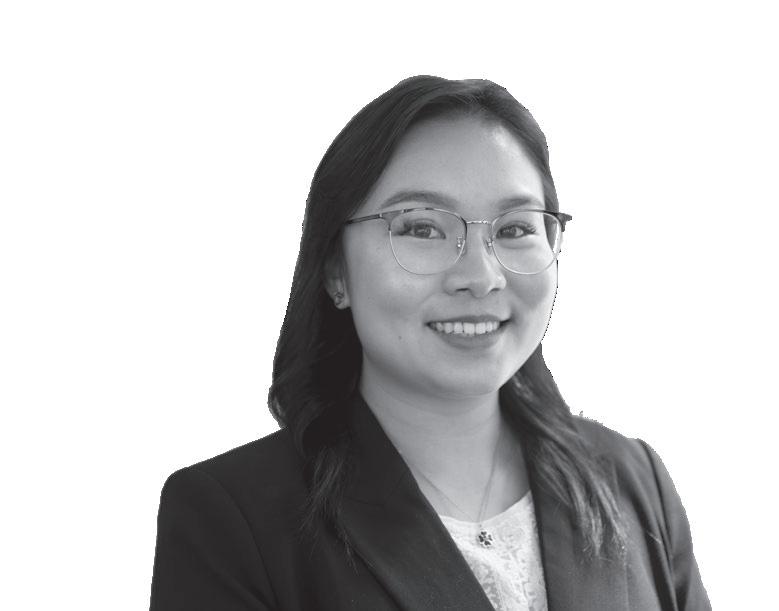
2. How did you decide on your practice area/rotation?
For our graduate program, we undertake 3 rotations that are each 4 months long. During my clerkship, I enjoyed the Competitions team and my interest in consumer law was sparked from studying the Competition Law elective unit at Macquarie University. It was one of my favourite units because I found it so applicable to everyday life as we are all consumers and are subject to marketing and purchasing decisions on a daily basis. Therefore, I'm definitely interested in experiencing that rotation again during my graduate program.
Currently, I'm rotating in the Intellectual Property/Media team which was also one of my top preferences for rotations. The concept of intellectual property has always appealed to me since studying Aboriginal Studies in high school as an HSC unit, and from the Media
Law university elective. There is much crossover with consumer law in this team and I'm thoroughly enjoying it because this team practices a mix of litigation, advisory and transactional work. Similar to the competitions team, the clients we work with range greatly and there is always a new field or product you familiarise yourself with which I find helps the content stay creative and gripping.
As for my third rotation, I'm unsure which team I'd like, because there are so many to choose from (18 to be precise)! However, I know I like a team that does a mix of work so that my type of work can vary every day.
3. What advice would you give to students who are applying for clerkships?
I think it's important to do in-depth research of the different firms you wish to apply to, so that you understand what work they do and what clients they have helped. If you are interested in Ashurst, my tip would be to have a look at Ashurst's Instagram and LinkedIn to get an insight into the culture and type of work we do at the firm. These are things you can write about in your application when explaining why Ashurst appeals to you and can come up in conversation during the interview process.
Also, as Ashurst seeks all-rounders, I'd suggest expanding on areas where you've shown leadership whether that's through a university society, through sports or previous work experience, whether it's legal or not, because many skills can be transferable and it helps your application stand out. For example, I had on my CV that one of my hobbies was music and collecting records. Subsequently, this topic actually came up in my first and second round interviews and it acted as a great icebreaker. In summary, be authentic, be yourself and get to know the firm you're applying for.
CLERKSHIP GUIDE 2023 MACQUARIE UNIVERSITY LAW SOCIETY 44 ASHURST
*
Create your story at Ashurst
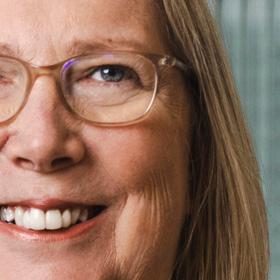

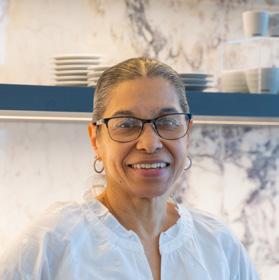
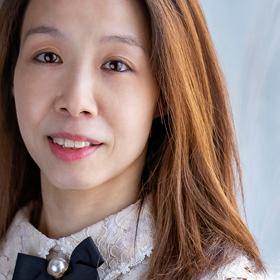
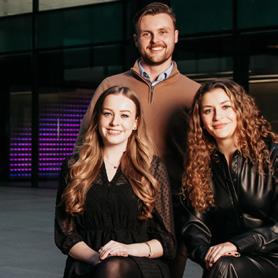
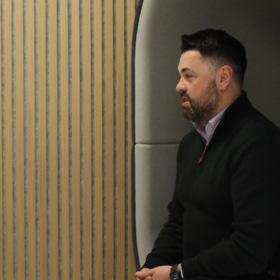
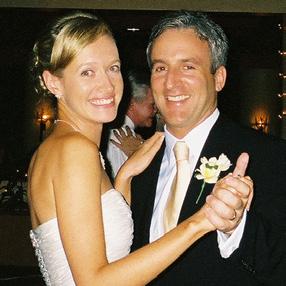

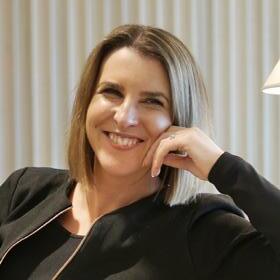


As a global law firm with a rich history spanning 200 years, we’ve established ourselves as a leading adviser to corporates, financial institutions and governments on all areas of the law, including finance, M&A, disputes and competition. We’re renowned for helping clients navigate a complex and constantly evolving global landscape. With 30 offices across the world’s leading financial and resource centres, we offer the reach and insight of a global network combined with deep local market knowledge.
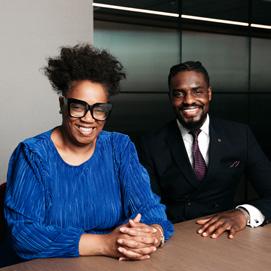
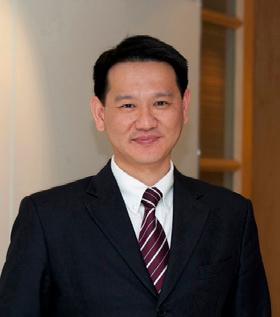

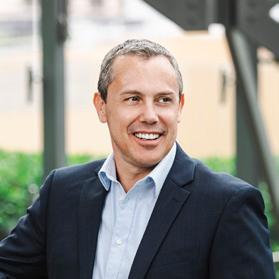
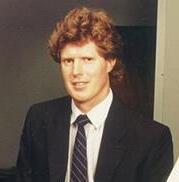
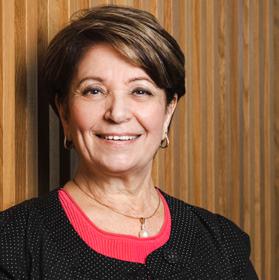

Our people are our greatest asset. We invite you to explore the stories of our people, history and culture at all levels of the firm, both past and present and hope that in doing so, you will reflect on creating your own story of Ashurst. Scan the QR code to find out more.
18 time zones
21 countries
32 offices
4,131 people
1,737 lawyers
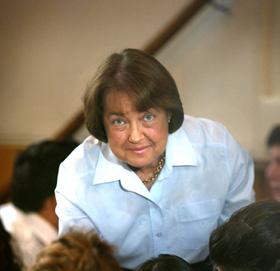
482 partners



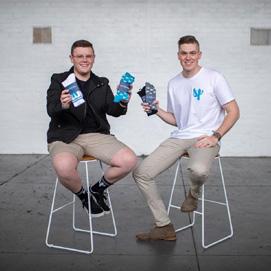
CLERKSHIP GUIDE 2023 MACQUARIE UNIVERSITY LAW SOCIETY SECTION NAME 45 Connect with us on
Begin your story now at ashurst.com/students
DLA Piper Student Testimonial
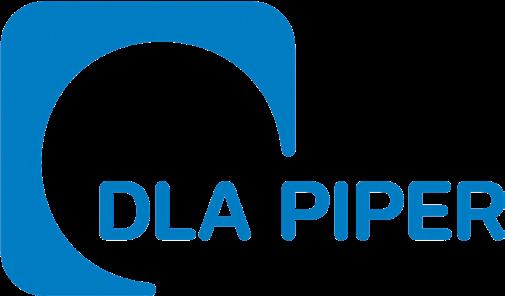
Sharon Zhang Graduate at DLA Piper
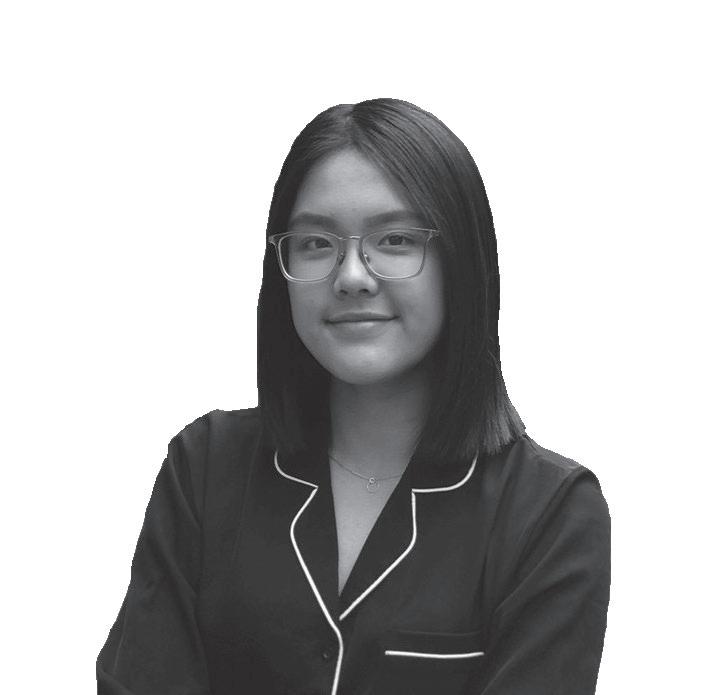
1. What drew you to the firm?
Many people will say that the number one thing that drew them to DLA Piper is its strong reputation as a leading global firm. As someone who loves travelling and is interested in working overseas someday, this was true for me, but I think what ultimately sealed the deal was actually talking to people at the firm and hearing about the interesting work they would get up to, as well as genuine bonds they formed with their clients and fellow colleagues.
While at times it was stressful and exhausting (people I talked to made it a point to not sugar-coat this), it genuinely seemed like a fun place to work at and one where I would constantly be learning and challenged.
2. How did you decide on your practice area/rotation?
As a clerk, I rotated in the Corporate practice area and Finance, Projects & Restructuring (FP&R). Having a background in Economics and prior experience in the financial sector, I wanted to use this knowledge and apply it in a legal context, which I felt, best fit the work of the Corporate team and FP&R. I had also just completed electives at uni in Banking Law and Takeovers & Capital Markets Law, which further piqued my interest in how what I learnt in those two courses, could be applied to real life transactions.
For my first rotation as a graduate, I wanted to choose a practice area that I did not rotate in as a clerk, so I could get the most out of the program and gain a variety of experiences. I also wanted to rotate in a team that could give me exposure to both litigious and non-litigious/transactional work, as up until this point I only rotated in teams that were almost exclusively transactional. This led me to the Intellectual Property & Technology (IPT) practice area, which I also had a keen interest in because of recent developments in
privacy, data protection and artificial intelligence. What drew me to IPT was also how broad the team’s work was, spanning across a wide range of sectors and areas of law, which is perfect for a graduate seeking diverse experience.
3. What advice would you give to students who are applying for clerkships?
My biggest piece of advice would be to not be discouraged from applying based on any preconceptions you may have about clerkship programs.
While it is undeniable that Clerkship applications are a competitive process, you miss all the shots you don’t take! I think the biggest myth that should be debunked (and one that almost stopped me from applying) is that you need formal legal experience, for example, as a paralegal, to be successful in securing a clerkship position. I had zero legal experience prior to applying for DLA Piper’s clerkship program but leveraged on the experiences I did have, which was in the financial sector, and the skills I developed from those roles. At the end of the day, skills that are valuable to law firms such as problem solving and stakeholder management are prevalent in almost every industry, not just legal services.
CLERKSHIP GUIDE 2023 MACQUARIE UNIVERSITY LAW SOCIETY 46 DLA PIPER
*
DLA Piper
OUR GROWTH, YOUR FUTURE.
Clerkship Programme
Our seasonal clerkship is designed to give you insight into what sets us apart. Our programme starts with an induction which provides a comprehensive introduction to the legal sector and the firms strategy, practice groups, sectors and clients. It also builds your skills and networks. Following induction, you’ll have the opportunity to experience working in a practice group and benefit from being given
2023/24 PROGRAMME
Clerkship intakes:
Graduate Programme

During your graduate programme, you’ll experience three six month rotations in our different practice groups and Pro Bono and Law& teams, giving you breadth in your knowledge of the law as well as the practical skills that will stay with you for your entire career. By the end of your graduate programme, you will emerge with a clearer understanding of where your talent and interests lie. The experience you’ll have gained – and the networks you’ll have nurtured –will provide a strong foundation for your future career at DLA Piper.
real responsibilities. Whether you're attending a court hearing, contributing to a client meeting or assisting a large corporate transaction, you’ll have plenty of opportunities to reach your potential. At the completion of your clerkship you will also be eligible for consideration for a graduate role on our graduate programme.
Priority offers will be made to candidates who participate in our Clerkship Programme.

SECTION NAME 47
2024 PROGRAMME
Brisbane, Melbourne Summer Nov/Dec 2023, Winter June/July 2024 4 weeks Perth Summer 1 Nov/Dec 2023, Summer 2 Jan/Feb 2024 4 weeks Sydney Summer Nov/Dec 2023 and Jan/Feb 2024 8 weeks
Find out more about our programmes and application dates:
Copyright © 2023 DLA Piper. All rights reserved.| FEB23 | A17100-5
DLA Piper is a global law firm operating through various separate and distinct legal entities. Further details of these entities can be found at dlapiper.com. This publication is intended as a general overview and discussion of the subjects dealt with, and does not create a lawyer-client relationship. It is not intended to be, and should not be used as, a substitute for taking legal advice in any specific situation. DLA Piper will accept no responsibility for any actions taken or not taken on the basis of this publication. This may qualify as “Lawyer Advertising” requiring notice in some jurisdictions. Prior results do not guarantee a similar outcome.
Clayton Utz Student Testimonial
Martin Grassi Lawyer
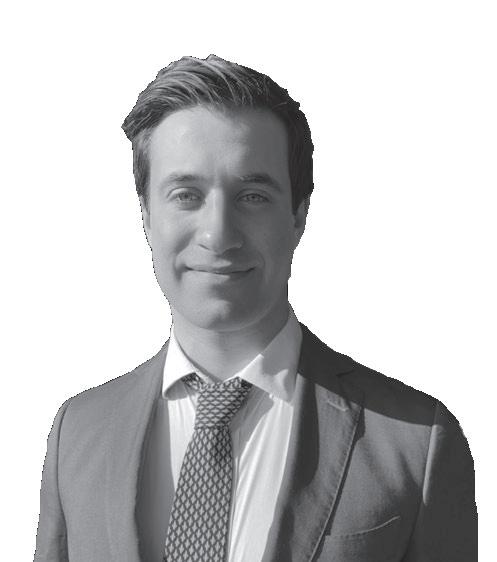
1. What drew you to the firm?
What immediately stood out to me about Clayton Utz was its Pro Bono practice. Clayton Utz was the first large Australian law firm to establish a formal Pro Bono practice (back in 1997) and appoint a dedicated Pro Bono partner (there are now two) — so its commitment goes way back.

As someone who is interested in advocating for access to justice for low-income and vulnerable people, the opportunity to get involved in pro bono matters as part of my everyday work greatly appealed to me. Pro bono at Clayton Utz is something every lawyer is expected to do — so it's taken very seriously. As well as being able to help people in a meaningful way, doing pro bono work also gives you exposure to a wide variety of legal areas and is a great way to improve your advocacy, interpersonal and drafting skills.
Another thing that really drew me to Clayton Utz was its Public Sector practice. Having studied a double degree in Law and Arts (majoring in politics), I was always interested in government-related work. The firm acts for governments at all levels — Federal, State and local — and the work is similarly varied, spanning litigation, advisory and transactional matters.
2. How did you decide on your practice area/rotation?
Like many law students contemplating a career in private practice, I was curious about the many different areas of law in which it's possible to specialise. It took quite a lot of thinking and research to decide which area would best suit my interests.
Overall, my goal was to rotate through both a litigation and transactional practice group to get a sense of the different types of tasks associated with each distinct stream of legal work. During my clerkship, I had the opportunity to rotate through the Public Sector team, with a focus on litigation, and the Information Technology transactions team, providing me with exposure to a great mix of government and private sector work.
While it's great to get some experience in an area of law in which you're interested, some practice areas are especially popular and sought after for rotations, so you might not necessarily get your first preference. That's why it's important to keep an open mind as you may find that you end up rotating in an area you didn't think you'd be interested in, but that you actually enjoy. You may also not be sure what area particularly interests you yet, which is completely understandable. That's why the clerkship experience is so valuable,
as it exposes you to different types of work and practice areas. Regardless of which practice areas you end up rotating in, you will pick up very useful transferable skills such as legal research and drafting that will provide you with a solid foundation for your future career.
3. What advice would you give to students who are applying for clerkships?
Firstly, take the time to research the firms you are interested in and tailor your covering letter and CV to reflect the firm's practice focus and unique attributes.
Your cover letter is particularly important as it's your opportunity to show why you think you would be a good fit for the firm you're applying to. For example, if you particularly enjoyed a subject at uni, research some of the firms that are known for their work in that area and express your passion for that subject area in your cover letter.
Many firms also pride themselves on their workplace culture, learning and development programs, and social and charitable initiatives so be sure to research these also and identify which aspects of these resonate with you. For example, a firm may be a significant contributor to the Arts, so you could elaborate on how that appeals to you as you have your own artistic/creative interests or hobbies.
Secondly, relax and go easy on yourself. However, don't conflate being relaxed with being complacent. It's good to be organised and get all your applications ahead of time, particularly when juggling clerkship application deadlines with university assignments and other commitments.
The clerkship process is very competitive and it's easy to feel deflated if you don't get any offers. If you miss out on a clerkship in your penultimate year, take into account that firms are increasingly open and flexible to students applying for clerkships in their final year of study. I would also add that while law firms offer excellent clerkship programs, there are also similar programs in-house and in government, which are also worth exploring.
CLERKSHIP GUIDE 2023 MACQUARIE UNIVERSITY LAW SOCIETY 48 CLAYTON UTZ
*
STAY TRUE.
Staying true to your direction
defines
Clayton Utz. While academic achievement is important, graduates who thrive with us have a strong sense of self and a natural passion for connecting with others. That’s what staying true is all about.
claytonutz.com/graduates

We’ve built a culture that sets us apart from other law firms – but we know a good lawyer needs evidence. So, meet our people at on-campus careers events, or visit our graduate careers page, to gain insight and experience our supportive and innovative culture first-hand.

CLERKSHIP GUIDE 2023 MACQUARIE
UNIVERSITY LAW SOCIETY
is what
us at
MinterEllison
Serena Johnson Lawyer
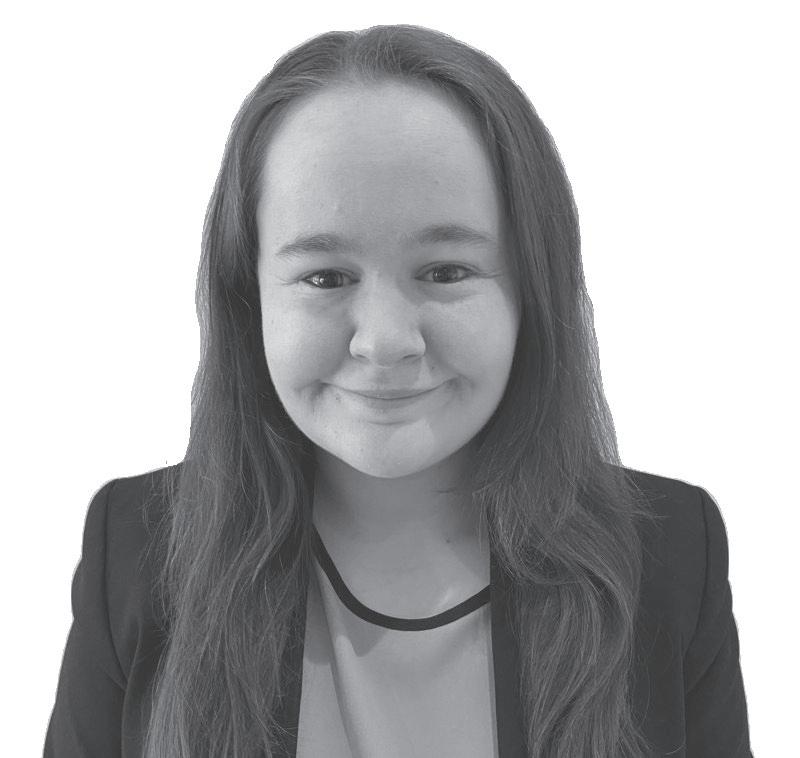
1. What drew you to the firm?
I was initially interested in MinterEllison because of the people I met during the clerkship process and the chance to work on market-leading matters. Throughout the clerkship application process, I attended various MULS run events and engaged with MinterEllison employees. What impressed me most was the supportive environment that MinterEllison provides, where hard work is valued, and everyone is encouraged to bring their "whole self" to work. I spoke with graduates, HR representatives, and partners, and all were genuinely friendly, engaged, and took the time to get to know me. Even during my interview, the partner made it feel more like a conversation than a formal interview, which put me at ease and allowed me to enjoy the process.
What stood out for me was that MinterEllison was not just interested in hiring me, but wanted to invest in my development as a young lawyer by offering excellent training and growth opportunities while working on industry-leading work. This is why I felt that MinterEllison was the perfect place for me to develop my skills and begin my career as a lawyer.
2. How did you decide on your practice area/rotation?
At MinterEllison, our graduate program includes three six-month rotations. As I previously did not have any legal experience, I recognised the importance of gaining exposure to as many different areas as possible. That's why I chose rotations in advisory, transactional, and litigious teams to gain a well-rounded perspective on the different practice areas. During the clerkship, I found it valuable to connect with people in various teams to get a feel for the different practice groups available.
To assist with choosing our rotations as a graduate, our HR team provided an information booklet detailing the different subpractice groups, major clients, types of work, and insights from partners and juniors in each team. This resource helped me gain a basic understanding of each team's function, and determine which rotations would be a good fit for me. I also reflected on what law subjects and electives I enjoyed the most and whether any of them corresponded with the teams I was interested in pursuing as a rotation.
To further expand my knowledge, I scheduled coffees with junior members of teams I was considering rotating through. During these conversations, I asked about their day-to-day work, the training provided by their team, and any insights they could offer. These discussions gave me a greater understanding of the work that I would be doing in each team and ultimately helped me narrow down my preferred rotations: Finance, Litigation and M&A.
3. What advice would you give to students who are applying for clerkships?
My advice to students applying for clerkships is to start preparing as soon as possible, by crafting a well-written CV and an individualised cover letter early in the process. This will give them more time to review and refine their answers to the application questions and interview responses, ensuring they are clear and concise. Additionally, it's important to know every line of their CV and speak about it effectively, as this is what the partners will be asking about in the interview.
Secondly, I would also recommend utilising the services that the Macquarie University Careers team offers, such as consultation sessions where students can receive feedback on their CVs, cover letters, and interview preparation. The clerkship application process is tough, so it is really good to have someone with experience provide you with advice and help you develop your interview skills.
Finally, attending MULS firm run events is a great way to get a feel for different firms and their cultures. Speaking with current employees and HR representatives can provide a sense of the type of work, people, and culture of the firm, helping students determine if it would be a good fit for them.

CLERKSHIP GUIDE 2023 MACQUARIE UNIVERSITY LAW SOCIETY 50 MINTERELLISON
Student Testimonial
*
Early careers at MinterEllison
Our clerks and graduates tell us that three key things make the MinterEllison experience:
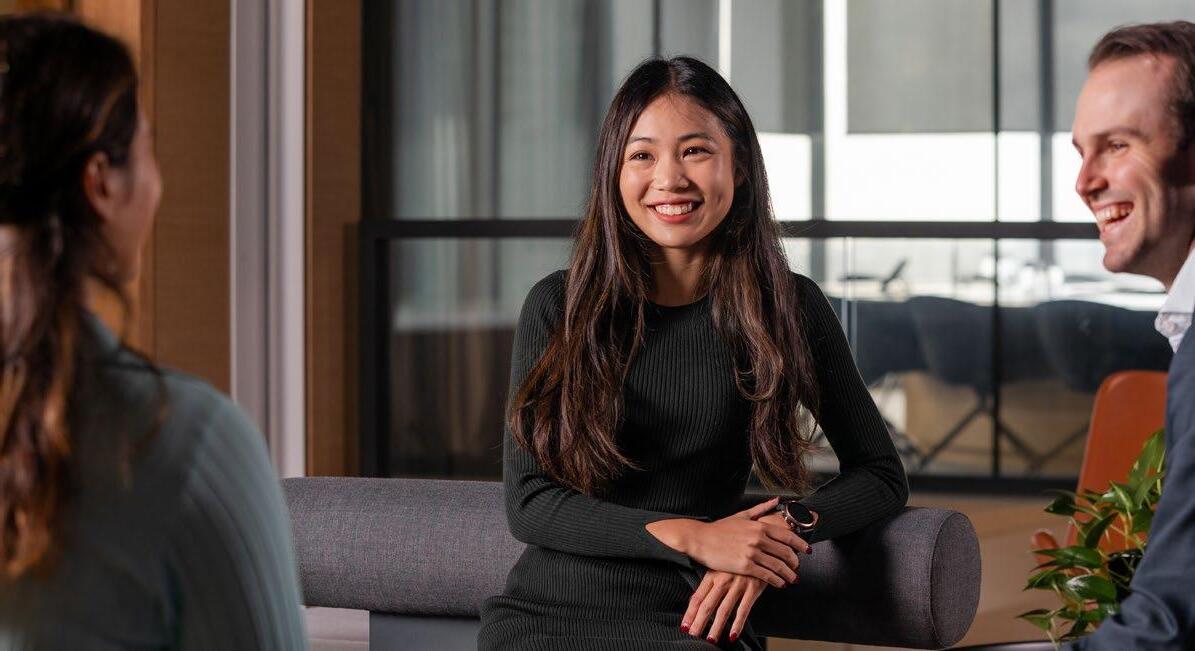
1. Experiencing high profile matters in a top tier firm
2. Our culture
3. Our learning and development programs
Learn by working on real challenges
Right from the start you’ll work on real client engagements, preparing you for any challenge. Discover new areas of practice, and learn the technical knowledge and tools you need to achieve your career ambitions.
An award winning start to your career
Winner, Most Popular Clerkship Employer
Top100 Graduate Employer Awards 2023
Top Graduate Employers 2023
Australian Association of Graduate Employers
Finalist, Most Popular Law Employer
Top100 Graduate Employer Awards 2023
Top Intern Programs 2022
Australian Association of Graduate Employers
Five reasons we’re different Great roles in great matters
Our industry go-to-market strategy is key to achieving our growth ambitions. You could be working on the matters changing the landscape of law and legal practice.
Feed your curiosity
Our learning programs will help you build the skills you need to be the trusted advisor of tomorrow.
A focus on you
Our wellbeing program, leave policies and entitlements ensure our people are supported.
An inclusive culture
It’s no surprise that the MinterEllison workplace culture is awarded key inclusion awards and benchmarks. We’re truly inclusive and value diversity in all its forms.
A passion for social justice
You’ll have the chance to join our pro bono and community investment program to help address disadvantage.
For information and to apply visit graduates.minterellison.com
SECTION NAME 51 graduates.minterellison.com
Adrian Brett Lawyer
1. What drew you to the firm?
During the application process, Allens stood out to me in so many ways. I was drawn to the firm for the following three key reasons:
(a) Work: Being one of Australia's best commercial law firms, I knew that a career at Allens would provide me with the best possible opportunity to work on exciting, complex and rewarding transactions. Having always been drawn to Mergers & Acquisitions (M&A), the opportunity to work in and amongst Allens' marketleading M&A practice made the prospect of a career at the firm highly attractive.

(b) People: Throughout the entire clerkship application process, every person I interacted with from Allens was kind, genuine and legitimately passionate about the firm. I quickly realised Allens would be a firm where I could be my true self, and be valued for it. What was noticeable throughout the application process was how much the firm values diversity, inclusion and respect. I knew early on that my values, and those of the firm were well aligned. In addition, the prospect of working with some of Australia's most prominent lawyers further validated my belief that a career at Allens would give me a unique platform to grow and develop as an aspiring junior lawyer.
(c) Structure of Graduate Program: Allens' graduate program structure which consists of two one-year rotations stood out to me among the graduate programs offered by other firms. Most people think one year in a practice group is too long, however, my two one-year rotations in M&A and Banking & Finance gave me the perfect amount of time to fully immerse myself in the team and the different areas of work on offer. By the end of the graduate program, I was confident that I had enough experience in each team to make an informed decision when choosing which practice group I was going to settle in.
2. How did you decide on your practice area/rotation?
I was fortunate to have exposure to M&A work during my time as a law student, which sparked my interest in M&A. My decision to settle in Allens' M&A team was primarily driven by my interest in transactional work, particularly in helping facilitate the sale and purchase of businesses. I love the complexity of M&A deals and the

challenge of working on big, high-profile transactions. I find the negotiation and structuring of deals to be intellectually challenging and rewarding — to me, there's nothing more exciting than seeing a transaction you worked on appear on the front page of the AFR.
In saying all of this, I can't stress enough how important it is to explore different areas of law before deciding on a practice area, as you may find that your interests lie in unexpected places. Despite being confident that I wanted to be an M&A lawyer, throughout my studies I pursued opportunities and roles outside of M&A (for example, working as a paralegal in a litigation practice), to help evaluate which area of law I wanted to pursue.
3. What advice would you give to students who are applying for clerkships?
To students who are applying for clerkships, my advice would be to start preparing early. Research the firms you are interested in and tailor your application to each one. Make sure your application is well-written and error-free. Be prepared to talk about your experiences, skills, and interests during the interview process. And most importantly, be yourself. Firms are looking for candidates who are a good fit for their culture and values, so don't be afraid to show your personality!
A few other tips from me:
(a) Network, network, network: Networking is key. Attend events hosted by the firms you're interested in and make connections with their lawyers and staff. Don't be afraid to ask questions – the clerkship process is about learning about the different firms and where you can see yourself best fitting in.
(b) Organisation is key: Stay organised, manage your time effectively, and be professional in your interactions with potential employers. Remember, the clerkship process is not only about securing a job but also about finding the right fit for your career goals and aspirations.
(c) Be resilient: Be prepared for the process to be competitive and challenging. Be persistent, resilient, and continue to improve your skills and knowledge. Take advantage of feedback from rejections to learn and grow.
CLERKSHIP GUIDE 2023 MACQUARIE UNIVERSITY LAW SOCIETY 52 ALLENS LINKLATERS Allens Student Testimonial
*
Great change is here. Shape the future with Allens
At Allens, we’re focused on equipping our people with the skills and experience they need to be the lawyers of the future. We’re ready to define tomorrow. Are you?
CLERKSHIP PROGRAM
A clerkship at Allens is the first step in a rewarding legal career, and will give you invaluable insights into our work and culture. With support from a buddy and development supervisor, you’ll work on real matters for real clients and be involved in a variety of projects. The programs:
� run from three to 10 weeks;
� are available at our Brisbane, Melbourne, Perth and Sydney offices;
� feature ongoing support, including a buddy system; and
� include exposure to one or two practice groups.
GRADUATE PROGRAM
In each rotation, you’ll gain a depth of experience that comes from seeing matters through to the end, and get exposure to stimulating legal challenges. At Allens, we don’t work in silos, meaning you won’t be limited to working with only one partner or by your practice areas. You’ll work alongside a range of partners and lawyers, giving you exposure to a wide variety of tasks. Working with different teams and leading organisations, you’ll grow a solid skills base and develop the agility needed to thrive in our ever‑changing world. The programs include:
� two 12‑month rotations in different practice areas;
� secondment opportunities in London or Asia, via our alliance with Linklaters, or with clients;

� ongoing supervision, coaching and mentoring;
� completing a Graduate Diploma in Legal Practice (via University of New South Wales); and
� a 12‑month weekly legal seminar series (Cornerstone Program).
ALLENS CONFIDENTIAL PODCAST graduates.allens.com.au/allens-confidential-podcast
ALLENS VIRTUAL INTERNSHIP theforage.com/course-catalog/bkpwC4BQR5T7poydC/Allens
STUDENT NEWSLETTER graduates.allens.com.au/life-at-allens
LINKEDIN linkedin.com/company/allenslawfirm
19503D Find out more at graduates.allens.com.au Allens is an independent partnership operating in alliance with Linklaters LLP.
Until now, I hadn’t really considered what my career might look like after my clerkship...
Since joining Allens however, I found myself completely inspired, especially by the female powerhouses.
Thomson
Isabella Maurici Lawyer
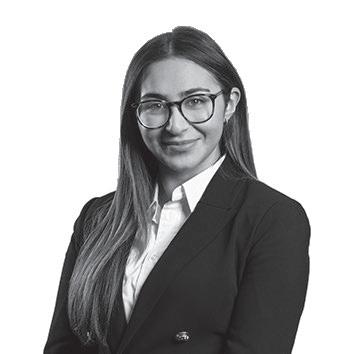
1. What drew you to the firm?
Initially, it was the people. From different clerkship networking events I could straight away tell that the people were very intelligent but humble, down-to-earth and could have a laugh, all attributes I find incredibly valuable in my colleagues!
As I learnt more about the firm, I found that it had a small firm feel despite being a large firm, which made me feel like I would thrive in this environment. From the outset, I was told that juniors work very closely with partners and senior lawyers in smaller teams. Having come from a small firm myself, I really resonated with that structure and believed it would be an environment where I would learn the most (which I have certainly found to hold true).
Lastly, with all of that in mind, the work on offer really drew me to the firm. I could see the firm had a number of blue chip clients and excelled in areas I was extremely interested in like Corporate/M&A and Banking and Finance.
2. How did you decide on your practice area/rotation?
I was lucky enough that I had clear areas that I was interested in before going into my clerkship. I did commerce as a second degree with many business and banking electives so gravitated towards Banking and Finance and Corporate. I really enjoyed both teams and had the opportunity to work with incredible people and enjoyed
elements of both areas of the law. I also know many people that went into their clerkship having no idea where they wanted to end up, but I think basing it on what you're interested in outside of your law degree is a great start.
3. What advice would you give to students who are applying for clerkships?
You are interviewing firms as much as they are interviewing you! Although corporate law firms are similar in many ways, there are subtle differences between them that you will only pick up by asking lots of questions and doing your due diligence throughout the clerkship process. A big part of that is attending as many clerkship presentations and networking events as possible. You may not realise it at the time, but it will really assist you in making an informed decision later down the track.
I would also advise that you prioritise your mental health at all times. Balancing clerkship applications with uni commitments can be intense at times. Be sure to reach out to your support network during that time and try not to put too much pressure on yourself. At the end of the day, everyone is running their own race and no person's journey is going to look the same, but eventually you will end up where you're meant to be.
Best of luck for this (at times scary) but mostly exciting experience!
CLERKSHIP GUIDE 2023 MACQUARIE UNIVERSITY LAW SOCIETY 54 THOMSON GEER
Geer Student Testimonial
*
Reach your potential

Join a major Australian law firm.


Starting your legal career at Thomson Geer will offer you real, hands-on experience across a wide variety of commercial disciplines and industry sectors, in a supportive and collaborative environment.
We’re ready for you
With over 560 people, including 138 partners across Sydney, Melbourne, Brisbane, Perth, Adelaide and Canberra, we’re one of Australia’s 10 largest law firms and its 5th largest independent one.
We offer a flexible, friendly and professionally stimulating environment that puts both our trusting client relationships and our staff’s wellbeing and development at the forefront.
From day one, you’ll be an active participant in the team, involved in all aspects of legal practice, and working directly with experienced practitioners.
Are you ready for us?
We’re looking for hard-working and motivated law students who have excelled academically, are customer focused, commercially minded, work well in a team environment and are ready to commence their career with a major law firm.
We are especially keen to talk to students who have, or are working towards a second degree in technical fields, such as commerce, engineering and science.
How to apply
Applications for our 2023/2024 Sydney Summer Clerkships open on 5 June 2023 through our website.
SECTION NAME 55
Thomson Geer @ThomsonGeer tglaw.com.au
Baker McKenzie Student Testimonial
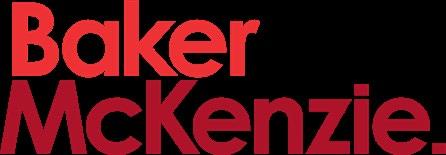
Max Glover Paralegal
1. What drew you to the firm?
From the outset, what drew me to Baker McKenzie was its international reputation and operations. Bakers embodies international, both from the clients we have to the goals and inspirations we aim to achieve. Throughout my interviews and starting at the firm, Bakers is a workplace built upon hard work and having genuine people. Being apart of a workplace where you feel valued, integrated in fast-paced and challenging work, and amongst like-minded genuine people, is a workplace I sought to be apart of.
2. How did you decide on your practice area/rotation?
My rotations were through ERIC (Energy Resources Infrastructure and Corporate) and Dispute Resolution. Firstly, I have always been interested in working with renewable energy and in energy transition. The ERIC practice group has extremely knowledgeable leaders and works across a range of matters dealing with electric grids, international site acquisitions, mines and offshore wind.
Secondly, understanding disputes is a fundamental part of practicing law. Being amongst a fast-paced team, doing most of my work with consumer goods and competition claims, I wanted to get a flavour of what disputes was all about. If you are curious about concepts including misleading and deceptive conduct, greenwashing, consumer goods and competitive law claims, and enjoy the battleground of court, dispute resolution is the place for you.
3. What advice would you give to students who are applying for clerkships?
Be enthusiastic, be a sponge, and back yourself. What genuinely attracts you to firms and why do you genuinely want to do a clerkship? Find what motivates you and where your interests lie, and let that sing in your application, interviews and firm events. Approach clerkship (and life) with energy and an eagerness to learn. There are a lot of smart people in the law, don't be afraid to ask questions, learn and soak up as much as you can about new topics and interests. Be confident and have faith in yourself. Focus and run your own race. Good luck!
Isabella Baweja Junior Associate
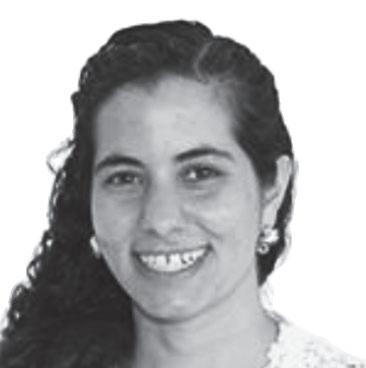
1. What drew you to the firm?
I completed majors in French and Italian at MQ alongside my Law degree and was looking for a workplace that would have opportunities for me to use my language skills as well as my legal skills. Baker McKenzie is a leading global firm that specialises in working across jurisdictions, so was a great place for me.

2. How did you decide on your practice area/rotation?
Throughout my law degree, I got a general feel for the areas I enjoyed and didn't enjoy. I knew that I liked litigation so I chose to do a rotation in the litigation team to get a feel for what general disputes is like. I also tried a rotation in Funds — something out of my comfort-zone and found that I didn't like it at all! Both are really good experiences to have in a clerkship- it's all about trying new things.
3. What advice would you give to students who are applying for clerkships?
A couple of points that really helped me:
• Think of unique ways to understand the culture of the firm. I was able to do an internship at Baker McKenzie as a part of PACE which helped me get to know people and understand how the place worked- all very helpful things when writing applications.
• Send your cover letter to someone to review before submitting (e.g. a friend who has gone through the clerkship process before).
• Think about things that make you unique and how that could be attractive for a firm. For me, that looked like my passion for languages and experiences studying abroad.
CLERKSHIP GUIDE 2023 MACQUARIE UNIVERSITY LAW SOCIETY 56 BAKER MCKENZIE
*
BORN GLOBAL
Baker McKenzie invented the global law firm - so we are different in the way we think, work and behave. Like no other law firm, we were 'born global'. We have followed clients into new markets, establishing offices driven by local lawyers and talent. And our growth has been organic, giving us a strong, common culture that runs through our Firm.
Our unique culture, developed over 70 years, enables our 13,000 people to understand local markets and navigate multiple jurisdictions, working together as trusted colleagues and friends to instil confidence in our clients. We also understand the challenges of the global economy because we have been a global law firm from the start.
Baker McKenzie has been thinking globally in Australia for more than 50 years. In 2014, we opened our Brisbane office making our Australian practice the fourth largest in our network of 74 offices with more than 80 Partners and 220 lawyers across Melbourne, Sydney and Brisbane. In Australia, we act for leading multinational and domestic companies on market-leading local and global transactions.
Our clerkship program
Right from the start, our clerks get involved in real work. You will be exposed to our Australian and international clients through client meetings, shadowing, research and other everyday activities within your assigned practice group.
Our clerks work closely with other lawyers, are guided by a supervising partner and enjoy the extra support of an experienced associate “buddy”. You will develop practical and legal skills through our national learning program and by attending workshops specifically designed for clerks, as well as Firm-wide sessions.
In Sydney, our clerkship program takes place from late November to mid February. Clerks who accept a graduate role with Baker McKenzie may be eligible to apply for an international clerkship, with the opportunity to work in one of our overseas offices in the year following their clerkship.
Our graduate program
Over the course of the program, graduates gain experience in different areas of law before they join a particular practice group as an associate. You will be supervised by a partner and have an associate “buddy” in each rotation to oversee your on-the-job and formal learning.
Develop globally
At Baker McKenzie, we have a deep commitment to development. Our dedicated Leadership & Learning team facilitates sessions in five key areas for our graduateslegal learning, managing your career, the business of law, business development & client service, and people & self-leadership.
We work hard to facilitate on-the-job learning and the many ways it happens too - through informal mentoring relationships, client secondments, involving graduates in global teams working on international deals and in providing them with the opportunity to manage their own files as part of our pro bono program.
We also bring graduates from our Sydney, Melbourne and Brisbane offices together to help our people foster networks across the Firm, and support professional development by covering the costs of Practical Legal Training and your admission.
Our regional practice group structure means many of our lawyers attend regional training in our Asia Pacific offices. Once graduates complete their graduate program, they will attend a regional orientation program with other mid-level associates from the Asia Pacific region. The Firm also offers opportunities for lawyers at varying stages of their careers to work directly for clients or with our other offices globally.
What does the Firm look for?
Baker McKenzie looks for people who genuinely want to work with us and who understand Baker McKenzie's unique offering and position in the market. We look for well-rounded, motivated individuals who have a performance mindset and strive to be the best in whatever they do; who are intellectually curious and have sound academics; who display business acumen and are practical in their approach; and who have a global mindset and are passionately committed to service excellence. We look for people who enjoy a challenge and seek new opportunities; who constantly look for ways to achieve better results while learning and growing; and who take proactive ownership and responsibility for their careers. And we look for people who act with integrity, honesty and candor in their dealings, decisions and actions; who express themselves confidently while staying open to new ideas; who seek a friendly, inclusive and diverse culture; and who take seriously our role in makinga difference to our local and global communities.
Thrive in a culture of inclusion
Quality and excellence together with integrity, honesty, candor, teamwork and responsiveness are some of Baker McKenzie's key values - and are central in us delivering outstanding service to our clients. The values that make us a unique and great place to work are deeply embedded - you will notice our difference in all of your interactions with us, in Australia and globally:
We are passionately global, and leverage our global expertise for our Australian and global clients atevery opportunity, recognising our strength is in our diversity.

We are a truly multicultural firm united by a genuine and robust culture of friendship, inclusion and collaboration.
Dispute Resolution, Litigation and Insolvency
We are commercial pragmatists who make complex issues simple for our clients and we are passionately committed to service excellence.
We strive to stay ahead of the curve, bring entrepreneurial energy to our work, embrace innovative change - and our curiousity continues to push new boundaries and challenge existing norms.
We actively encourage and support engaging with our community, through our pro bono and community service programs.
We want everyone at Baker McKenzie to reach their potential so we invest in global and local development and mobility programs for our people
Our award-winning diversity strategy, initiatives and programs are focused in five areas:
BakerWomen – gender equality and supporting the progression of women
BakerDNA – ethnic, indigenous and cultural diversity
BakerWellbeing – commitment to mental health and wellbeing, workplace flexibility and supporting parents/carers
BakerPride – lesbian, gay, bisexual, transgender and intersex diversity
BakerIndigenousEngagement – commitment to engagement with our Aboriginal and Torres Strait Islander community and to making a real difference in the lives of our nation's First Peoples.
How to apply
Applications for clerkships can be submitted via www.bakermckenzie.com/careers/Australia.
Applications should include a cover letter, as well as details of your work experience, your extra-curricular activities and interests, and your academic results. Applications for clerkships open at 9.00am on 5 June 2023 and close at 11.59pm on 2 July 2023.
Apolonia Mendel - Talent Management Consultant +61 2 8922 5201
TalentManagement.Australia@bakermckenzie.com
SECTION NAME 57 Our key areas of practice www.bakermckenzie.com/careers/Australia Baker & McKenzie, an Australian Partnership, is a member firm of Baker & McKenzie International. Banking & Finance Corporate (including Mergers & Acquisitions, Capital Markets and Private Equity) Funds
IP/Tech Energy, Resources, Infrastructure & Corporate Environmental Markets Commercial Real Estate Construction Tax
Employment & Industrial Relations
Clyde & Co Student Testimonial
Kyle Denning 2021/2022 Summer Clerk

1. What drew you to the firm?
I was attracted to Clyde & Co because of its growth mentality and entrepreneurial spirit, values I deeply resonate with. However, what truly made the firm stand out was the people I met throughout the clerkship process. I felt my interviewers genuinely wanted to know more about me; the interviews were structured but conversational. I also found the people I met shared similar values to my own. This, coupled with the firm’s focus on innovation, thought leadership, and its reputation as the global leader in corporate insurance made the decision to join Clyde & Co easy for me.
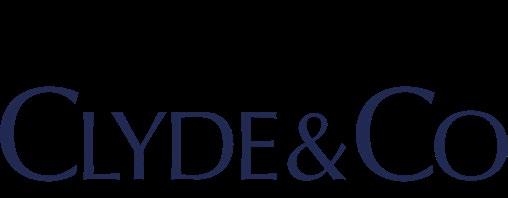
2. How did you decide on your practice area/rotation?
During my time at university, I loved contracts, remedies, corporations law, commercial law, and competition law. I was eager to rotate in the teams that regularly dealt in these areas of law, as it would allow me to discover whether my academic interests translated into these practical interests. As such, I chose to rotate in the Disputes and Resolutions (FI/DO) team as a summer clerk, and Corporate Insurance team as a paralegal. Through these rotations, I gained exposure to both contentious and noncontentious work, which ultimately allowed me to discover my passion for corporate insurance transactions.
3. What advice would you give to students who are applying for clerkships?
Do your research. Law firms have different specialties, strengths, core values and cultures so you will need to highlight these aspects in your clerkship application to stand out. Your cover letter should explain, among other things, why you are attracted to the firm’s specialties and pro-bono initiatives and why you resonate with key values. Reflect on life experiences, professional and otherwise, and consider how these have shaped you into who you are today. Avoid making general statements and let your personality show in your application.
CLERKSHIP GUIDE 2023 MACQUARIE UNIVERSITY LAW SOCIETY 58 CLYDE & CO
*
BECOME PART OF OUR STORY

Simone Rodgers
Early Careers Advisor | Clyde & Co


Email: Simone.Rodgers@clydecoc.om
ABOUTOURINSURANCEPRACTICE
Wehavebeenrecognisedastheworld’s leadinginternationalinsuranceand reinsurancelawfirm.Wehavethe broadestbusinesslineandgeographic coverage,aswellasthehighest concentrationofleadingpractitioners,of anyinsurancefirm.InAustralia,and acrossourglobalnetworkofoffices,we offerourarangeofcontentiousandnoncontentiousservices.Ourinsuranceand reinsurancepracticeinAustraliaisledby partnerswhoarerecognisedasleading insurancepractitionersbyChambersAsia PacificandLegal500AsiaPacific.
WEARELOOKINGFORCLERKSWHO ARE:
SECTION NAME 59
“
I would say that the firm’s “growth-oriented” mentality and entrepreneurial spirit are what distinguish it from the competition. If you’re eager to constantly challenge yourself, work with and learn from industry leaders, and to make meaningful contributions from day one of your career, then this is the place for you!”
2021/ 2022 Summer Clerk
CONTACT
ABOUT OUR FIRM Clyde&Coisadynamic,rapidlyexpandinggloballawfirmfocusedon providingacompletelegalserviceto clientsinourcoresectors–Insurance, Trade&Commodities,Energy,Transport andInfrastructure–whichplacethefirm attheheartofglobaltradeand commerce.
2 x 4-week rotations Technical training Social events & networking opportunities Ongoing mentorship & support Pro bono and community projects
Ambitious Committed Adventurous Dynamic
Heather Pym Associate, Johnson Winter Slattery
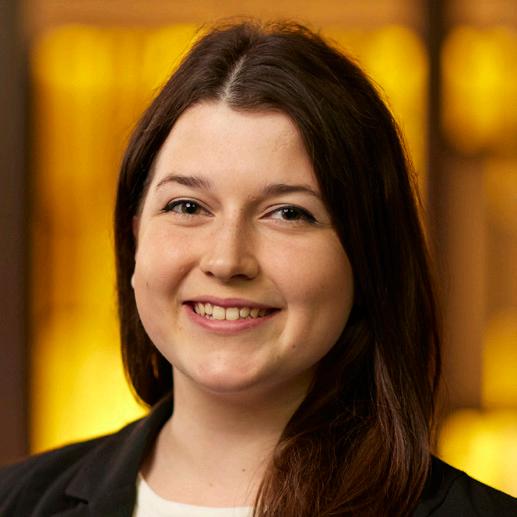
What drew you to the firm?
I joined JWS as a mailroom clerk in 2019 after asking a friend if they knew of any jobs to get a foot in the door. I headed on exchange in 2020 and once I returned (my travel plans being foiled by the pandemic) I applied for a summer clerkship to come back to JWS.
My homecoming to JWS was very intentional. The people and culture are incredibly down-to-earth, affable and pragmatic, and the firm has fostered a supportive and collegiate structure where junior lawyers have direct access to partners and matters.
My colleagues have supported and encouraged me to take on new opportunities and JWS has recognised that these experiences have the power to enhance my work at the firm rather than hinder it.
How did you decide on your practice area?
The structure of the firm means that you aren’t pigeon-holed into a practice group right away. Without rotations, you are motivated to reach out to those people whose work really appeals to you, and jump into matters that spark your interest. Before settling in my current team, I tried my hand at:
• Preparing a prospectus for the IPO of a medical device company;
• Pulling together evidence for an Anton Piller order to seize assets;
• Conducting a preliminary competition analysis of a potential target;
• Finalising agreements for the construction of a vaccine facility; and
• Reviewing employment agreements pursuant to due diligence enquiries.
With this freedom of choice I had a go at Environment and Planning, which was an area I didn’t have the chance to study during my time at Macquarie (having run out of electives). I have found that the team is incredibly supportive, genuinely committed to seeing me succeed and take the time to give feedback to make me a better lawyer. The wide variety of matters and legislation captured by the area also means that we are constantly grappling with interesting and novel points of law, which makes me excited to show up to work each day. Although I have settled in this team, I still have the freedom to assist on relevant matters that pop up in other areas of the firm, meaning that no two days are ever the same and I am never siloed into one corner of the office.
What advice would you give to students who are applying for clerkships?
Quality, not quantity
I know many fall into the trap of throwing an application at every law firm across Greater Sydney and hoping that one of the applications sticks, but you are much better off focusing your time and energy into a smaller number of well-considered, thoughtful applications to firms where you can see yourself as a cultural fit (firms can tell when you don’t have a genuine interest in their work). Don’t hesitate to reach out to junior lawyers at the firm on LinkedIn to get a better idea about the culture and the kind of work they do before you apply. This will also give you some great talking points in an interview.
Get your elevator pitch ready
You’ve made it to an interview – congratulations! Often the first question a partner will ask you is to tell them about yourself. While this question is meant to ease you into the conversation, it could just as easily do the opposite if you aren’t ready to give a concise introduction about who you are. Think about what your personal brand is, who you are outside of your professional and academic life and who you want to be in your future career.
Nobody is expecting you to be Mike Ross
The purpose of your clerkship is to learn about the firm, the work, and to be the first step in an extensive legal career. You aren’t expected to have read the Corporations Act from cover to cover or to be ready to appear in court on day dot. Give yourself permission to take your time when learning new things and don’t forget to enjoy the experience.
Any questions email Wilma.Lewis@jws.com.au or phone 02 8247 9630.
jws.com.au A BETTER PLACE TO WORK
“The purpose of your clerkship is to learn about the firm, the work, and to be the first step in an extensive legal career.”
Choose your next move wisely
Our business model is different to other firms. We offer our graduates the opportunity to get hands-on experience, working on market leading legal work in a down-to-earth environment where people thrive.

jws.com.au A BETTER PLACE TO WORK
Gadens Student Testimonial
Cassandra Krylov
Senior
Advisor
— Sustainability and Social Impact at Gadens
After working at Gadens for a number of years as a Legal Assistant, I commenced the Graduate Program in March 2017. During my year on the program, I rotated through the Intellectual Property and Technology team, as well as Real Estate and Construction. I undertook various matters that saw me gain a broad range of experience in intellectual property, technology, retail leasing, commercial leasing, and planning and environment matters. At the end of my Graduate year, I settled in the Intellectual Property and Technology team.
As part of the program, I undertook a variety of Pro Bono legal tasks, including research projects and volunteering at a public housing tenancy clinic that Gadens staffed in partnership with Moonee Valley Legal Service. As I had a keen interest in social justice and pro bono work, I was given the opportunity by the firm to dedicate a lot of my time to this type of work. At the end of that year, I was managing the operation of the public housing tenancy clinic at Moonee Valley Legal Service.
As I progressed my legal career, my involvement with Pro Bono legal work also increased. This gave me exposure to colleagues in different practice groups on these matters, as well as being responsible for managing projects and files whilst I was still a junior lawyer, gaining valuable hands-on experience. Whilst in the Intellectual Property and Technology team, I was both a Lawyer, then later an Associate, and also our Pro Bono Coordinator.
In April 2020, I moved from the Intellectual Property and Technology Team into our Brand, Clients and Markets team as a Business Development and Pro Bono Coordinator. This gave me invaluable experience in working with all of the firm's practice groups, as well as a number of clients – I could see how the firm was marketing itself, maintaining key relationships and securing work from new clients.
In March 2021, there was an opportunity for me to work fulltime within our Pro Bono practice (now Sustainability and Social Impact). Having taken this opportunity, I am now a Senior Advisor in the Sustainability and Social Impact group and have a range of responsibilities, including managing pro bono partnerships, working on pro bono legal files, being actively involved in our reconciliation and sustainability initiative and leading our corporate volunteering program. I work alongside our Partner and Head of Sustainability and Social Impact, Sophie McNamara, and Shabnum Cassim, Senior Associate.
One of the great parts of working within the Sustainability and Social Impact team is that we work very closely with our Graduates and junior lawyers on a range of pro bono projects, from legal clinics to research projects, and individual pro bono matters that are referred to us from our pro bono partners at various community legal centres and other organisations. Our people are given autonomy and carriage of these matters, deal directly with clients and play a vital role in the continued growth and development of our Pro Bono Program.
Gadens is supportive of its people and their career ambitions — I was supported in making the changes that felt right for me in my legal career, which has led me to a role that I am incredibly passionate about and love working in. I was also supported in my parenthood journey and took a year of parental leave when I had my daughter in September 2021.
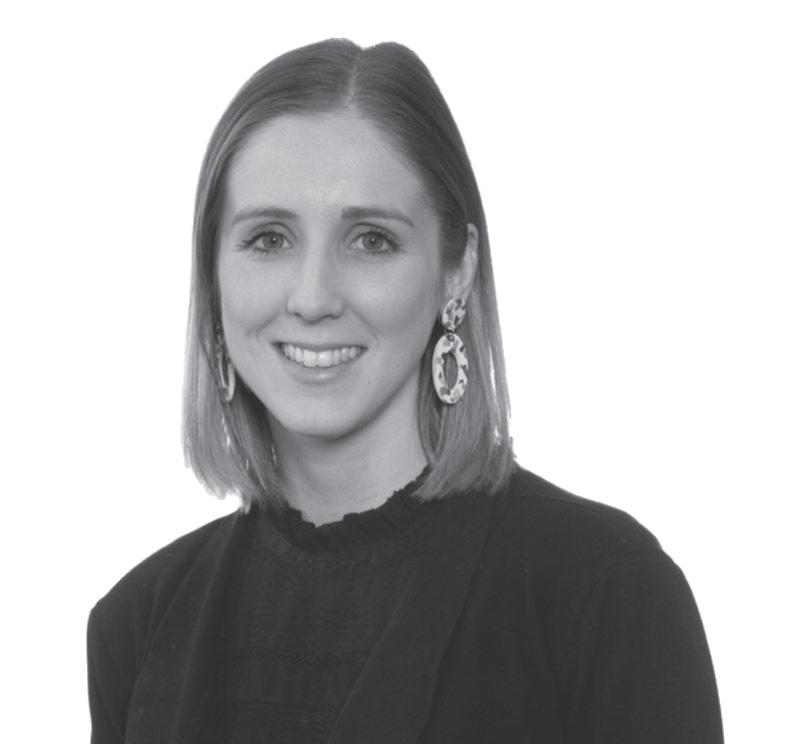
I would strongly recommend Gadens for Clerkship and Graduate roles. We are incredibly focused on mentoring and developing our junior lawyers to encourage people to follow their passions and interests. We know that one size does not fit all and we take pride in working with our lawyers to help find the legal career that best suits them.

CLERKSHIP GUIDE 2023 MACQUARIE UNIVERSITY LAW SOCIETY 62 GADENS
*
Construction
The Gadens Construction team is renowned for our expertise in major urban and retail developments, remediation and defect disputes, and adjudications. We have extensive experience across all aspects of construction and are well equipped to manage both front-end (transactional) and back-end (litigious) construction matters.
Key clients
Some of our key clients include Cbus Property, PDG Corporation, Gibb Group, Monash University, South East Water, the GPT Group, Greystar and more.
Graduate experience
As a Graduate in the Construction team, you will have exposure to a wide variety of both front-end and back-end work including:
• preparing pre-contract advice on issues such as project delivery methods, project finance and procurement;
• preparing standard and bespoke construction contracts;
• assisting in the negotiation of construction contracts;
• preparing advice on issues such as contract administration and interpretation,
• reviewing contracts for institutional lenders such as ANZ and Westpac, as well as non-banking lenders such as Centuria Bass;
• drafting construction tripartite deeds for lender clients;
• assisting with adjudication applications including drafting submissions and statutory declarations;
• being involved in the full life cycle of a construction dispute, from drafting pleadings, working with counsel, and conducting discovery, to appearing before a member or judge; and
• attending client meetings, mediations, and court hearings.
In this team, you will have the opportunity to work directly with partners as well as other team members across all levels of seniority — we have a strong culture of mentorship at the firm. There is a good variety of work and autonomy , as well as direct client contact from very early on. Our juniors lean on each other, while our down to earth people provide support throughout your career.
Planning and Environment
Planning and Environment at Gadens is a broad practice within the Real Estate and Construction group that typically involves advising and representing clients in relation to their projects and commercial transactions. We act for a range of clients, including developers, schools, hospitals and pro bono referrals.

We act across every stage of a development project, including initial advice about the viability of the project, preparing the necessary applications, working with a team of broader experts and representing clients across the relevant courts, tribunals and panels. In addition to development projects, we also act for clients in compulsory acquisition matters, contaminated land issues and policy changes.
In this team, you can expect to be involved in lots of research, drafting advice, preparing briefs to counsel and co-ordinating expert evidence. There will be a lot of variety in your day-to-day work. The team is relatively small, meaning you get to work closely with everyone and directly with the partner, have direct client contact and also have carriage of some matters. On complex matters, you can also expect to work collaboratively with other teams within the Real Estate and Construction group, including development and construction. As a whole, the Real Estate and Construction team is very welcoming. There is great mentorship and you will have the opportunity to put your hand up for different types of matters that pique your interest.
CLERKSHIP GUIDE 2023 MACQUARIE UNIVERSITY LAW SOCIETY 63 GADENS
*
Emily Peachey Lawyer (Public Law)
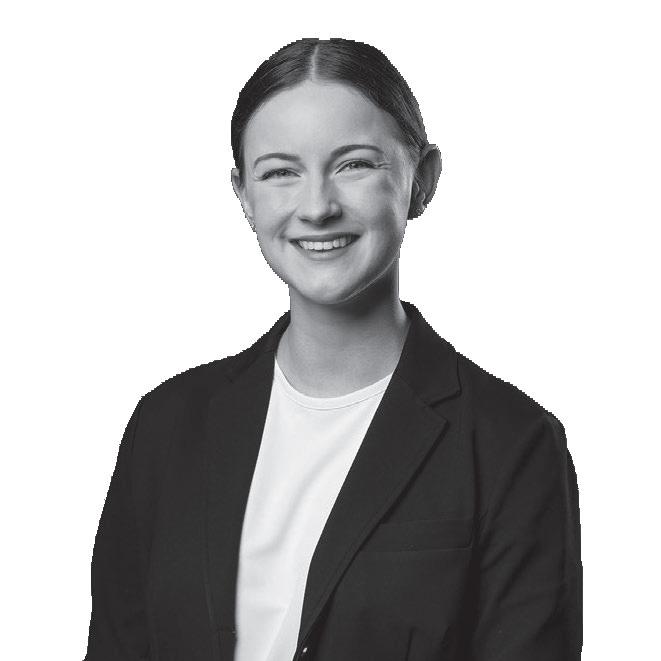
1. What drew you to the firm?
The best thing about Maddocks is its people. The people at Maddocks are kind, supportive and have provided me with great opportunities to learn. It is wonderful to come to work knowing you are surrounded by great people who are not only excellent lawyers but are also enjoyable to work with and who cultivate your career within the firm.
Maddocks cares about my career. By going through the clerkship and graduate programs, I had numerous conversations with a range of colleagues from junior lawyers to partners, with respect to my career aspirations and development. The advice and support I have received have been invaluable and helped me navigate what I want my work life to look like. I have had opportunities to meet lawyers from other teams, other states and other firms, which points to networking opportunities provided by a clerkship at Maddocks. As a graduate, networking is extremely beneficial, and it is wonderful that Maddocks puts you in positions to connect with colleagues at such an early stage in your career.
It has felt like every week, often every day, I am learning a new skill, area of law, or a way of thinking. The way Maddocks does this is not overwhelming — it’s exciting! There is an abundance of lawyers around me to support and help me when I need it. With this foundation, I look forward to my future career as a lawyer at Maddocks.
2. How did you decide on your practice area/rotation?
As a clerk, I rotated through Public Law and Employment, Safety and People. Both of these teams are filled with excellent lawyers and wonderful people. Having caring and passionate people around me aided my legal, analytical and interpersonal skills.
Many lawyers took time out of their days to teach me how to complete different legal tasks, I gained confidence from this and consequently felt valued and capable of helping the team — even as a clerk.
As a graduate, I returned to the Public Law and Employment Safety and People teams and had the chance to rotate through the Corporate Commercial team. In each team, I had an incredibly positive experience. In my time as a graduate, I feel like I have had five years of learning and growth in one short year, which is a testament to the great culture of Maddocks in nurturing young lawyers.
I have worked in both litigious and transactional matters. This has involved attending hearings, sitting in alternative dispute resolution meeting and helping draft clauses in a contract in big deal. This variety of work has made time fly and enable me to get a taste of the full spectrum of law Maddocks operates in.

3. What advice would you give to students who are applying for clerkships?
Be yourself! Maddocks wants to hire authentic and passionate people who can work well in a team. Maddocks wants you to bring your whole self to work, so don’t be afraid about sharing what makes you unique.
One of the most valuable lessons I have learned at Maddocks is the importance of taking your time. University deadlines, time-restricted exams and workloads train you to think that you must do things quickly and have little time to reflect on your work and whether you are going in the right direction. However, I have learned that it is crucial to pause and reflect on your work instead of rushing to get back to your colleague with an answer. By doing this, I came up with new ideas and changed my approach to the task.
CLERKSHIP GUIDE 2023 MACQUARIE UNIVERSITY LAW SOCIETY 64 MADDOCKS
Maddocks Student Testimonial
*
From Day One you will have challenging, meaningful work, gain exposure to clients, be given a good level of responsibility, work in a supportive and collaborative team and have regular access to our partners.

The training you receive throughout your clerkship will ensure you are thoroughly prepared and ready to get involved in and contribute to client work straight away.
The program begins with a comprehensive orientation which includes training and development activities.
Join our clerkship program and become part of a firm where you’re involved from Day One.
Scan this QR code to find out what it’s like to work at Maddocks.

SECTION NAME 65
Tell us about yourself?
My name is Ali, I grew up in rural NSW and previously worked in Communications before starting a Juris Doctor in my mid-twenties.
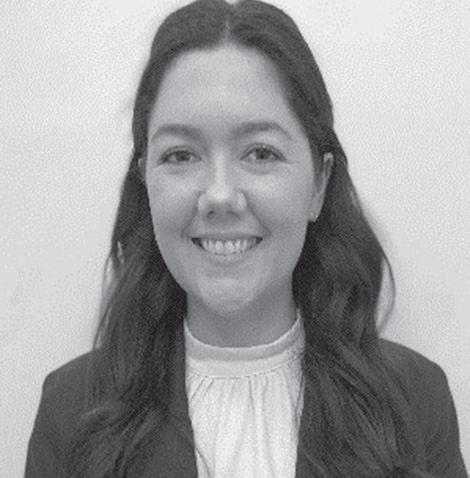
What was your pathway to Herbert Smith Freehills? How was your pathway different to other clerks?
I started my Juris Doctor after a few years working in journalism and corporate communications. I had always considered law, but it wasn’t until I had a read over a few of my sister’s law assessments (and found myself fascinated) that I decided to take the leap and study it myself. Don’t be scared off applying if this is your second career!
What were your expectations before joining HSF? How did your experience match or differ from your expectations?
My experience at HSF was very different to what I expected – there was a lot of support, and the people are really down to earth and helpful. From the moment I stepped into both my rotations, my buddy and the solicitors who sat in my pod immediately made me feel welcome – inviting me for coffees and constantly checking in to see if I needed any help with anything. This has been consistent for all the clerks in their teams, and really speaks to the warm and supportive culture of HSF.
LIFE AT A GLOBAL LAW FIRM
desk, I check in with my team to see if anyone needs help or will continue with tasks from the previous day or pro bono matters I have signed up to assist with. There are often team meetings littered throughout the day, and a couple of times per week there are great Clerk Information Sessions where we learn about different teams in the business (often accompanied by snacks or lunch). There are also many coffee catch-ups – but it’s completely acceptable to order a hot chocolate! Ultimately, being a clerk is really exciting – one day you’re doing legal research and the next day you’re in court.
Can you think of a time when you had a meaningful impact at work?
I had the opportunity to engage in a lot of pro bono work, from spending a day at The Shopfront* to helping with RACS and PIAC. I was amazed how much HSF values this work. With The Shopfront, I had the opportunity to shadow a handful of excellent solicitors as they represented young clients who suffer from homelessness in the local court. Working as part of a RACS team gave me the opportunity to help draft visa applications for people from Afghanistan seeking refuge in Australia. Finally, I was able to engage in some fascinating legal research for PIAC (Public Interest Advocacy Centre), who assist people and communities who are facing disadvantage.
Studies) wouldn’t be valuable in a commercial law firm, the skills and knowledge I took away from that degree were surprisingly valuable, particularly in certain practice areas. For example, my Gender Studies major enabled me to engage with Employment Law issues (like workplace discrimination or harassment) not just through a legal perspective, but through a cultural lens. Furthermore, my journalism skills came in handy when it came to working on the clerk social media committee!
What was your clerkship application experience and what advice do you have for students applying for a clerkship?
It is definitely a cliché but I was just myself in my application – the Jane Austen reference obviously paid off! The HSF HR team are really transparent and supportive throughout the process, so you are never left in the dark about when you will hear about outcomes along the way. The process is also extremely personal – I met up with my buddy for multiple coffees throughout the process, as well as people from areas I was interested in, which I really enjoyed. More to this, the interviews were really focused on getting to know you as a person, rather than interrogating you, which made the process a lot less intimidating.
What graduate/clerk rotation have you most enjoyed and why?
Can
you describe a typical day at Herbert Smith Freehills?
My usual day as a clerk starts at the level 33 café with a barista-made coffee and avocado toast with the other clerks. Once I’m at my
How has your experience, background & skills outside of your legal skills, helped you contribute as a clerk?
While I was concerned that my journalism degree (majoring in Literature and Gender
I loved working in the Employment, Industrial Relations & Safety practice as I had the opportunity to engage in really interesting work, such as helping to research for urgent advices, as well as work on pro bono initiatives.
CLERKSHIP GUIDE 2023 MACQUARIE UNIVERSITY LAW SOCIETY SECTION NAME 66 HERBERTSMITHFREEHILLS.COM 2023 © Herbert Smith Freehills NOF227445_A4_Profile_(Ali Moore)_v2/240323
Ali Moore Paralegal (Vacation Clerk 2022/23)
ELEVATE YOUR EXPERIENCE
ABOUT US
With over 25 offices spanning Asia, Europe, Australasia, and the Middle East, careers at Herbert Smith Freehills offer our graduates the opportunity to experience being part of a truly global law firm. Working with some of the most significant organisations in the world, opportunities to have social impact, and learning from our world-class team every day will enable you to create solid foundations on which to build your career in law.
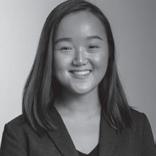
We’re proud to say that we put people first. Our firm is built on a diverse culture, reflective of the societies in which we live and work. That’s why inclusivity is key to our success. At Herbert Smith Freehills, you’ll be valued for what makes you different and accepted for who you are. We recognise the power of diversity and inclusion to drive innovation, collaboration and business outcomes. So, whether it’s working on the latest advancements in digital law, taking part in some of the biggest mergers and acquisitions around, or helping people through our extensive pro bono work – you’ll develop the skills to solve the most complex challenges in thoughtful and innovative ways.
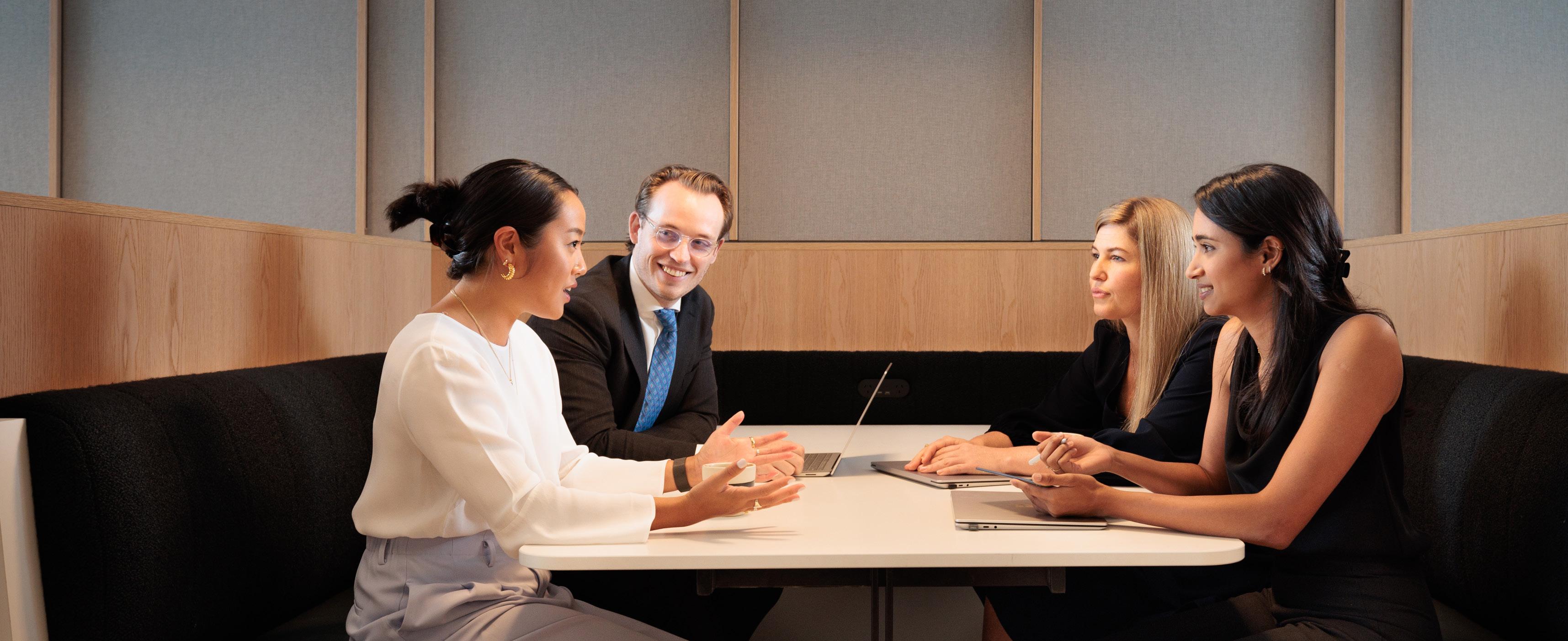
WE WELCOME DIFFERENT
Great lawyers are both curious and creative. We encourage you to challenge assumptions and open yourself up to new ideas. So, what exactly are we looking for?
There’s no single path to becoming an exceptional commercial lawyer. We look beyond your academic record and your technical aptitude. We’re focussed on finding people who have the curiosity to explore all the angles and the empathy to place themselves in their client’s shoes.
In line with our 10 Actions for Change we are proud to use the Rare Contextual Recruitment System (CRS). The CRS allows us to understand each applicant’s achievements in the context that they have been gained. We understand that not every candidate’s achievements look the same on paper – and we want to recruit the best people, from every background.
CLERKSHIP PROGRAM
We select many of our graduates through our vacation clerkships. During this immersive experience, you’ll receive hands-on practical experience, as you work on some of the diverse challenges facing the team you’re collaborating with.
You will gain a deeper understanding of life at the firm and what your future could look like if you join us. Some key features include the opportunity to:
• Sit within a specific team, delivering real work for key clients
• Before you join, submit a preference for a team to tailor your experience
• Navigate the first step of your career with partner and graduate mentoring support
• Attend workshops and presentations covering all our practice areas
• Contribute to our pro bono practice
• Work with cutting edge technology through our innovation projects
• Networking opportunities to meet people across the firm
Rachel Kok
T +61 484 934 932
GraduatesSydney@hsf.com
We're Herbert Smith Freehills, one of the world's leading international law firms. Join us and you'll be at the centre of high-profile cases, highimpact deals and you'll grow from new experiences every day.
JOINING US
We offer a range of summer and winter clerkships across our Australian offices. If you have queries about graduate or vacation clerk positions, please visit our website: careers.herbertsmithfreehills. com/au/grads/vacation-clerkships or contact one of our graduate recruitment consultants.
KEY DATES/DEADLINES
Offers made 13 September 2023
Please note: An application should only be submitted to the office where you intend to start your career as a graduate. Multiple applications will not be considered.
Contacts
Graduate Recruitment Consultant
HERBERTSMITHFREEHILLS.COM 2023 © Herbert Smith Freehills NOF227445_A4_Advertorials (2023) /090323
SYDNEY Positions 35–40 Clerkship programs 1 Summer Applications for all 2022/23 programs open 5 June 2023 Applications for all 2022/23 programs close 9 July 2023
T A K E C H A R G E O F Y O U R C A R E E R P A T H
We’re King & Wood Mallesons The top tier international law firm, from Asia, for the world The world’s leading organisations turn to us to unlock opportunities and deliver smart, considered, and confident advice. Where others see problems, we see possibilities.
Innovation is in our DNA We equip our people with the skills to partner with our clients and bring to life pioneering solutions which will help them to adapt, reinvent and evolve We believe innovation comes from giving our people room to grow. At KWM, our people are encouraged to shape their own career path, supported every step of the way with world-class training, coaching and hands-on experience
Diversity of thought, perspective and experience is critical to our culture We provide a broad, inclusive and open environment in which our people are fully supported to bring their whole selves. There is no ‘one size fits all’ career model, and we offer multiple opportunities for our lawyers to gain experience and thrive
Planning for a sustainable future
A core value for KWM is to grow our business sustainably and responsibly and leave a positive impact
Our commitments:
Global reach
The King & Wood Mallesons network extends across the following regions:
Asia Pacific (Australia, Mainland China including Hong Kong, Japan, Singapore)
Europe
Middle East North America
Our programs
SEASONAL CLERKSHIP PROGRAM
Applications open: 5 June 2023
Applications close: 9 July 2023
Apply via our online application system at: kwm.com/careers
We offer clerkships that give you insight into what it’s like to be a lawyer at King & Wood Mallesons You’ll get to know our people, the way we work, our culture, practice areas, clients and more
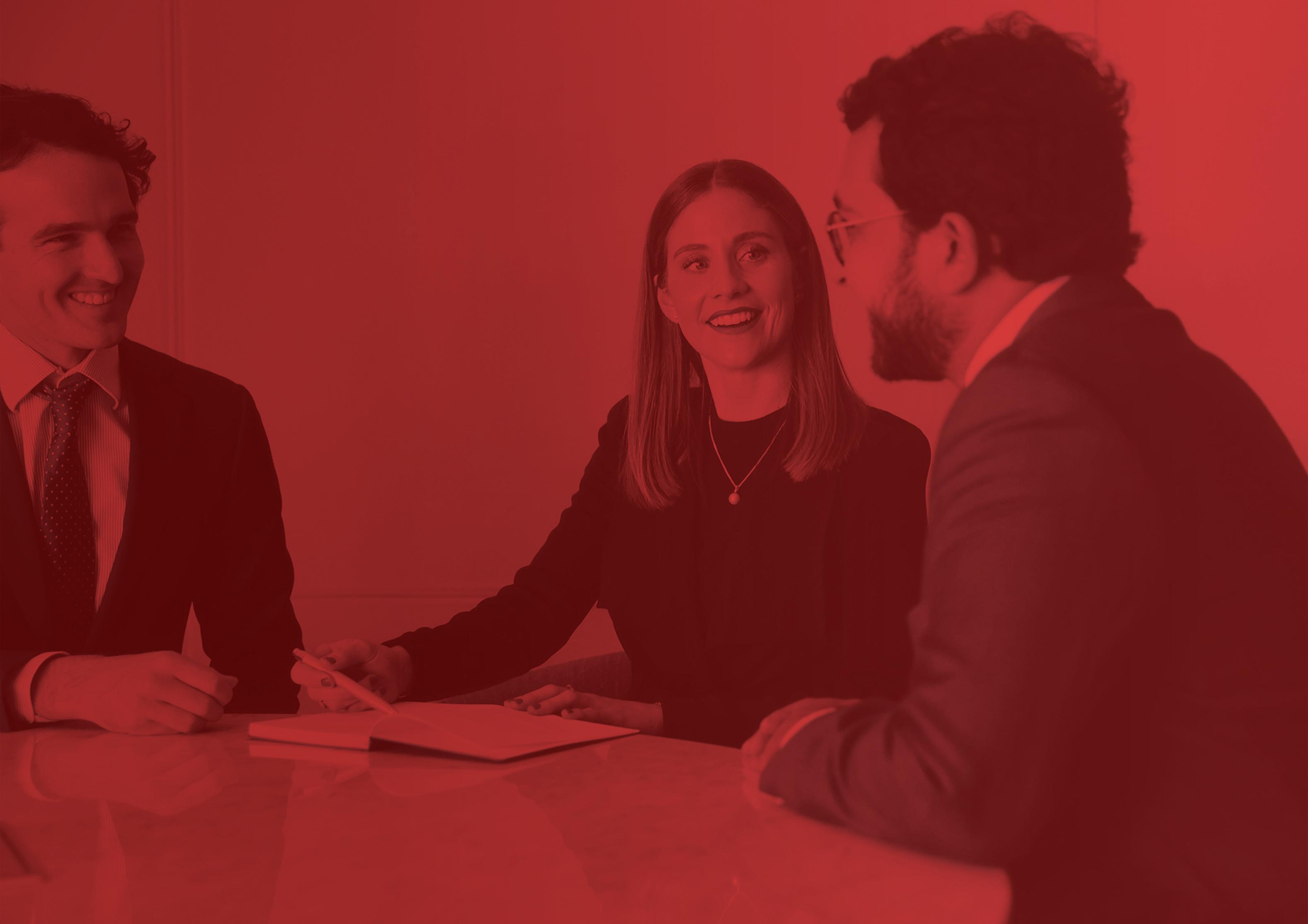
What you’ll learn:
The day-to-day skills to get you started – taking instructions, meeting with clients, drafting memos and documents, managing your practice and professional relationships
Undertake various energy, paper, water and waste reduction initiatives (ongoing) Source 100% renewable energy for our Australian operations before 2024 Update and re-certify our Environmental Management System by June 2022 Becoming certified carbon neutral by December 2022 Setting science-based targets by December 2023 and reaching net zero emissions by 2050 Reduce our emissions by: Complete Complete
The core practice teams at King & Wood Mallesons – who they are, what they do, how they’re structured, the clients they work for, and of course, your role within them

Our culture – working within your team, you’ll be exposed to (and encouraged) to get actively involved in the many activities and events that help create our unique culture Our people – you’ll find that people from every part of the business will help you by sharing their knowledge and supporting you through the early stages of your career and beyond
GRADUATE PROGRAM
We offer a unique future-focused experience and invest heavily in your development to support you throughout your journey
You will benefit from a bespoke comprehensive learning and development program tailored specifically for our graduates.
You will take part in our graduate technology bootcamps These bootcamps will provide you with exposure to the many different types of emerging legal technologies, which are available at our firm. These skills will help prepare you for the future and ensure that we continue to evolve to meet our clients’ changing needs
We also offer our graduates a Practical Legal Training (PLT) course with the College of Law, ensuring that you meet the requirements for admission to legal practice
The program also promotes and supports the mobility of our people by giving you the opportunity to apply to go on exchange in one of our interstate or overseas offices or undertake a client or pro bono secondment
Through these opportunities, you can access greater on-the-job experience and create a positive impact
What you will receive:
Meaningful work covering a wide range of practice areas
Client contact and an in-depth understanding of how they operate in a commercial and regulatory environment
The opportunity to work as part of a team with a range of partners, senior associates and solicitors
Our impact:
We are making progress towards our target of 40% female representation at partnership level
Experience Program (VEP) The platform features learning modules curated by KWM based on real life firm matters and activities Through this program you can build real skills and the confidence to excel in a commercial law career before you even step into one of our offices
We work with
The industry-makers, nation-builders and market-disrupters to drive growth and power innovation KWM is a launchpad for endless opportunities We want to help you think differently about yourself and the possibilities of where a career in the law might take you.
Our LGBTIQ+ Inclusion Network at KWM (LINK) raises awareness of and advocates in relation to LGBTIQ+ issues and concerns, and promotes inclusion, provides support and builds a sense of community for LGBTIQ+ identifying people and allies
We offer:
Culture of innovation, collaboration and high performance
Multiple career pathways where you can shape your future.
World-class training and coaching to unleash your full potential
High impact work for the world’s leading organisations Relationships that last a lifetime.
Over 231 organisations received legal assistance in FY22
Key contact
PEOPLE & DEVELOPMENT MANAGER - EARLY CAREERS, SYDNEY
Over $766,000 was raised & donated via DigDeep® (workplace giving project) to 27 community organisations in FY22
Over 90% of our lawyers delivered 44,240 pro bono hours in FY22 kwm.com
A practical understanding of areas of our legal practice Training in the latest legal technology
VIRTUAL EXPERIENCE PROGRAM
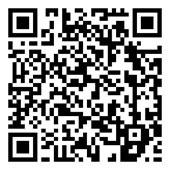
No matter where in the world you are or what stage in your law degree, you can now experience what it is really like to be a lawyer at KWM with our Global Virtual
TEL +61 410 480 120 EMAIL GRETA TRELOAR@AU KWM COM
careers kwm com/en/graduates-australia
CLERKSHIP GUIDE 2023 MACQUARIE UNIVERSITY LAW SOCIETY SECTION NAME 69
G R E T A T R E L O A R
C L E R K S H I P P R O F I L E
What kind of work did you complete during your clerkship?
The tasks I found myself involved in over the clerkship varied in complexity In M&A Tech & IP, I was assigned with creating multiple “Q&A”-style interactive presentations to assist internal practitioners with navigating through particular legislation which I had never seen before! In Real Estate, I completed various insightful research tasks on niche areas of law to assist with advices
What was the application and interview process like?
I found the application and interview processes grounded and personalised The written component and the interviews felt designed to get to know me, my personal passions and my aspirations – both in and outside of law and KWM The process encourages you to be yourself and it eased the intimidation that can come with interviews!
What is the culture like at KWM?
The culture at KWM is very welcoming and nurturing – I always felt like part of the team from day one of both rotations
Assistance was always one message away when I needed it and both of my teams were just as excited to get me involved in new learning opportunities and teach me new skills!
Can you think of a time when you contributed to creating a positive impact during your clerkship?
During my first rotation in M&A Tech and IP, I took part in a pro bono matter which involved drafting advices to queries made through the Youth Law Centre It was a great opportunity to get insight into legal advocacy for vulnerable youth and it felt rewarding to be able to create that positive impact

Why did you choose King & Wood Mallesons?
KWM’s significant presence in the field of Mergers & Acquisitions was one of the key reasons I chose to enrol into the clerkship program The defining point for me was how approachable and welcoming the KWM staff were during the recruitment process This really highlighted the firm’s values, and it instilled a feeling of belonging which stood out remarkably
What was the highlight of your clerkship?
The highlight of the clerkship was how naturally I was able to connect with my cohort and my practice teams From day one, I felt encouraged and able to explore my areas of interest by reaching out to members across the firm, all the while making bonds with like-minded and friendly colleagues in my cohort
Do you have any advice to give prospective clerks?
Be kind to yourself and be present The clerkship is designed to expose you to new information and teach you new skills, and your team is there to guide and support you in your learning – it’s okay to say, “I don’t know”! Be present for all minor and major aspects of the clerkship, as they are all learning opportunities!
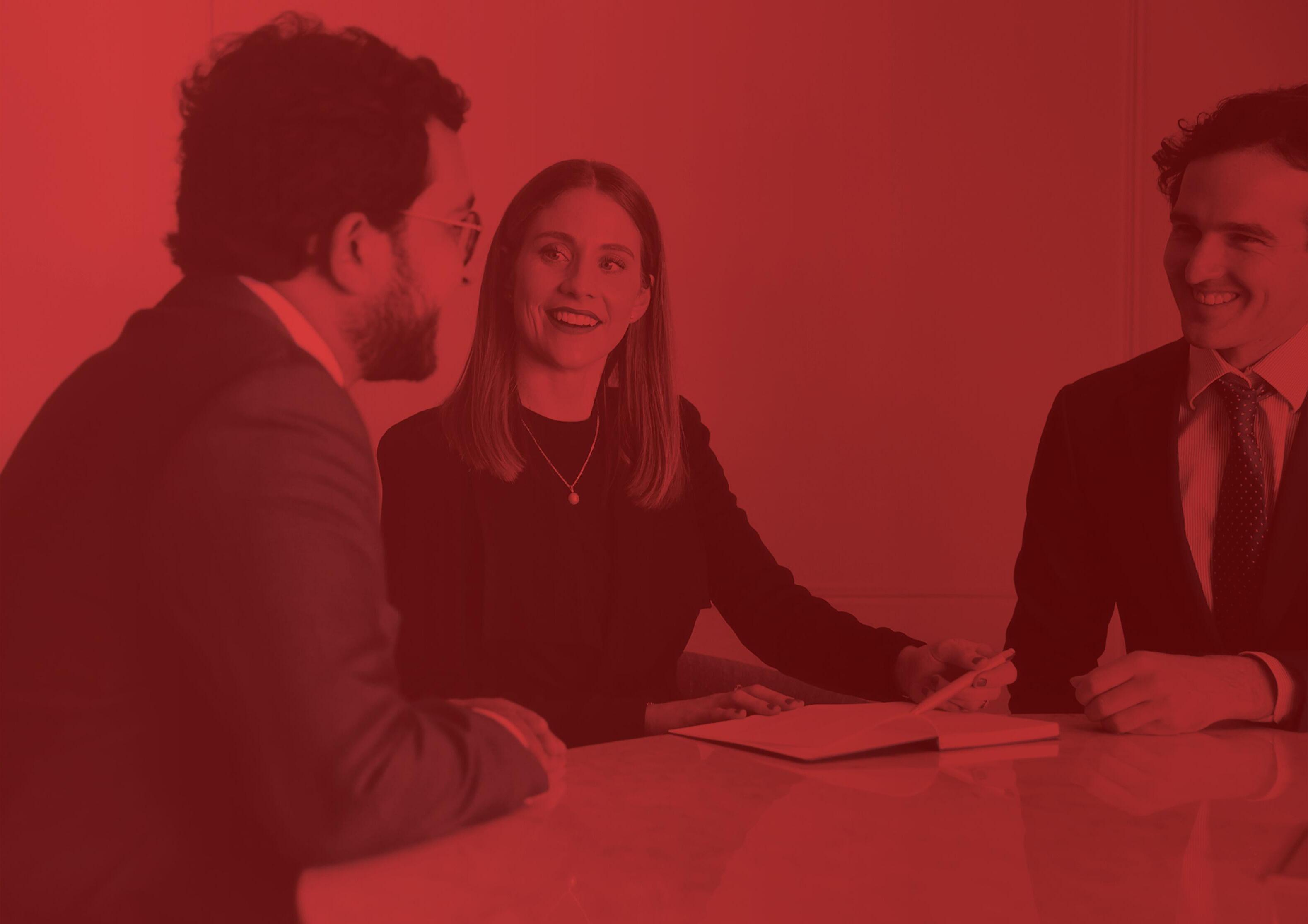
SECTION NAME 70
S E A S O N A L C L E R K I N T A K E : 2 0 2 2 / 2 3 A r e a / s o f r o t a t i o n : M e r g e r s & A c q u i s i t i o n s ( T e c h & I P ) , P r o j e c t s & R e a l E s t a t e U n i v e r s i t y : M a c q u a r i e U n i v e r s i t y D e g r e e : B a c h e l o r o f L a w s
J O N A T H A N A M I R Z A I A N
careers.kwm.com/en/graduates-australia
King & Wood Mallesons
Student Testimonial
Georgia Weeden Law Clerk


Georgia Weeden is in her final semester at Macquarie University, completing a dual Bachelor of Arts (Public Policy, Law, and Governance) / Bachelor of Laws. Georgia is a Law Clerk in the Projects & Real Estate group at King & Wood Mallesons’ Sydney office working in the Environment, Planning, & Native Title team. Georgia has been with the firm since undertaking her Summer Clerkship in the 2021/22 Program, and is starting as a Law Graduate in the firm’s Graduate Program in July 2023.
1. What drew you to the firm?
Going into my clerkship season, I had a clear idea of the legal career I wanted and the type of firm most conducive to this goal. I chose KWM because the firm fulfilled these two requirements:

(i) an array of practice areas with international capabilities. As with most penultimate students and graduates, I had a plethora of legal interests and areas of law I could see myself practicing and wanted to give myself the best possible opportunity to find an area that best aligns with such interests. Noting the large and ambitious practice groups, and a number of teams within them, I knew I would be spoilt for choice and a variety of experiences in the trajectory of my legal career; and
(ii) ambitious and active pro bono and community outreach initiatives that not only support but encourage lawyers to get involved. Whilst I had thoroughly enjoyed my early experience in corporate law and couldn’t see myself doing anything else, I know that my involvement in pro bono work is non-negotiable and wanted to be at a firm that had common values.
Having had time to reflect on my decision and settle into the firm, I rest easy knowing KWM was the right decision for me.
2. How did you decide on your practice area/rotation?
Having had several years of corporate law experience prior to my clerkship, I embraced the opportunity to preference practice areas outside of my comfort zone. Whilst the daunting prospects of a massive learning curve in Banking & Finance or niche industry advisory work would deter some, I was pleased (and anxious) when given the opportunity to rotate through Securitisation and IP Litigation. I would advise 2023/24 clerks to get involved in new, and perhaps ‘anxiety inducing’ teams and matters, as these are ultimately the best learning opportunities and will contribute to a more holistic understanding of the law and how the work of different teams contributes to clients’ desired outcomes.
3. What advice would you give to students who are applying for clerkships?
Having time to reflect on the clerkship process, one lesson I continually return to is to focus on yourself. Whilst there is a tendency to get swept up in the collective anxiety as people begin applying for firms, the ‘rumour-mill’ on application strategies, preferred firms, and the ideal candidate can absolutely exacerbate the already daunting experience. What works for one person may not be best for you. Having the opportunity to meet lawyers from all walks of life since commencing at KWM, I now know that there is no single pathway into your dream career nor an ‘ideal candidate.’ Throughout the process, make sure to stay true to yourself and what is best for you, avoid making decisions based on what your peers are saying, and remember that comparison is the thief of joy.
CLERKSHIP GUIDE 2023 MACQUARIE UNIVERSITY LAW SOCIETY 71 KING AND WOOD MALLESONS
*
Gilbert + Tobin Student Testimonial
 Jack Vanzino Paralegal
Jack Vanzino Paralegal
1. What drew you to the firm?
Gilbert + Tobin’s culture distinguishes it from other firms. ‘Culture’ tends to be a buzz word at clerk events, but for G+T it was really something that stood out throughout the clerkship process. The firm’s flat structure provides an opportunity to mingle with senior lawyers and partners, who are extremely welcoming, approachable, and genuinely interested in your professional development.
You feel like a valued part of the team from day one. Another determining factor for me was G+T’s market-leading Pro Bono practice. This, alongside G+T’s commitment to developing their environmental space, reflects their commitment to purposeful, socially beneficial work. These factors piqued my interest, as I completed my dual degree in environmental science and have a keen interest in working with marginalised communities.
2. How did you decide on your practice area/rotation?
Prior to the clerkship, I had no experience working in commercial law, so I made sure I chose practice areas that provided me with an opportunity to work on matters both litigious, transactional, and advisory in nature. Exposure to various disciplines of law has assisted me in understanding the areas I like working in best. Further, connecting with people working in the teams I had an interest in, as well as hearing about the work they do, was important in making my decisions.
My first rotation was in Banking + Projects (Energy + Infrastructure). The work I performed in this team exposed me to transactional matters. During my time in the B+P group, I also worked for our construction and litigation team, exposing me to litigious work, and the environment and climate change team, exposing me to

advisory work. My second rotation was in Disputes + Investigations. The work in this team provided me with access to both litigious and advisory work.
When deciding your rotations, my advice is to consider what type of law you have and have not been exposed to yet in your professional career, and the type of law you are interested in. I would also suggest reaching out to individuals working in those teams to answer any questions you may have.
3. What advice would you give to students who are applying for clerkships?
Throughout the application process, I only wanted to apply to law firms I had a genuine interest in working at. For me, that was only G+T. This enabled me to focus all my efforts into G+T and gave myself the best chance of getting the clerkship I wanted by ensuring I wasn’t spreading myself too thin. It is important to remember that the clerkship process is just as much about you finding out if the firm is a good fit for you, as it is about the firm finding out if you are a good fit for them.
It is not all about grades and legal experience. As cliché as it sounds (and I’m sure you will hear it countless times throughout the process), being yourself is key. Speak to your diverse experiences outside of law and academic life. At the end of the day, legal skills are teachable. Soak it all in and enjoy the clerkship process for the valuable learning experience that it is!
CLERKSHIP GUIDE 2023 MACQUARIE UNIVERSITY LAW SOCIETY 72 GILBERT + TOBIN
*
With a challenger mindset, G+T is always pushing the status quo and taking a stand on things that matter. That’s why we constantly seek new ideas, fresh energy and different perspectives from our clerks and graduates. Work
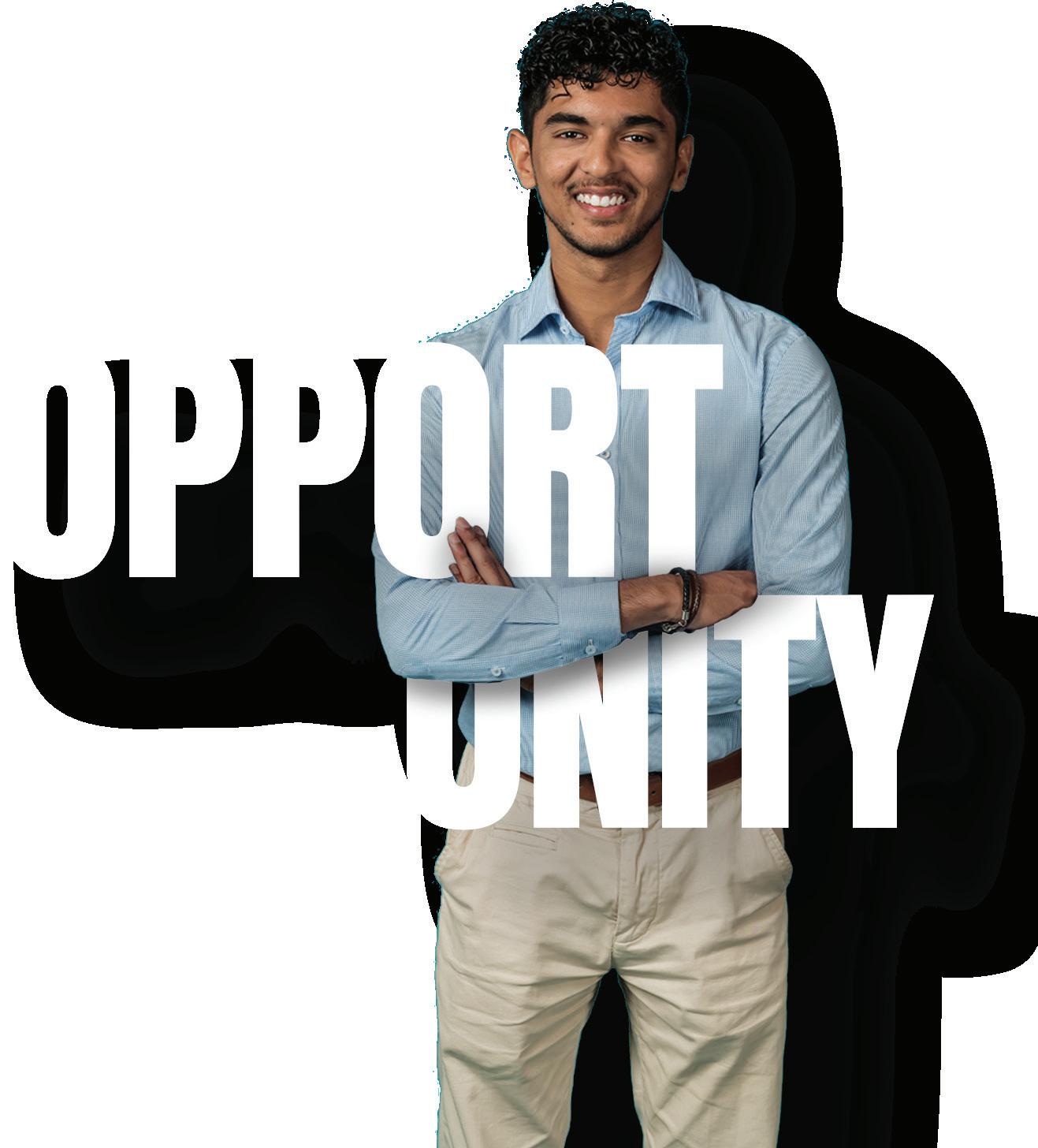
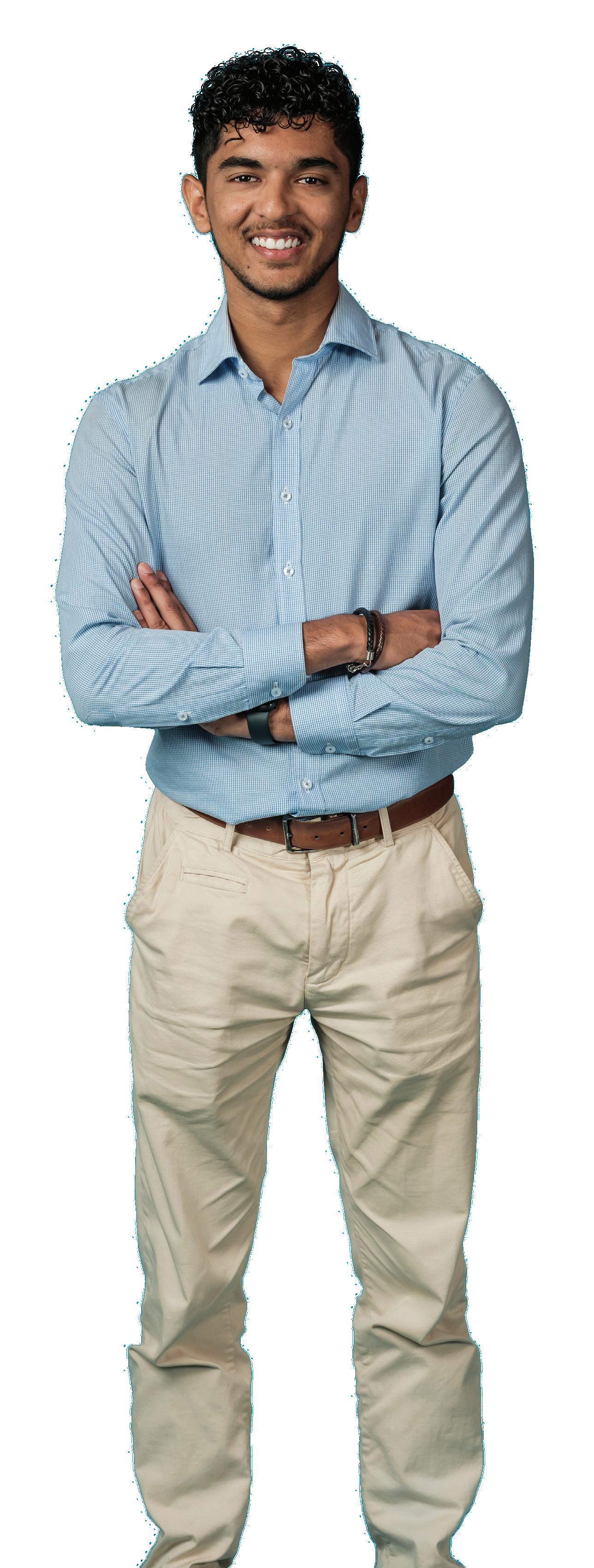
CLERKSHIP GUIDE 2023 MACQUARIE UNIVERSITY LAW SOCIETY SECTION NAME 73 STARTS HERE
us, and help us build
best
firm.
Visit gtlaw.com.au/starthere
at the forefront of significant change in our society and economy, and open the door to experiences that will shape your career – wherever you want it to take you. Join
Australia’s
corporate law
»
IMPACT
STARTS HERE
G+T has the momentum and energy to be Australia’s best corporate law firm. Our clients turn to us at pivotal moments in their growth trajectory – from industry-shaping M+A deals to high-stakes disputes and regulatory work.
From your first day with us, you’ll be given work that matters – not paperwork. You’ll be exposed to milestone deals and major clients across Australia, Asia, Europe, North America and emerging markets. And you’ll feel like you’re making a difference and learning from the best lawyers in their fields.
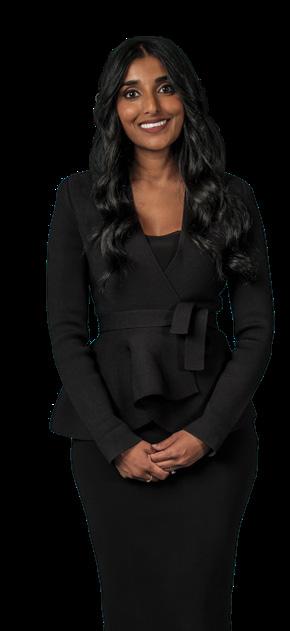
You’ll also have the opportunity to work in practice areas focused on ESG and the transition to renewable energy, as well as emerging regulatory change and tech transformation.
Join our team in Sydney’s Barangaroo precinct, and work alongside Australia’s leading practitioners in:
+ Banking + Finance
+ Competition + Regulation
+ Corporate Advisory
+ Disputes + Investigations
+ Energy + Infrastructure
+ Intellectual Property
+ Legal Service Innovation
+ Pro Bono
+ Real Estate + Technology + Digital
If you share our entrepreneurial spirit and restless energy, you’ll feel like you belong with us here at G+T. And you’ll see how quickly our network can open doors to experiences that will take you further, faster.
Launch your career with G+T
» Visit gtlaw.com.au/starthere
“As a progressive firm, we are constantly changing and always thinking about the future. That’s why we’re always looking for fresh ideas and energy. For talented people who will make an impact in their careers, wherever that takes them.”
Danny Gilbert Managing Partner
MACQUARIE UNIVERSITY LAW SOCIETY SECTION NAME 74
OPPORTUNITY STARTS HERE
Our clerkships in Melbourne, Perth or Sydney offer a unique chance to experience one or two practice areas in corporate law, and learn from some of Australia’s most talented legal minds.
In Sydney, we offer a summer clerkship with two 4-week rotations across two practice areas and the option to apply for the Aurora Internship, a fully funded 5- to 6-week winter internship.
Is a G+T clerkship right for me?
The G+T clerkship experience is open to law students in their penultimate year of study, as well as final year students for our Melbourne and Sydney offices. Our culture is built on inclusivity and individuality, and we want you to feel like you can be yourself at work. Our people are ambitious, creative and entrepreneurial – they bring energy and a can-do mindset, and are willing to challenge assumptions. If that sounds like you, you’ll feel like you belong here.
What will I experience?
During your two-, four- or eight-week clerkship (depending on location), you’ll be provided with a supervising partner, a mentor and a buddy who will help you develop your day-to-day legal and personal skills. You’ll also grow with the help of structured in-house training, covering drafting and technical skills through to business development and personal branding. You’ll mainly work within one or two of our corporate law practice areas, and you’ll also have the chance to work on innovation projects or pro bono matters. This is your opportunity to explore areas you’re interested in, push out of your comfort zone and bring your own ideas and perspective to the team. Plus, you’ll build a valuable network that will support you throughout your career – wherever it takes you next.
I’ve clerked at another firm – can I still apply?
We’d love to hear from you.
Kristie Barton
Early Talent Manager
+61 2 9263 4575
kbarton@gtlaw.com.au
G+T clerks typically receive priority offers for graduate roles, and we have a high conversion rate. However, graduating students are always welcome to apply to our 18-month graduate programs. Look for graduate vacancies on our website.
Clerkship application dates
SYDNEY Monday, June 5 2023 Sunday, July 9 2023
MELBOURNE Monday, July 3 2023 Sunday, August 13 2023
PERTH Monday, June 26 2023 Sunday, July 30 2023
» Learn more about our clerkship programs at gtlaw.com.au/starthere
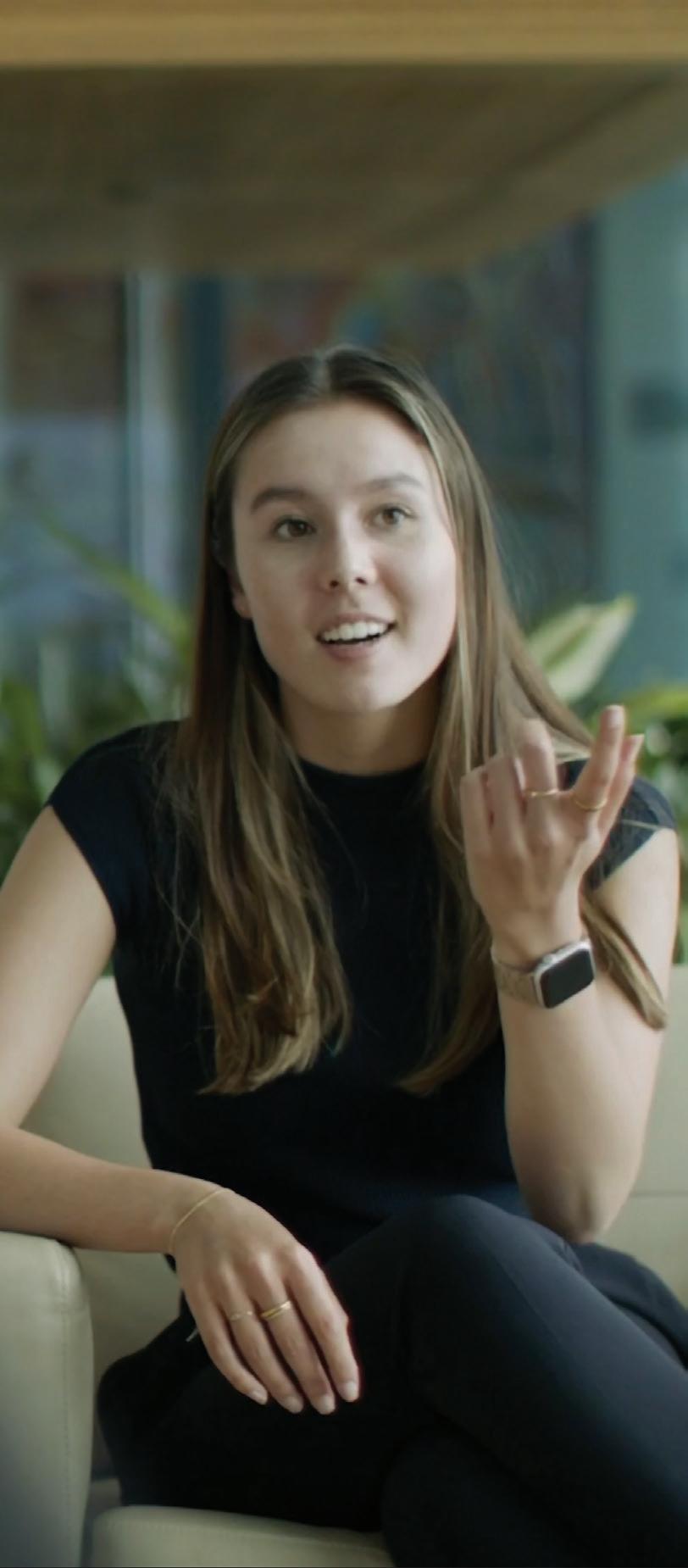
CLERKSHIP GUIDE 2023 SECTION NAME 75
There’s never been a better time to be part of G+T. The pace is fast, the energy is high, and the people are smart, supportive and fun. Open the door to opportunities without limits, and see where G+T can take you.
“I think graduates today are looking for the whole package – collaborating with the best people on interesting work, being stimulated in an inspiring office, being valued for their input. And I feel like I’m in the perfect place for that at G+T.”
Karla Jeffrey Graduate
Get in touch
APPLICATIONS OPEN CLOSE
The following information was gathered by the Editor and Publications Director and may be subject to change prior to the clerkship period. Candidates are encouraged to double-check the information themselves as no guarantees are made regarding the accuracy of the information below.
Allen & Overy Allens
Apply here:
Level 25/85 Castlereagh St, Sydney NSW 2000
Contact: Kate McDonaldSenior HR Manager
Australian Recruitment: australianrecruitment@ allenovery.com
Ashurst
Apply here:
11/5 Martin Pl, Sydney NSW 2000
Contact: Joanne Dean - HR Consultant (Graduate Programs) joanne.dean@ashurst.com
Clayton Utz
Apply here:
1 Bligh St, Sydney NSW 2000
Contact: Carissa Bartels - National Recruitment Consultant cbartels@claytonutz.com
Clyde & Co
Apply here:
Level 15/333 George St, Sydney NSW 2000
Contact: Simone RodgersRecruitment Advisor simone.rodgers@clydeco.com
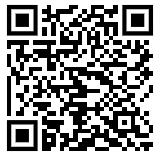
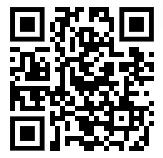
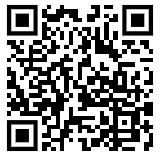
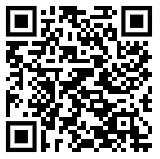
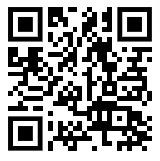
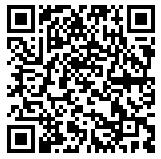
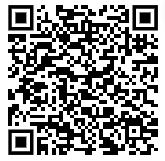
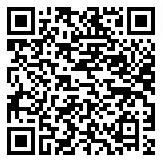
Apply here:
Deutsche Bank Place, Level 28, 126 Phillip St, Sydney NSW 2000
Contact: Elouise TebbuttEarly Careers Advisor Elouise.Tebbutt@allens.com.au
Baker McKenzie
Apply here:
Tower One, International Towers Sydney, 100 Barangaroo Ave, Barangaroo NSW 2000
Contact: Apolonia Mendel - Talent Management Consultant apolonia.mendel@ bakermckenzie.com
Clifford Chance
Apply here:
Level 24, Brookfield Place, 10 Carrington St, Sydney NSW 2000
Contact: Mel Urquhart - HR Generalist Grads.Australia@cliffordchance. com
Corrs Chambers Westgarth
Apply here:
Quay Quarter Tower, Level 37/50 Bridge St, Sydney NSW
Contact: Cassandra Galea - People & Performance Consultant cassandra.galea@corrs.com.au
CLERKSHIP GUIDE 2023 MACQUARIE UNIVERSITY LAW SOCIETY 76 CONTACT
Contact
DLA Piper Australia
Gadens
Apply here: Apply here:
No, 22/1 Martin Pl, Sydney NSW 2000
Contact: Jenny Dawkins - Graduate Recruitment Advisor jenny.dawkins@dlapiper.com
Gilbert + Tobin
Apply here:
Level 35, Tower Two, International Towers Sydney, 200 Barangaroo Avenue Barangaroo NSW 2000.
Contact: Kristie BartonEarly Talent Manager KBarton@gtlaw.com.au
Maddocks
Apply here:
Level 27/123 Pitt St, Sydney NSW 2000
Contact: Samuel JurdPeople & Culture Advisor samuel.jurd@maddocks.com.au
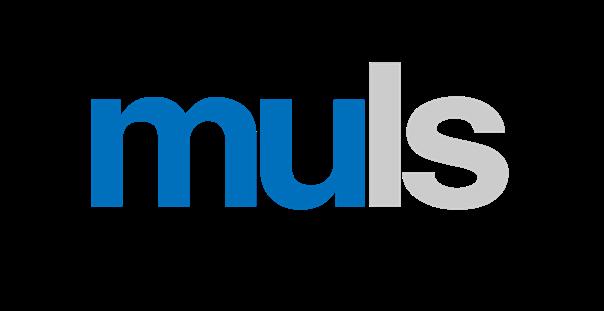
Herbert Smith Freehills
Apply here:
161 Castlereagh St, Sydney NSW 2000
Contact: Rachel Kok - Graduate Recruitment Consultant Rachel.Kok@hsf.com
Johnson Winter & Slattery
Apply here:
Quay Quarter Tower, Level 14/50 Bridge St, Sydney NSW
Contact: Wilma LewisSenior People & Development Consultant wilma.Lewis@jws.com.au

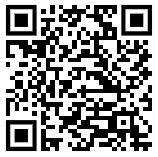
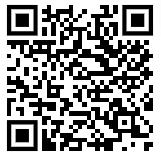
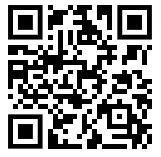
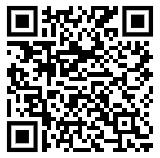
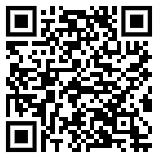
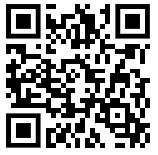
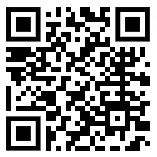

Level 20/25 Martin Pl, Sydney NSW 2000
Contact: Jessica Parker - Early Careers Partner Jessica.Parker@gadens.com
King & Wood Mallesons
Apply here:
Level 61, Governor Phillip Tower, 1 Farrer Place, Sydney NSW 2000
Contact: Aubrey Burn - People & Development Advisor audrey.burn@au.kwm.com
MinterEllison
Apply here:
40 Governor Macquarie Tower, 1 Farrer Pl, Sydney NSW 2000
Contact: Eleni Carkagis - Graduate Resourcing Consultant eleni.carkagis@minterellison.com
Thomson Geer
Apply here:
Sixty Martin Place Level 14, 60 Martin Place Sydney, NSW 2000
Contact: Maddison Pannell People Development Advisor mpannell@tglaw.com.au
MACQUARIE UNIVERSITY LAW SOCIETY
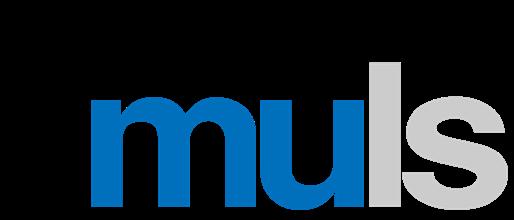
*
2023































































 Kimberly La Graduate Lawyer
Kimberly La Graduate Lawyer
























































































